

Zambia travel tips: What you should know before you visit Zambia
We are proud members of the U.S. Peace Corps community and love to partner with our fellow Peace Corps Volunteers, who often have some of the best insights into the culture and authentic travel experiences available in their host country. We asked Lianne Bronzo, a recent Volunteer in Zambia, to share her expertise on travel in Zambia.
Africa is a massive continent hosting a great deal of diversity in terms of people, cultures, and landscapes. Then within each country is even more diversity and uniqueness. Zambia is no exception.
What is it like to travel in Zambia?
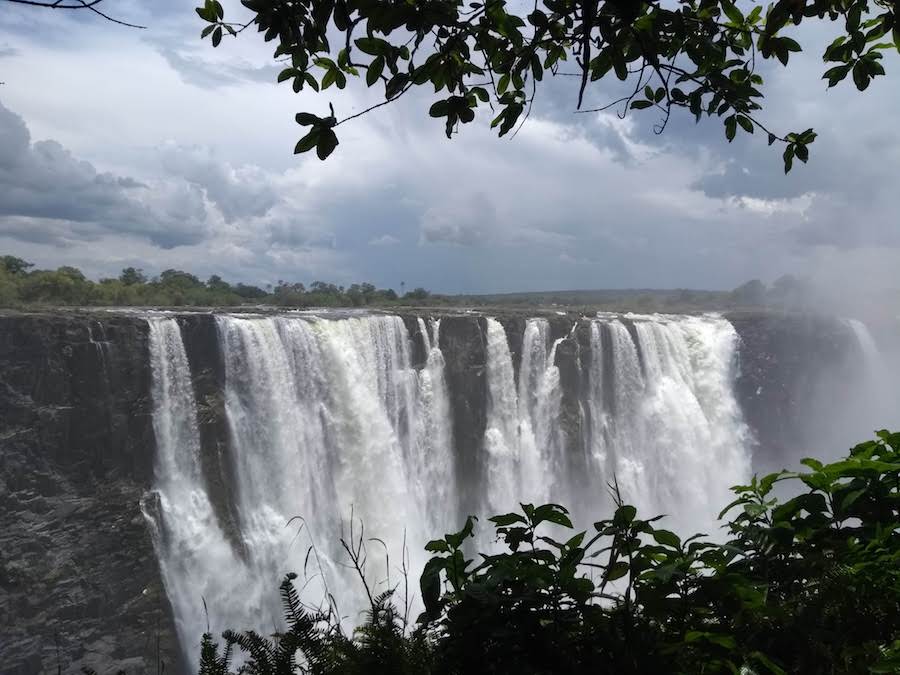
While the most famous landmark is Mosi-o-tunya (the smoke that thunders), most commonly referred to as Victoria Falls , there’s a plethora of pure beauty hidden in pockets spanning the country.
Zambia is about the size of Texas, but traveling between destinations can take much longer due to the road networks and conditions, but that means less construction and more natural landscapes. So even with the logistical challenges, those that choose to venture here will be rewarded with unique scenery and exciting wildlife among little to no tourist crowds.
Although there aren’t any beaches in the landlocked country, Zambia is drowning with rivers, lakes, waterfalls, and even a few natural hot springs.
Perhaps the best part about living in Zambia for the past two years has been getting to know some of the warmest people I’ve truly ever met. People are quick to smile and have taught me so much in terms of hard work, patience, and resilience. I must admit that Zambia is the most difficult place I’ve ever traveled due to the vast distances alone, but it is grossly underrated as a travel destination.
Zambia’s Highlights
Wildlife: Zambia is home to the all of the Big Five, in addition to an abundance of other majestic animals such as wild dogs. Some of the best places for wildlife viewing are South and North Luangwa National Parks , Lower Zambezi National Park , Kasanka National Park (specifically to experience the largest mammal migration in the world!), and Kafue National Park . One may find the safari costs and crowds much smaller than neighboring Tanzania.
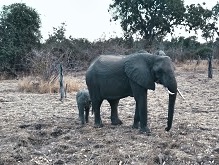
Water: Lake Tanganikya, Lake Bangweulu, and Lake Kariba are some of the large bodies of water suitable for swimming, fishing, boat rides, or just lazing at the beach. The Zambezi River is also a popular spot for water activities.
If you’re itching to chase more than one waterfall, Northern Zambia has got plenty. Kundalila, Chishimba, Kalambo, Kabweluma, and Lumangwe are a few noteworthy waterfalls , but there are plenty more in the watery north. Ngonye Falls is another impressive site with falls spanning 1km in Western Province. Getting to these waterfalls can be tricky as there is little public transport, so hitchhiking, hiring a private taxi, bicycling, or self-driving are the only options. You will be rewarded for these efforts by likely being the only people there to swim in the delightful falls! Most of these places have basic camp sites as well.
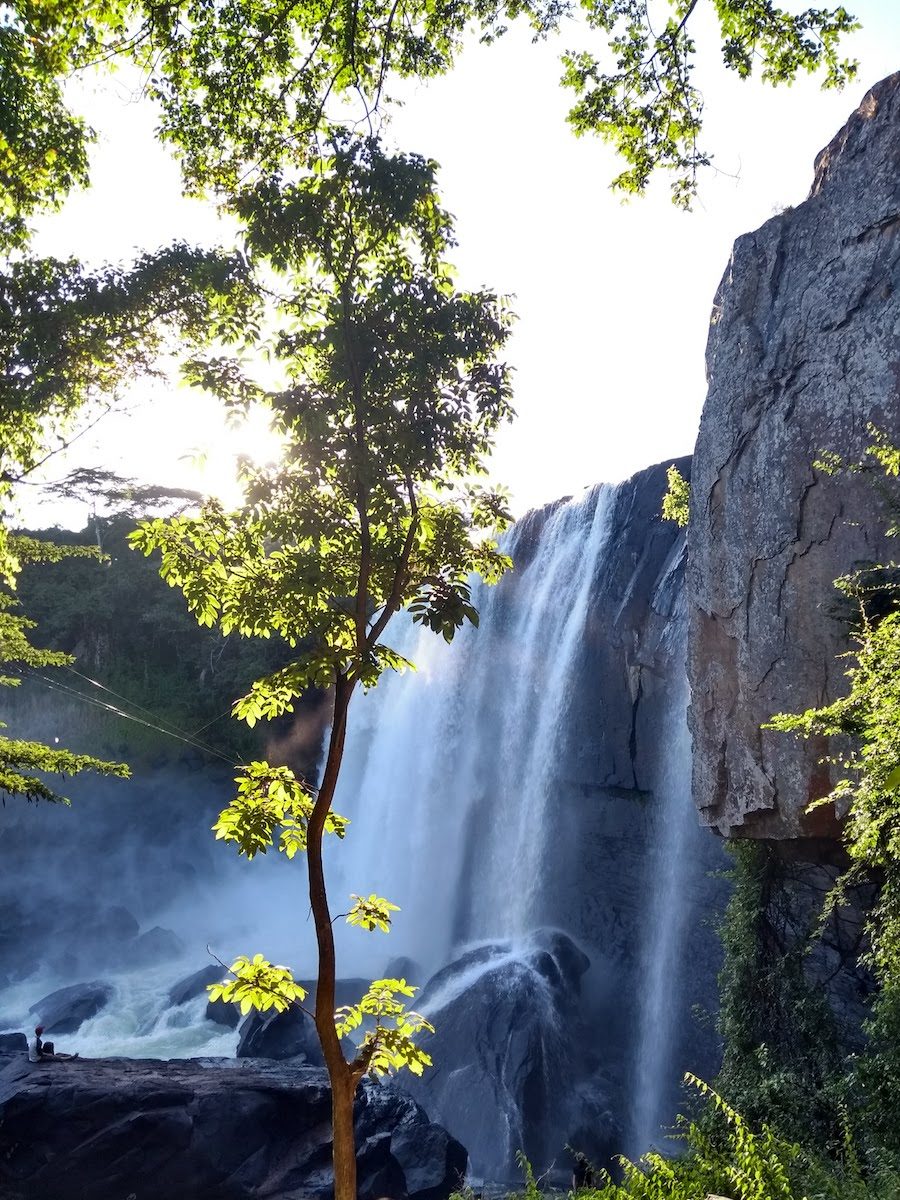
Culture: 73 languages are spoken in Zambia and they all come with their own cultures and traditions. Some tribes have annual festivals such as the Bemba festival (Ukusefya pa Ngwena) and Lozi Kuomboka ceremony. Check out the Zambia Tourism website for details.
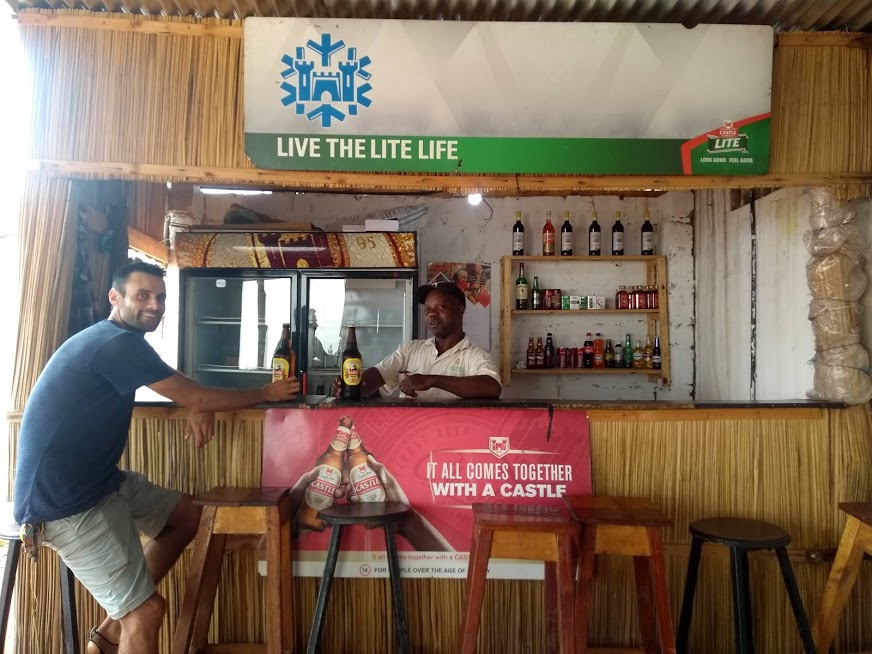
Where to Stay in Zambia
These are some of the best places to stay, recommended by Peace Corps Volunteers, around Zambia:
Where to stay in South Luangwa National Park: Marula Lodge – Affordable accommodations with a friendly staff and discounts for Peace Corps Volunteers!
Where to stay in Lusaka, Zambia: Lusaka Backpackers and Natwanga Backpakers are the most popular places for Peace Corps volunteers.
Where to stay in Livingstone, Zambia: Many of the backpacker places are more or less the same. Cafe Zambezi, Fawlty Towers, Jollyboys Backpackers, and Livingstone Backpackers are the most popular spots.
I recommend Fawlty Towers in Livingstone because they have a nice garden area and pool in the back and offer a free shuttle bus to Victoria Falls.
Where to stay in North Zambia: Lake Chila Lodge is a popular spot for the Mbala volunteers up North. It’s a good stopping point when visiting Lake Tanganikya and Kalombo Falls.
Samfya Marines Beach Lodge is popular amongst volunteers, but may be a bit on the expensive side. It has as private beach.
If you must stop in Nakonde , I recommend Muchinga Exquisite Lodge for a safe and cheap place. I don’t recommend Nakonde at all, but some people stop over en route to Tanzania if traveling by land and not the train.
Practical Zambia Travel Information
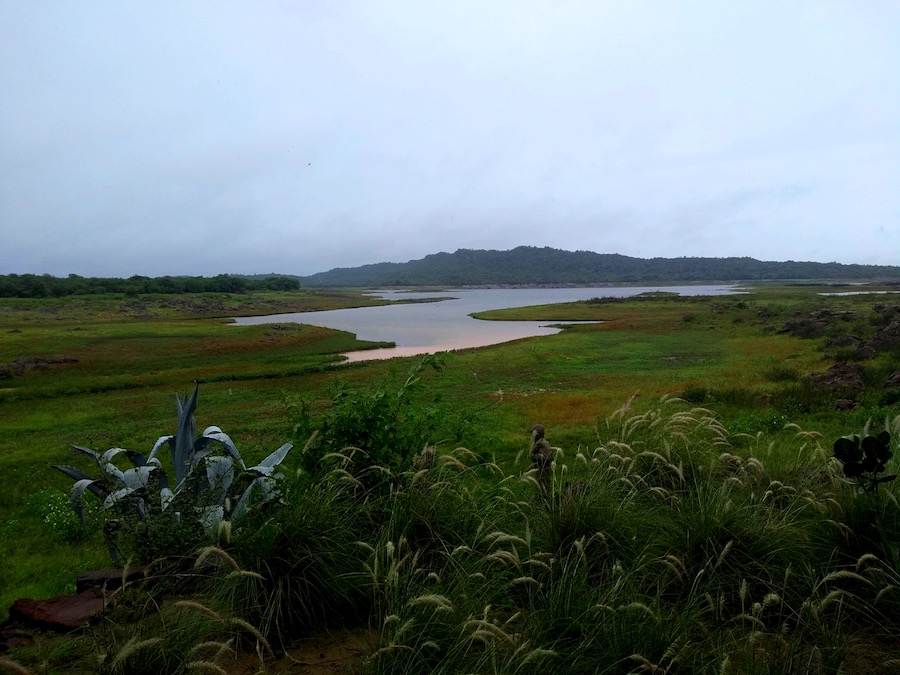
When to visit Zambia
May – July: Cool dry season. You won’t see a drop of rain, but it can get quite chilly at night in Lusaka. August – October: Hot dry season. Fields burn to prepare for planting season to add more to the heat. October is especially brutal, though the dry season is a good time for wildlife viewing. Victoria Falls may not be as powerful toward the end of the dry season. November: First half is dry and then the rains trickle in toward the end of the month, depending on the region (the north is wetter than the south). This is the best time to view the bat migration at Kasanka National Park. December – April: Rainy season. Vibrant green landscapes and mangoes litter the ground, though wildlife is more difficult to spot. Some unpaved roads become impassable during heavy rains.
Costs in Zambia
Like most destinations, budgets can vary wildly. Barebone backpackers can survive on as little as $30 USD per day but the sky is the limit for those seeking luxurious experiences. Most people will find a suitable budget to meet their comfort levels.
Average costs as of March 2020: A bottle of local beer: K10 ($0.66 USD) A filling Zambian meal of nshima (thick maize porridge), fish, and vegetables: K25-50 ($1.60 – $3.20 USD) A western meal: K60-150 ($4 USD – $10 USD) A bed in a dorm room: From K100 ($6.60 USD) A double bed in a very basic lodge: From K150 ($9.95 USD) A comfortable private room in a nicer lodge: From K300 ($19.90 USD) A bus from Livingstone to Lusaka: From K200 ($13.27 USD) but constantly changing due to gas prices
Communication: Cell phones in Zambia
If you have an unlocked phone, it’s easy to get a SIM card for less than a dollar, though you will need to show your passport. From there, you can buy Talk Time to add money for purchasing minutes and data at affordable prices. 4G is available in cities, but the network is spotty otherwise. Airtel and MTN are the two main providers. WiFi isn’t very common.
Getting Around Zambia
Transport will be a large chunk of your budget as well as time spent in the country. But remember that it’s all part of the journey and worth it if you have the time!
Bus: Large “luxury” buses shift people between all major cities with only a few stops, so moderate your fluids intake on long rides! They generally leave on time and it is advisable to purchase tickets at the station the day before. By law, buses are not allowed to operate at night for safety reasons. Gospel music is often played loudly on the bus, so bring some headphones or ear plugs if you are sensitive to loud music.
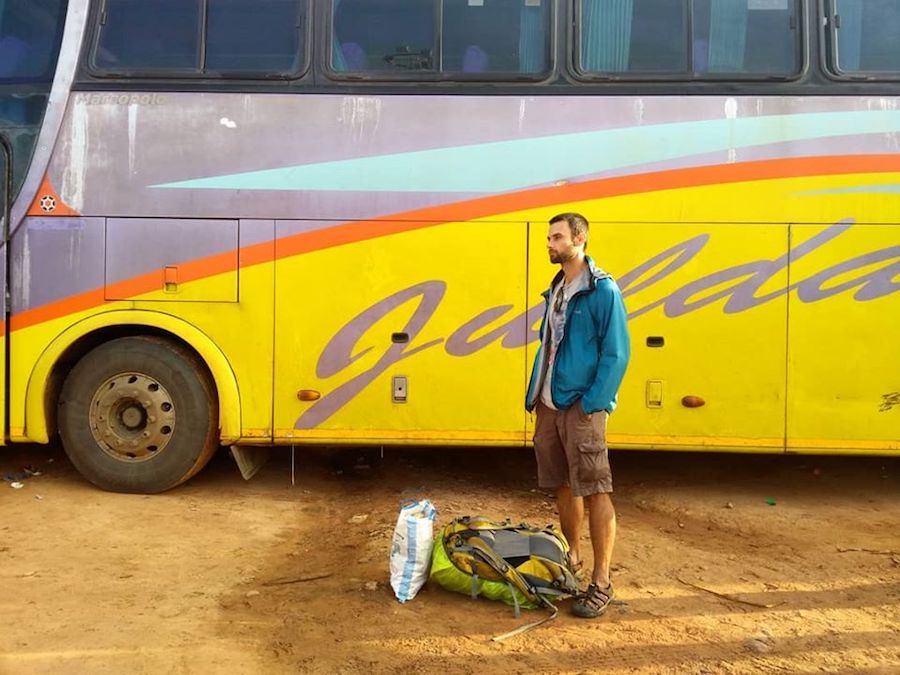
Mini-bus: They only leave when full and make frequent stops along the journey, so this option can be longer and less comfortable than the bus even though the prices are comparable.
Train: There are slow passenger trains from Livingstone to the Copperbelt as well as the TAZARA from Kapiri-mposhi all the way to Dar es Salaam, Tanzania. The trains are notorious for being late, but it is an affordable and safe option for those who have the time and genuinely enjoy train travel.
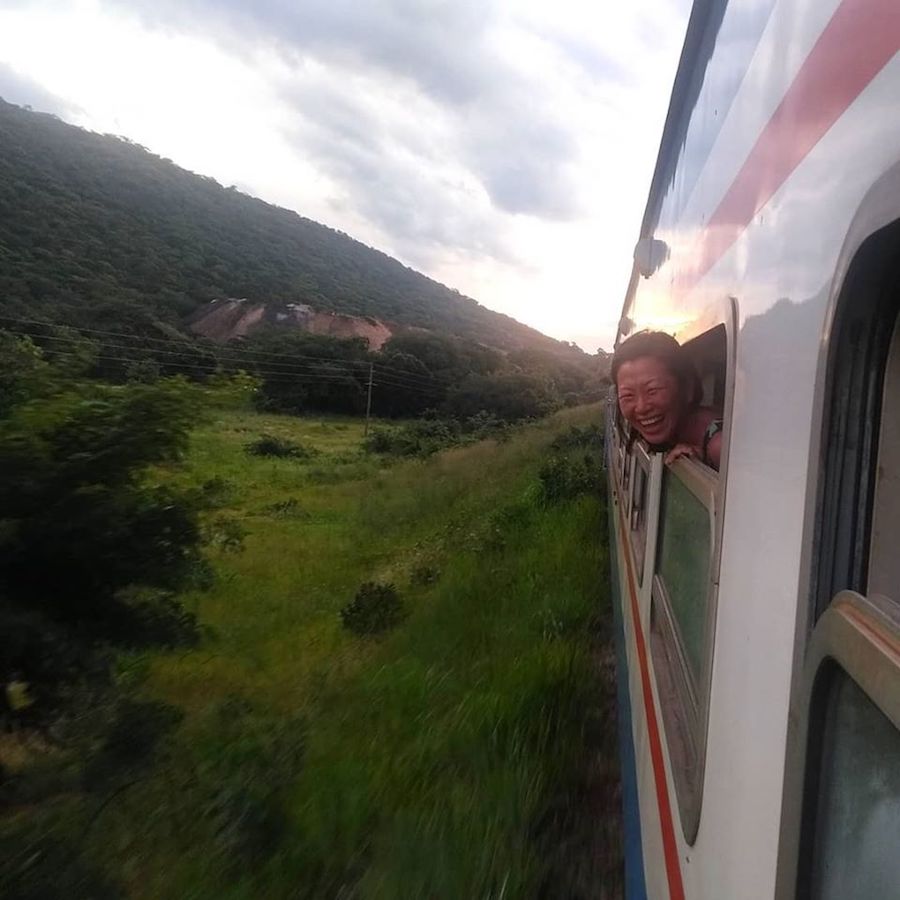
Air: Small planes fly between Lusaka and tourist spots like Livingstone and Mfuwe. It is also possible to charter flights if you’ve got the cash but not the time.
Taxi: Private taxis can be expensive, but cost-effective if split between a group. I recommend using the Ulendo app, which is similar to Uber, when moving within Lusaka.
Self-drive: For freedom and flexibility, rent a car to drive yourself. Some tarmac roads can be laden with potholes and are quite narrow, so it can be intimidating to share the road with semi-trucks. It is not advisable to drive at night. A 4WD is recommended if you plan to veer off the tarmac. Don’t always trust Google maps in terms of travel times – it often will be slower. And remember to drive on the left!
Hitchhiking: I don’t officially recommend hitchhiking, but if you are comfortable doing it and have prior experience, you’ll find it relatively easy and safe hitching in Zambia. Catching lifts is a common form of transportation among locals, especially in areas that lack sufficient public transport. It is standard to pay a fee to the driver, but it is often less than what the bus would cost and significantly more comfortable. Semi-truck drivers are the most likely to give lifts but private vehicles do as well. I’ve met some interesting people while hitchhiking around Zambia. As always, use your best judgment and exercise caution.
Zambia’s Languages
English is one of the official languages and should fare a traveler well in most towns and tourist places in Zambia. However, there are 73 local languages and cultures throughout the country. People generally appreciate it when a foreigner tries to speak the local language, but it can also be insulting to come at somebody using a language that they don’t speak.
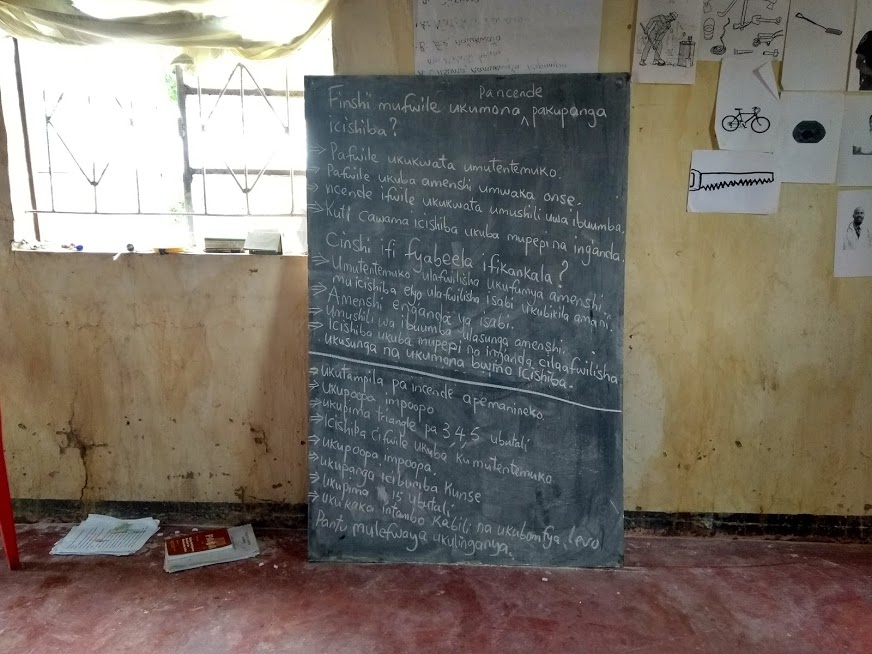
Here’s a general breakdown of the most popular languages in the regions that should be safe to use, but again, there is so much variation even within these provinces.
Lusaka: English, Nyanja. Honestly a little of everything! Southern Province: Tonga Western Province: Lozi Eastern Province: Nyanja Central, Luapula, Muchinga, Northern, and Copperbelt Provinces: Bemba Northwestern Province: Kaonde
Cultural things to know and travel etiquette in Zambia
Cultures vary greatly between tribes, but here are a few general tips that are useful for visitors to know:
– Traditionally, greetings are of utmost importance. When you pass someone in the rural area, acknowledge each other’s presence with a greeting. This isn’t practiced so much in towns, but it’s still important to say hello and how are you before getting right down to business.
– Both men and women should wear long skirts or pants as thighs are sexualized body parts.
– Zambia is a Christian nation, so transport can be trickier on Sundays and some businesses may be closed.
– Eat and shake hands with your right hand only.
– Tipping is not expected but always appreciated.
– If somebody calls you fat, it is a compliment, so try with all of your soul not to feel bad about it. I am a small Asian girl and got called fat on several occasions, though by people I know and not just strangers.
– Be mindful about taking photos of people. First, ask yourself what the purpose of the photo is, if you would take such a photo of a random person in your home country, and what will be done with that photo. Ensure you ask for consent.
Is Zambia safe for travelers?
Zambia is generally peaceful and a very safe place to be. Like anywhere, always exercise caution, especially in towns at nighttime. Try to avoid walking alone at night. Take trusted taxi drivers. Don’t flash around your valuables. You know, basic safety stuff you’d do at home!
It is pretty safe for a woman to travel solo in Zambia, but cat calling and harassment are not uncommon in busy areas. I sometimes feel uncomfortable being squished amongst men in public transport, so opt to sit in the front near the driver if possible. Befriending a woman nearby not only helps alleviate the situation if someone is bothering you, but Zambian women are generally strong and cool to get to know!
Homosexuality is illegal in Zambia unfortunately. LGBT travelers may find it difficult to have to hide their identity. Since I cannot speak to the experiences of LGBT individuals, I asked a friend what his advice would be for queer travelers in Zambia. He advised to avoid public displays of affection (this goes for hetero couples as well). If you want to be extra cautious, disable dating apps. He also mentioned that nose rings may be a signal for homosexuality, so taking it out may be a good idea, particularly if you are male-identifying.
Staying Healthy
I am not a doctor trained to give health advice, but it is a good idea to do your research and perhaps see a travel doctor before coming to the region. Some concerns travelers may encounter are malaria, tuberculosis, Bilharzia, giardia, and traveler’s diarrhea.
Some medications can be found locally and are cheaper here than your home country. Prevention is key! Opt to stay at places that have bed nets, drink clean water, and keep a small medical kit with a thermometer and malaria test kit. Oral rehydration solution packets can also be handy.
*Take 10% off any travel-size bug spray at rangerready.com with code IntentionalTravelers10 >

General Zambia Travel Tips
– Always travel with toilet paper, hand sanitizer, and small change. Sometimes it can be difficult to break 100 kwacha bills.
– Look out for citenge material or traditional fabric. You can get clothes and accessories tailored affordably. Makes for a great souvenir or gift!
– When at produce markets, it is standard to ask for a “top up” if you buy a lot of things. Just say “mbasela?” and the vendor may laugh and throw in an extra banana.
– You must pay for plastic bags at many supermarkets, so that’s another incentive to carry around a reusable bag!
– Download the iOverlander app for information about landmarks and accommodation. It’s helpful even if you are not driving in the region.
– Join the Mzungu group chats to connect with fellow travelers in the region.
– If you haven’t already, educate yourself about the white savior complex and poverty porn and keep these in mind if you are seeking to volunteer or go on “village tours” in the region.
Mwaiseni ku Zambia! Welcome to Zambia.
✈️ Protect your Zambia trip with Travel Insurance – We’ve started using Nomad Insurance by Safety Wing for affordable evacuation, international medical, and trip coverage.
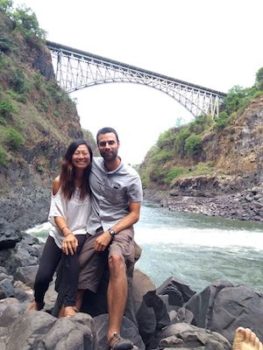
You might also like:
– 6 Places You Must Visit in Malawi – Off the Beaten Path Small Town Digital Nomad Destinations – A Quick Guide to Couchsurfing – 5 Selfish Benefits of Peace Corps
Like this post? Pin it for later or share with friends!
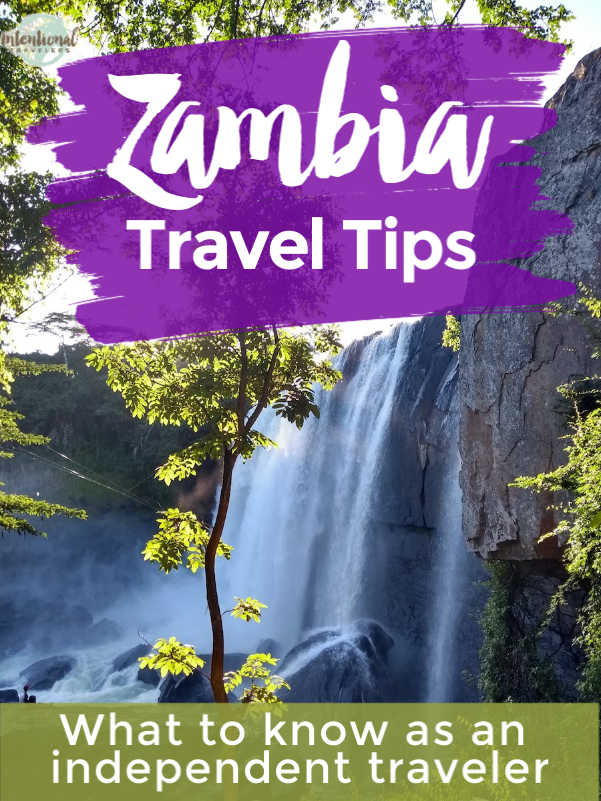
Similar Posts
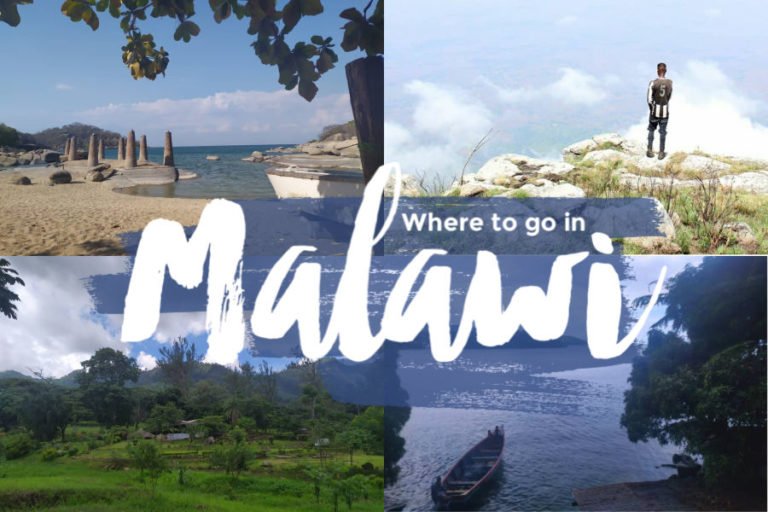
6 Places You Must Visit in Malawi
We are proud members of the U.S. Peace Corps community and love to partner with our fellow Peace Corps Volunteers, who often have some of the best insights into the culture and authentic travel experiences available in their host country. We asked Madisen Hughes, a former Volunteer and current resident in Malawi, to share her…
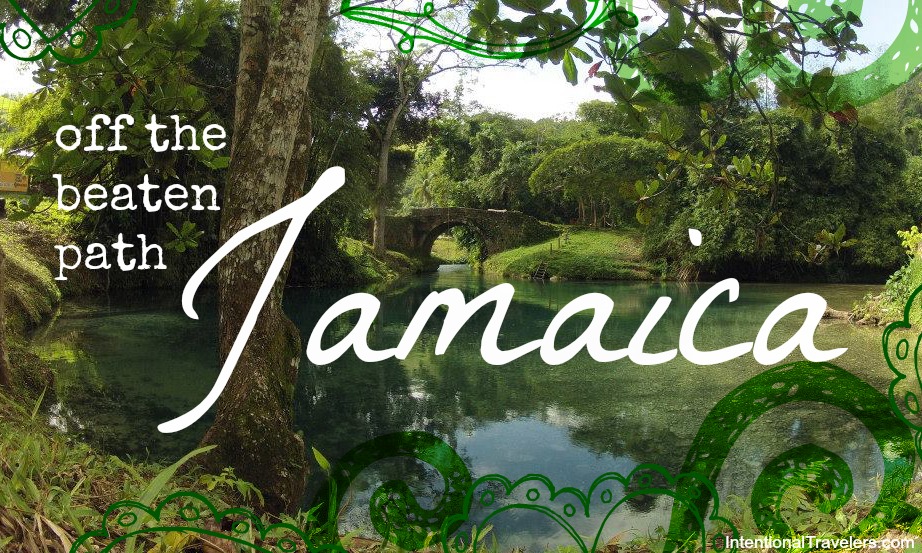
Favorite Places to Visit in Jamaica: Off the Beaten Path
Having lived and served as Peace Corps Volunteers for over two years in Jamaica, we’ve had the opportunity to explore a fair amount of the island. Our experiences ranged from weekend trips on our limited PC budget to the more indulgent vacation days shared with our visiting family and friends. With a strong Volunteer network…
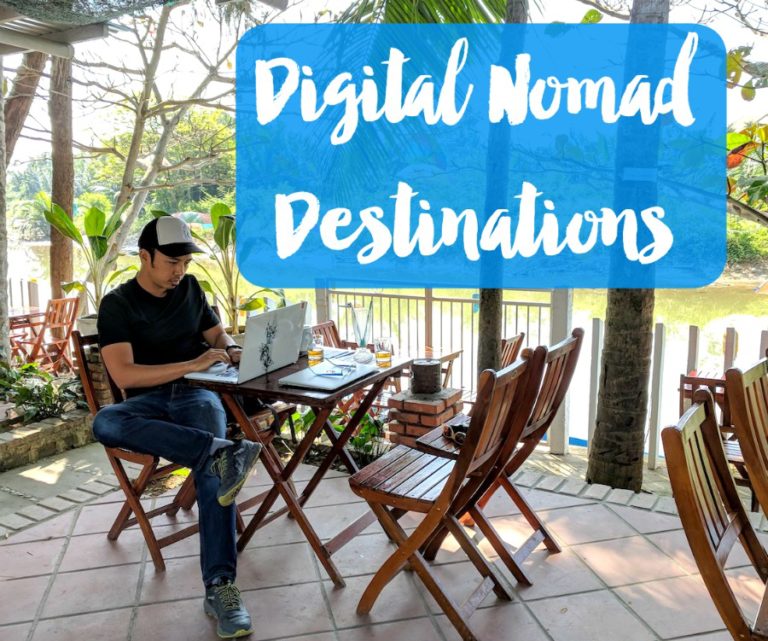
Off-the-beaten-path Small Town Digital Nomad Destinations
If you’re like us, finding the best small town destinations and off-the-beaten-path gems is a big reason why we love working remotely. Since becoming digital nomads in 2014 and trying out various places to live and work abroad, we’ve learned an important lesson: Some of the big “digital nomad hubs” are not really our style….
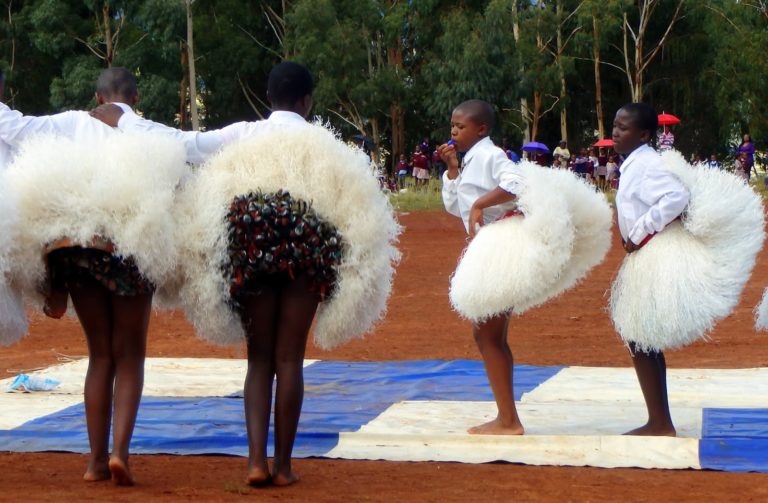
5 Lessons We Can Learn From Basotho Women
When we were Peace Corps Volunteers, our appreciation of cross-cultural exchange really grew. In an effort to promote cross-cultural understanding through our blog, we share posts from our fellow intentional travelers who have interesting stories and important lessons from abroad. Today’s guest post comes from Beth Spencer, a Peace Corps Volunteer in Lesotho, Africa. We…
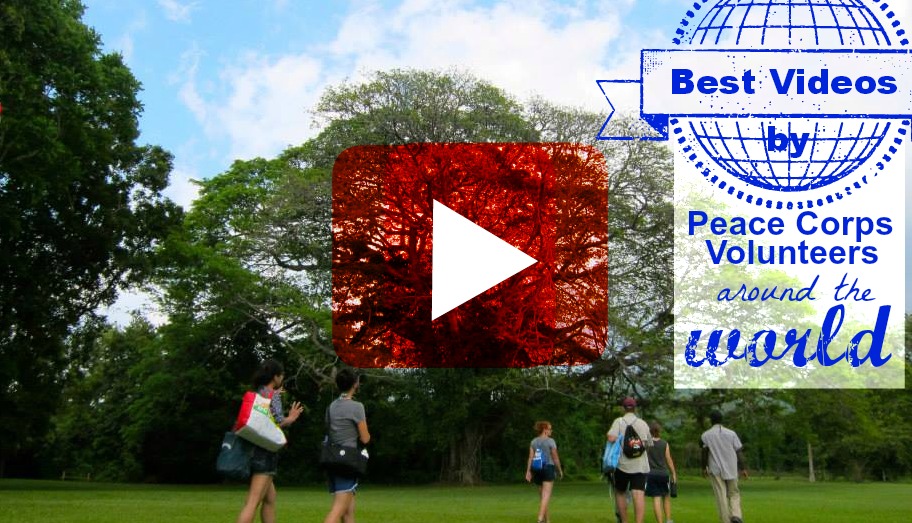
Best Videos by Peace Corps Volunteers Around the World
For decades, dedicated Peace Corps volunteers have ventured to all corners of the globe, bringing their passion, skills, and care to communities in need. Beyond their invaluable on-ground efforts, some volunteers have also captured their experiences in vivid detail, offering us a glimpse into the diverse cultures, challenges, and triumphs they encounter. As Returned Peace…
Zambia is the least place I would consider as a travel destination. However, your post has enlightened me on fun things to do on my visit
ZAMBIA is situated in Central Africa, your headline states east Africa.
Hi and thanks for visiting our blog and taking the time to write. Can you share more specifically where you are seeing that error in our post? I’m not finding it in the title, headings, or anywhere else in our text.
Leave a Reply Cancel reply
Your email address will not be published. Required fields are marked *
This site uses Akismet to reduce spam. Learn how your comment data is processed .
8-day journey through Zambia

Nov 15, 2022 • 12 min read
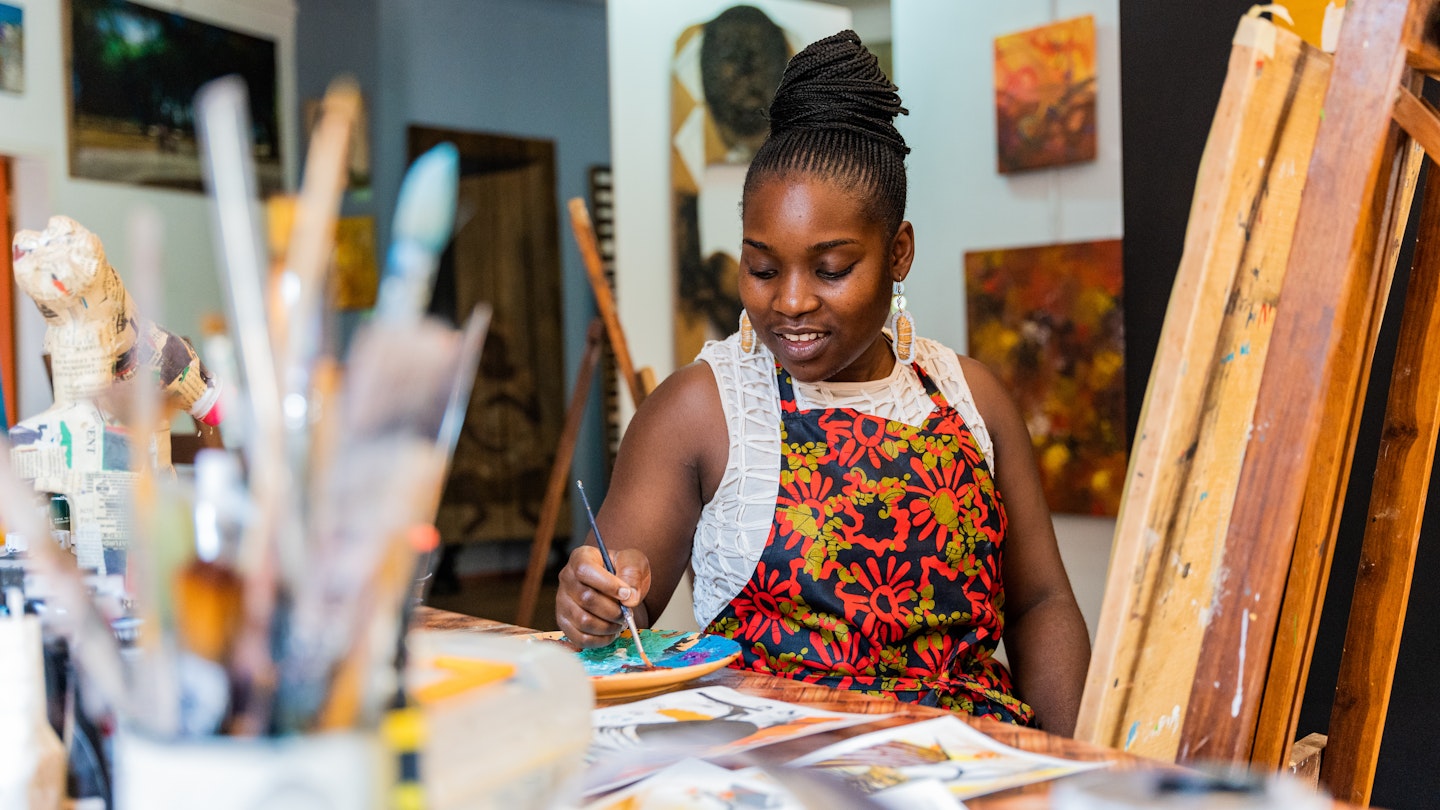
Wayi Wayi Art Gallery holds frequent workshops © Jason Mulikita/Lonely Planet
With memorable activities like swimming on the ledge of a mighty waterfall to walking safaris, it’s surprising Zambia is less visited than other spots on the continent of Africa.
We recommend making it top of mind if you are considering a journey that involves spotting wildlife.
Mazuba Kapambwe-Mizzi shows you how to plan a wonderful week in zesty Zambia, her home country.

I have been a travel writer for almost 10 years, and have lived in Germany, Ethiopia, New York and Washington, DC. Yet I’ve spent half my life in my home country of Zambia. From my first time on a safari, where I went canoeing on the banks of the Zambezi river, to getting married at Victoria Falls, the heritage sites and culture of my country still leave me in awe.

Why you should visit Zambia
A landlocked country in Southern Africa , Zambia brims with waterfalls, lakes and national parks that make it an ideal destination for learning about history, experiencing culture and (of course) setting out on safari. You’ll find fewer visitors here than in neighboring countries like Botswana and Zimbabwe – making for more intimate experiences with more personal attention from guides.
The over 70 ethnic groups in the country host colorful traditional festivals throughout the year. The Kuomboka ceremony in Western Zambia, for example, involves the Lozi ethnic group migrating from lower flooded land to higher land, complete with a large barge; the Ncwala ceremony in the East sees locals don animal skins to celebrate the annual harvest.
Since the country is large and destinations spread out, it is best to select two regions to explore during a week-long stay.

Explore lively Lusaka
Begin your first day in the Zambian capital of Lusaka with a cup of Zambian coffee and breakfast at Latitude 15 Degrees , a boutique hotel in the suburb of Kabulonga. In the same neighborhood, Meraki is a women-owned cafe that serves all-day breakfast. (standouts include the red-velvet cake, and the robust Meraki Breakfast, which consists of eggs, crispy bacon, hash browns, beef-and-pork sausage and baked beans).
Next, check out work by such Zambian visual artists as Stary Mwaba, Mulenga Chafilwa and more at the stArt Foundation’s 37D Gallery on Middleway St. Mwaba’s large-scale acrylic paintings feature colorful profiles of subjects, while Chafilwa’s mixed-media work often depicts multiple subjects placed in urban settings, and responds to socio-economic themes such as unemployment. Proceeds from the sale of art at 37D go toward funding workshops for disadvantaged children and other social enterprises. Also on the property, Rock Cafe is ideal for an iced coffee or a snack like bacon quiche or chocolate brownie.
Book a taxi or use local ride-sharing apps Ulendo or Yango and head down Leopards Hill Rd for about 9.3 miles (15km) before turning on Chifwema Rd to the entrance to Lusaka National Park , the smallest of the country’s 20 parks. The park hosts an elephant orphanage run by Game Rangers International: visit at 11am to watch the majestic animals feed, then do a loop around the park in your vehicle to potentially see antelopes, zebras and giraffes. On your way out, purchase locally made artisan products like baskets, jewelry, Zambian-grown coffee or honey from Lusaka Collective, which has an outlet at the park’s discovery center. This entire mini safari should take about two hours.
Arguably Lusaka’s best restaurant scene is concentrated in the tree-lined suburbs of Long Acres and Rhodes Park. For sushi, freshly made wraps and grill-fired steaks, Three Trees is a favorite. (We’d recommend a reservation during the busy lunch hour.) Eataly Pizzeria serves up tasty pies (try the quattro stagioni or chicken diavola) and pastas (we love the penne alfredo).
For traditional Zambian cuisine, visit Mpoto Yatu on Omelo Mumba St. Order nshima, the corn-based staple food of the country, and pair it with a protein such as kafue bream or goal-meat stew. Every meal is served with vegetables, ranging from brown beans, okra to ifisashi (kale cooked in a peanut sauce).
After lunch, explore Zambia’s political and cultural history at the Lusaka National Museum , where artifacts on display include t-shirts from former political campaigns, as well as baskets and pottery made by Zambian ethnic groups including the Lozi and Tonga. The main floor of the museum features rotating exhibitions of contemporary art.
As the sun sets, have a margarita, Moscow Mule or glass of wine together with guac and chips at Cantina, Lusaka’s only Mexican-inspired restaurant, in the Kabulonga district. Make dinner reservations back at Latitude 15, or trendy hangout spot The Other Side, on the same premises. On Friday evenings, sit by the pool and end the night with live music (from 9–11pm) played by a rotating list of local musicians. Want a nightcap? Ask for Jeff the bartender, who makes excellent mojitos.

The falls call
Have a quick breakfast, then head to the airport for the hour-long flight to Livingstone , Zambia’s tourist capital. Check into the mid-range Avani Hotel or its sister property, the more luxurious Royal Livingstone. Both are in close proximity to Victoria Falls , with the Avani offering a private entrance for guests at the back of the property.
After lunch at either Avani’s Shungu pool terrace restaurant or Royal’s The Old Drift, it’s time for the main event. Take in breathtaking views by walking the knife-edge bridge that crosses the falls as you admire the “eternal rainbow” generated by the mist. (Be sure to wear a raincoat if you don’t want to be soaked by the spray.) Additionally, you can hike downhill to the Boiling Pot whirlpool at the base of the falls.
At 4pm, choose between a sunset cruise on the Zambezi River – hippo and elephant sightings are likely – or a safari in Mosi-oa-Tunya National Park , where you can expect to see giraffes, elephants, antelopes and white rhinos (the last guarded by armed rangers). Both activities, bookable through a hotel or travel agent, last about two-and-a-half hours.
Return to the hotel for dinner at Avani (live musicians perform on Friday evenings) – or, for a typically Zambian evening, enjoy traditional food, music and storytelling at the Mukuni Boma. This experience recreates the Zambian way of eating a meal with family and friends while catching up on the latest gossip.

See Victoria Falls from a different perspective
Get up bright and early for an activity-filled day at the falls. You can take a “micro flight” or helicopter ride to see the falls from above (15 minutes from $179; 30 minutes from $360). Another option is bungee jumping ($160) at the Victoria Falls Bridge, a 364ft (111m) span across the Batoka Gorge with the Zambezi River below.
You can also conquer the 13 rapids of the Zambezi River by white-water rafting ($150). An ever-appealing option is a dip in the Devil’s Pool , a natural rock pool at the edge of the falls (guided tours from $98). Another thrilling activity is the gorge swing ($95), during which you’ll free-fall 230ft (70m) into the Batoka Gorge with a full-body harness attached to your back.
Adrenaline-inducing activities will have you working up an appetite, so head into Livingstone’s center (the locals call it simply “town”) and have a lunch of burgers and fries at Kubu Cafe , or Italian fare at Olga’s (don’t miss the crocodile pizza). Stop into Lavender Cafe across the street from Kubu for a nice post-meal cappuccino.
Work off the calories by taking a walk on the main street, past buildings from the early 20th century that date to Livingstone’s time as Zambia’s colonial capital. Pop into the Livingstone Museum for a lesson in the history of the region and country, with historic photographs, traditional produce and life-size models of local wildlife on display.
Culture lovers can take a taxi to Wayi Wayi, an art gallery run by visual artists Lawrence and Agnes Yombwe where paintings, drawings, sculptures and work in other media is exhibited. The Livingstone National Gallery offers rotating exhibits of contemporary pieces by local artists.
For a truly special dinner, enjoy five courses featuring ceviche, canapés and Wellington beef aboard the Royal Livingstone Express , a 1920s steam train outfitted with leather and upholstered seats, and tables laid out with white linens. The four-hour excursion takes you through Mosi-oa-Tunya Park (where you may see elephants and impalas on the savannah) and across the Victoria Falls Bridge.

Luxury back in Lusaka
Spend the last morning in Livingstone with a guided tour at Mukuni Village, home to the Toka-Leya culture. You’ll learn fascinating things about this people – who are jointly ruled by a female ruler, and whose male chiefs each swallow a rock when they take power (this is removed upon their death and passed on to the next ruler in line). If you are lucky, you may even be granted an audience with Chief Mukuni, the area’s traditional leader. A village craft shop is perfect for such souvenirs and gifts as baskets and beads.
Catch a flight back to Lusaka and check into Ciêla Resort, 20 minutes from the airport. At this extensive estate, you can relax by the pool, play golf, have lunch at The Brewery restaurant (which brews its own beer), view art at Chena Gallery or have a spa day. The coffee body wrap and the hot-stone massage are especially indulgent.
Make dinner reservations at Botanica, the newest gastronomy restaurant on the estate. On his six- and 12-course tasting menus, chef Sungani Phiri elevates Zambian cuisine by taking inspiration from traditional dishes and modernizing them. For example, impwa, a green, pod-shaped vegetable with a bitter aftertaste usually cooked in a tomato-and-onion stew, is here puréed into a hummus, while the fermented white beverage munkoyo becomes a stylish cocktail.

Head into the bush
Take a plane to South Luangwa National Park in Mfuwe, Eastern Zambia, where a guide will meet you and take you to your safari lodge of choice. Budget travelers can consider Croc Valley (where dorm-style rooms cater to large groups) and Marula Lodge (select a chalet overlooking the river); mid-range options include Thornicroft and the newly opened Bush Box (where rooms occupy converted shipping containers).
Luxury lodges include Chinzombo (where each of the six luxury tents has a private patio), Sungani (a remote camp that requires an additional flight to reach) or Puku Ridge (an intimate eight-tent resort featuring views of wildlife on the Luangwa plains).
Have lunch at your lodge, then relax a bit. At 3:30pm, coffee, tea and snacks are served at the communal dining area, before everyone heads out into the bush at 4pm for an evening game drive. You’ll see amazing sunsets on the plains, cool off with a sundowner and likely spot everything from lions and wild dogs to nocturnal animals like hyenas, bush babies and hippos.
You’ll arrive back at your lodge for a leisurely dinner and dessert. If visiting during the colder months of June and July, you can gather at the outdoor fire in the communal area to reflect on your wildlife sightings with fellow guests.
Watch all the wildlife
Mornings on safari begin with a 5:15am wake-up call. A light breakfast of granola, yogurt, fruits and coffee or tea is served at 5:45 – then it’s off for your morning game drive. Keep your eyes peeled for the Thornicroft giraffe, a species only found in South Luangwa. It is distinguishable from other African giraffes by its smaller size, darker markings and its lack of a patterned hide below the knees.
A couple of hours into your morning, your guide will park the car and you’ll all embark on a walking safari, a more intimate way to observe wildlife. You can expect to learn how to track animals from their footprints and dung, identify such trees as the baobab and tamarind, and discover nature’s many practical applications. Did you know, for example, that burning elephant dung repels tsetse flies? Or that a porcupine quill can stop a nosebleed? These are things I have learned on walking safaris.
After lunch at the lodge, take part in a paint workshop at home-decor company Tribal Textiles, which reinvests profits into community-conservation projects. Another social enterprise worth supporting in the area is Mulberry Mongoose, whose artisans make jewelry using confiscated animal snares and other creative materials (think a “rhino conservation snare bracelet” made from snare wire, vegetable-ivory seed and Zulu seed). Head back to the lodge for afternoon tea and snacks – followed by another evening safari and dinner at the lodge.
The following morning, tick the remaining animals off your list with a final safari session.
After a last lunch at your lodge, head back to Mfuwe airport for the one-hour flight to Lusaka.
Back in the capital, have dinner at one of East Park Mall’s numerous restaurants. Night Jar is known for good cocktails, Marlin is known for its pepper steak and the newly opened Prime Catch caters to fish lovers (try the smoked salmon salad or the hake).

Stock up on handmade souvenirs
If still on Great East St, have a cappuccino and breakfast at Vida Cafe, Brew Me or Corner Cafe. If it’s a weekend, Arcades Shopping Center hosts a weekly crafts market where various stalls sell accessories, brightly colored fabric called chitenge, baskets and more. (As prices are not fixed, you will have to haggle with vendors – an experience in itself.) If traveling during the week, head to Kabwata Cultural Village for items like key chains, fridge magnets and baskets.
Take a taxi or drive down Great East St toward Chongwe to The Orchard, a farm-to-table restaurant with flower-filled, Instagram-friendly gardens. Order the smoked barbeque ribs or the honey-glazed salmon – before heading to the airport and home after an unforgettable week.
Want to head to Zambia but wish there was someone to plan this out for you? Let Lonely Planet’s sister company Elsewhere take away some of the stress of planning by connecting you with the best local expert to craft your dream trip.
Explore related stories
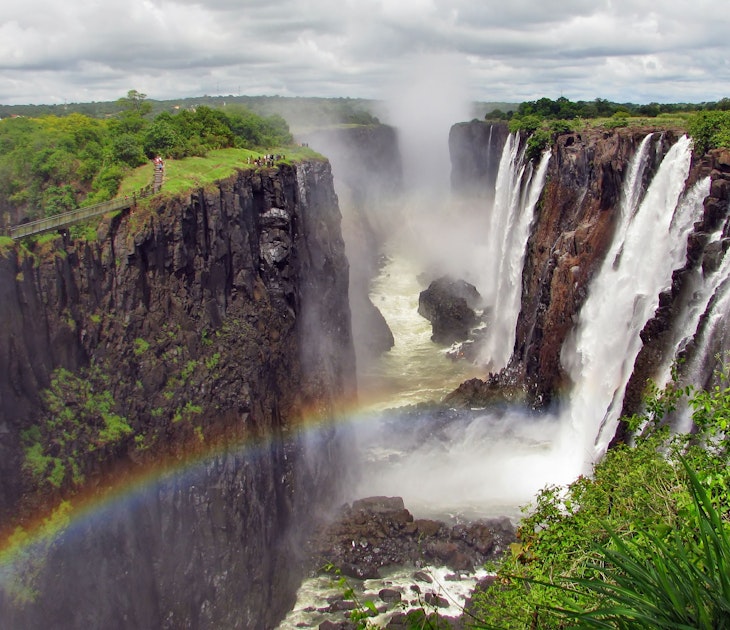
Best in Travel - 2023
Nov 15, 2022 • 1 min read
Follow gamer Mark Mpundu as he shows you his idea for the perfect day in Livingstone, Zambia.
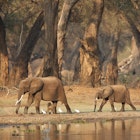
Apr 25, 2024 • 7 min read
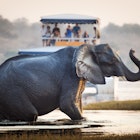
Feb 20, 2024 • 17 min read

Jan 5, 2024 • 20 min read

Jan 2, 2024 • 11 min read
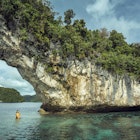
Dec 8, 2023 • 6 min read
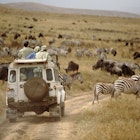
Nov 23, 2023 • 9 min read
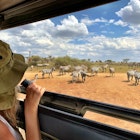
Nov 15, 2023 • 6 min read
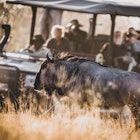
Oct 29, 2023 • 12 min read
Winter is here! Check out the winter wonderlands at these 5 amazing winter destinations in Montana
- Travel Tips
The Ultimate Zambia Travel Guide
Published: October 15, 2023
Modified: January 3, 2024
by Haleigh Kopp
- Plan Your Trip
- Travel Guide
Introduction
Welcome to the ultimate Zambia travel guide! Located in the heart of southern Africa, Zambia is a breathtaking destination that offers an array of natural wonders, cultural experiences, and thrilling adventures. From the majestic Victoria Falls to the rich wildlife reserves, this landlocked country has something to captivate every traveler.
Whether you’re an adventure enthusiast seeking adrenaline-fueled activities or a nature lover yearning to explore the diverse ecosystems, Zambia has it all. Immerse yourself in the stunning landscapes, encounter unique wildlife species, and embrace the warmth of Zambian hospitality.
In this comprehensive travel guide, we’ll provide you with invaluable tips and insights to make the most of your trip to Zambia. From the best time to visit to visa requirements, local cuisine to accommodation options, and everything in between, we’ve got you covered.
Discover the hidden gems of Zambia by embarking on wildlife safaris in the iconic South Luangwa National Park or Lower Zambezi National Park. Indulge your adventurous side with heart-pounding activities like bungee jumping, white-water rafting, and walking safaris. Immerse yourself in the vibrant Zambian culture by visiting local villages and participating in traditional ceremonies.
Whether you’re planning a family vacation, a romantic getaway, or a solo expedition, Zambia offers a unique blend of nature, culture, and adventure. So, fasten your seatbelts and get ready for an unforgettable journey through the unspoiled beauty of Zambia.
Best Time to Visit Zambia
Planning your trip to Zambia? Consider the best time to visit, as the weather and wildlife sightings vary throughout the year. The peak travel seasons in Zambia fall between May and October, during the dry winter months when the weather is mild, and wildlife concentrations are high.
May to August is an ideal time to explore Zambia, as the weather is cooler, and the landscapes are lush and vibrant. It is also the prime time for wildlife viewing, as animals gather around water sources, making it easier to spot them during game drives and boat safaris. However, do note that popular parks like South Luangwa and Lower Zambezi can get crowded during this period.
For those seeking a more exclusive experience, consider visiting in the shoulder seasons of April and September. The weather is still pleasant, and the parks are less crowded. This allows for a more intimate encounter with the wildlife and a chance to explore the parks in a more tranquil setting.
From November to March, Zambia experiences its rainy season, characterized by high temperatures and frequent downpours. While this is generally considered the low season, it does have its own unique charm. The lush green landscapes, blooming flora, and baby animals make it an enchanting time for photography enthusiasts and nature lovers.
However, keep in mind that some remote areas may become inaccessible due to flooding, and certain lodges and camps might be closed during this period. It’s essential to check with your travel operator and plan accordingly.
Overall, when planning your visit to Zambia, consider the activities you want to engage in, your tolerance for crowds, and your preferences for weather conditions. With careful consideration, you’ll be able to choose the perfect time to experience Zambia’s natural beauty and wildlife in all its glory.
Getting to Zambia
When it comes to getting to Zambia, there are several convenient options for travelers. The country is served by international airlines, and there are direct flights from major cities in Africa, Europe, and other parts of the world.
Most international visitors arrive at Kenneth Kaunda International Airport (LUN) in Lusaka, the capital city of Zambia. This airport is well-connected to various destinations, making it an accessible entry point. From there, you can easily connect to other domestic airports or continue your journey to different regions of Zambia.
If you’re planning to visit the iconic Victoria Falls, you may consider flying directly to Harry Mwanga Nkumbula International Airport (LVI) in Livingstone, which is located near the falls. This airport receives both international and domestic flights, and it offers a convenient gateway to explore the wonders of the Zambezi River.
For those traveling from neighboring countries, road transportation is an option. Zambia has a well-maintained road network, and you can enter the country through border crossings with Tanzania, Malawi, Zimbabwe, Namibia, Botswana , and Angola. However, keep in mind that road travel can be time-consuming and may require multiple visa entries, depending on your itinerary.
Once you arrive in Zambia, various transportation options are available to help you navigate the country. Domestic flights are offered by local airlines, connecting major cities and popular tourist destinations. This is a convenient option if you want to save time and cover long distances.
If you prefer a more scenic and immersive experience, consider using the extensive bus network in Zambia. Buses are affordable and connect major cities and towns, allowing you to witness the landscapes and interact with locals along the way.
In urban areas like Lusaka and Livingstone, you’ll find taxi services and ride-hailing apps like Uber. Car rental services are also available if you prefer the freedom and flexibility of having your own vehicle.
Before traveling to Zambia, it’s essential to check the latest travel advisories, visa requirements, and transportation options available. Adequate planning and research will ensure a smooth and seamless journey to this captivating African destination.
Visa Requirements
Before traveling to Zambia, it’s crucial to familiarize yourself with the visa requirements to ensure a hassle-free entry into the country. The visa regulations may vary depending on your nationality, so it’s essential to check with the Zambian diplomatic mission or consulate in your home country for the most up-to-date information.
Many nationalities can obtain a visa upon arrival at the international airports in Lusaka and Livingstone. This visa allows for a single entry and is valid for a specific duration, usually up to 90 days. Payment for the visa can be made in cash or by card, and it’s advisable to have the exact amount in US dollars or Zambian Kwacha.
If you prefer to have your visa arranged in advance, you can apply for an e-Visa through the Zambian Immigration Department’s official website. The e-Visa allows for single or multiple entries and has a validity period of up to 90 days.
For those planning an extended stay or multiple visits to Zambia, it’s advisable to apply for a visa at a Zambian embassy or consulate prior to your arrival. This will allow for a longer validity period and multiple entries, if needed.
When applying for a visa, you will typically be required to provide a completed application form, a valid passport with at least six months of validity, recent passport-sized photographs, proof of accommodation in Zambia, a return or onward ticket, and evidence of sufficient funds to support your stay.
It’s important to note that visa regulations are subject to change, so it’s advisable to check for any updates or changes in the visa requirements before you travel. Additionally, some nationalities may be exempt from visa requirements or may be eligible for visa waivers based on bilateral agreements.
For travelers planning to visit Zambia in combination with other countries in the region, such as Zimbabwe or Botswana, you may consider obtaining a multi-entry visa or a UniVisa. This special visa allows for multiple entries into both Zambia and Zimbabwe and is valid for up to 30 days. It offers a convenient option for exploring the breathtaking Victoria Falls from both sides of the border.
Remember, it is always better to be well-prepared and have the appropriate visa in advance to ensure a smooth and stress-free entry into Zambia, allowing you to focus on enjoying your incredible adventure in this beautiful country.
Currency and Exchange Rates
The currency of Zambia is the Zambian Kwacha (ZMW). When visiting Zambia, it’s important to familiarize yourself with the local currency and exchange rates to ensure a smooth financial experience during your trip.
Exchanging foreign currency into Zambian Kwacha is relatively easy, as there are several banks and authorized foreign exchange bureaus located in major cities and towns. The exchange rates may vary slightly between different establishments, so it’s advisable to compare rates and fees before making any transactions.
It’s recommended to carry some cash in the form of US dollars or euros as these currencies are widely accepted and can be easily exchanged into Zambian Kwacha. Credit and debit cards are also widely accepted in most hotels, restaurants, and larger establishments, but it’s always a good idea to carry some cash for smaller transactions and in case of any unforeseen circumstances.
ATMs are available in major cities and towns, and they dispense cash in Zambian Kwacha. However, it’s important to note that some ATMs may have limitations on the maximum withdrawal amount, so it’s advisable to check with your bank regarding any international withdrawal limits or fees that may apply.
When using your credit or debit card in Zambia, inform your bank or card provider about your travel plans in advance to avoid any unexpected issues with your transactions. Additionally, be cautious when using your card at smaller establishments or in more remote areas, as card payment facilities may be limited.
It’s also worth noting that the use of traveler’s cheques in Zambia is not very common, and it can be challenging to find establishments that accept them. Therefore, it’s generally more convenient to rely on cash or card payments.
Lastly, it’s important to be aware of current exchange rates and be cautious when exchanging money with unauthorized individuals or street vendors. It’s always best to use reputable establishments and banks to ensure fair rates and avoid any scams or counterfeit currency.
By familiarizing yourself with the currency and exchange rates in Zambia, you’ll be well-prepared to handle your financial transactions and make the most of your trip without any concerns or inconveniences.
Transportation in Zambia
When it comes to getting around in Zambia, there are several transportation options available to suit different preferences and budgets. Whether you’re exploring the cities or venturing into the wilderness, here are some common modes of transportation in Zambia:
1. Public Buses: Public buses, known locally as “minibuses” or “kombis,” are a popular and affordable mode of transportation in Zambia. These minibuses operate on fixed routes and can be crowded, but they provide a convenient way to travel between cities and towns. Keep in mind that schedules may not always be reliable, so it’s important to plan accordingly.
2. Taxis: Taxis are readily available in urban areas like Lusaka and Livingstone. Some taxis operate with meters, while others require negotiation of fares upfront. It’s advisable to use reputable taxi services or ride-hailing apps for a more reliable and safer experience.
3. Car Rental: Renting a car gives you the freedom to explore Zambia at your own pace. Several car rental companies operate in major cities and at airports. It’s important to have a valid driver’s license and familiarize yourself with the local traffic rules and road conditions before embarking on a self-drive adventure.
4. Domestic Flights: If you’re looking to save time and cover long distances, domestic flights are available between major cities and popular tourist destinations. Local airlines offer regular flights, allowing you to reach your desired destinations quickly and conveniently.
5. Boats and Ferries: Zambia is home to stunning rivers and lakes, including the Zambezi River and Lake Kariba. Boats and ferries provide scenic transportation options, particularly for reaching remote areas or crossing bodies of water.
6. Guided Tours: Booking guided tours with reputable tour operators is a popular choice for exploring national parks, wildlife reserves, and cultural attractions in Zambia. These tours often include transportation, accommodation, and knowledgeable guides who can enhance your experience.
It’s important to note that transportation options may vary depending on your specific destination and the remoteness of the area you plan to visit. If you’re unsure about the best mode of transportation for your trip, consult with local tour operators or seek advice from fellow travelers who have visited Zambia.
Remember to plan your transportation in advance, especially during peak travel seasons, and always prioritize safety by choosing reputable transportation providers. With the right transportation choices, you can easily navigate Zambia and make the most of your journey in this vibrant and diverse country.
Top Tourist Attractions in Zambia
Zambia is famous for its exceptional natural beauty and diverse wildlife, offering visitors a plethora of captivating attractions. Whether you’re a nature lover, adventure enthusiast, or culture seeker, there’s something for everyone in this remarkable country. Here are some of the top tourist attractions in Zambia:
1. Victoria Falls: Located on the border between Zambia and Zimbabwe, Victoria Falls is one of the most awe-inspiring natural wonders in the world. Also known as “The Smoke That Thunders,” the waterfall is a UNESCO World Heritage Site and a must-visit destination. Experience the power and beauty of the falls through activities like a guided tour, scenic helicopter flights, or adrenaline-pumping white-water rafting.
2. South Luangwa National Park: Recognized as one of Africa’s premier wildlife sanctuaries, South Luangwa National Park is a haven for wildlife enthusiasts. Embark on thrilling game drives or walking safaris to spot an abundance of wildlife, including elephants, lions, leopards, and hippos. The park’s picturesque landscapes and diverse ecosystems make it a paradise for photographers and nature lovers.
3. Lower Zambezi National Park: Nestled along the banks of the mighty Zambezi River, the Lower Zambezi National Park offers a pristine wilderness experience. Encounter herds of elephants, graceful giraffes, and elusive predators while exploring the park on game drives, walking safaris, or canoeing trips. The park’s scenic landscapes and beautiful river views provide a truly immersive African safari experience.
4. Kafue National Park: Covering a massive area of over 22,000 square kilometers, Kafue National Park is one of the largest national parks in Africa. Its diverse habitats support a wide range of wildlife, including big cats, antelopes, and over 400 bird species. Take a boat safari on the Kafue River or explore the park on a guided game drive to witness the incredible biodiversity of this untouched wilderness.
5. Livingstone: Named after the legendary explorer Dr. David Livingstone, the town of Livingstone is the gateway to the Victoria Falls. Explore the colonial-era architecture, visit the Livingstone Museum to learn about the region’s history, or embark on thrilling activities such as bungee jumping, microlight flights, or sunset cruises on the Zambezi River.
6. Lake Kariba: Created by the Kariba Dam on the Zambezi River, Lake Kariba is a vast man-made reservoir known for its serene beauty and excellent fishing opportunities. Enjoy boat cruises, fishing trips, or simply relax on the shores, taking in the stunning sunset views.
These are just a few of the many remarkable attractions that Zambia has to offer. From its natural wonders to its cultural heritage, Zambia will captivate you with its beauty, adventure, and warm hospitality. So, pack your bags and get ready to create unforgettable memories in this extraordinary African destination.
Wildlife Safaris in Zambia
Zambia is a paradise for wildlife enthusiasts, offering incredible opportunities to witness diverse species in their natural habitats. With its vast national parks and wildlife reserves, the country is renowned for its authentic and immersive wildlife safaris. Here’s everything you need to know about wildlife safaris in Zambia:
1. South Luangwa National Park: Considered one of Africa’s greatest wildlife sanctuaries, South Luangwa National Park offers exceptional game viewing opportunities. Explore the park on thrilling game drives led by experienced guides, and spot a wide variety of animals, including elephants, lions, leopards, buffaloes, and zebras. Night drives provide a chance to encounter elusive nocturnal creatures and witness the park come alive after dark.
2. Lower Zambezi National Park: Nestled along the Zambezi River, Lower Zambezi National Park is famous for its scenic beauty and diverse wildlife. Embark on game drives, walking safaris, or boat cruises to witness elephants bathing in the river, hippos lazing in the water, and predators on the prowl. Canoeing trips offer a unique perspective, allowing you to experience the park’s wildlife up close while gliding silently on the water.
3. Kafue National Park: Covering a vast area, Kafue National Park is known for its abundant wildlife and diverse ecosystems. Game drives in Kafue offer opportunities to spot lions, cheetahs, leopards, and antelopes. Birdwatching enthusiasts will be delighted by the park’s rich avian population, with over 400 bird species calling Kafue home.
4. Liuwa Plain National Park: For an off-the-beaten-path safari experience, visit Liuwa Plain National Park. This remote and untouched park is famous for its large wildebeest migration, attracting predators like lions and hyenas. Witness the vast herds across the open grasslands and marvel at the stunning sunsets that the park is known for.
5. North Luangwa National Park: For an adventurous and remote safari experience, North Luangwa National Park is the place to be. This park offers walking safaris, providing an up-close and intimate encounter with the wildlife. Immerse yourself in the sights, sounds, and smells of the bush as you track animals on foot, guided by expert rangers.
When embarking on a wildlife safari in Zambia, it’s important to respect the animals and their natural habitats. Follow the guidance of your experienced guides, keep a safe distance from wildlife, and adhere to the park regulations to ensure the animals’ welfare and your own safety.
With its untamed beauty and remarkable wildlife, Zambia guarantees an unforgettable safari experience that will leave you in awe of the natural world. So, pack your binoculars, camera, and a sense of adventure, and prepare for an incredible journey through Zambia’s mesmerizing wilderness.
Adventure Activities in Zambia
Zambia is not only a destination for wildlife enthusiasts but also an adventure lover’s playground. With its diverse landscapes and thrilling natural wonders, the country offers a wide range of exhilarating activities for adrenaline junkies. Here are some top adventure activities to experience in Zambia:
1. Bungee Jumping at Victoria Falls: For an adrenaline rush like no other, take a leap of faith and bungee jump off the famous Victoria Falls Bridge. Plummet 111 meters towards the rushing Zambezi River, with the iconic waterfall as your backdrop.
2. White-Water Rafting: Ride the rapids of the Zambezi River for an unforgettable white-water rafting experience. The powerful currents and breathtaking scenery create an exhilarating adventure as you navigate through the Batoka Gorge, tackling thrilling rapids along the way.
3. Canoeing Safaris: Explore the tranquil waterways of the Zambezi River or the Lower Zambezi National Park on a canoeing safari. Paddle along the river, encountering elephants, hippos, crocodiles, and a rich variety of birdlife. It’s an immersive and serene way to connect with nature.
4. Walking Safaris: Get up close and personal with Zambia’s wildlife on a walking safari. Accompanied by professional guides, explore the untamed wilderness on foot, observing animals in their natural habitats, learning about the local flora and fauna, and experiencing the thrill of being in the midst of the African bush.
5. Microlight Flights: Soar above the magnificent landscapes of Livingstone and the Victoria Falls on a microlight flight. Feel the wind in your face as you enjoy breathtaking aerial views of the falls, the Zambezi River, and the surrounding wilderness. It’s a unique perspective that offers a truly unforgettable experience.
6. Helicopter Tours: Take to the skies in a helicopter and marvel at the sheer scale and beauty of the Victoria Falls. Enjoy panoramic views as you fly over the cascading waters, capturing stunning photographs and memories from a bird’s-eye view.
7. Zip-lining and Canopy Tours: Swing through the treetops and soar across the lush landscapes on a thrilling zip-lining or canopy tour. Traverse between platforms and walkways, taking in the beauty of the forest canopy and enjoying an adrenaline-pumping adventure.
These are just a few examples of the many exciting adventures that await in Zambia. Whether you’re seeking heart-pounding thrills, breathtaking natural beauty, or a unique perspective on the country’s wonders, Zambia has it all for the adventurous soul.
Cultural Experiences in Zambia
Immerse yourself in the rich cultural heritage of Zambia and discover the vibrant traditions, customs, and history of its diverse ethnic groups. From engaging with local communities to witnessing traditional ceremonies, Zambia offers a multitude of cultural experiences. Here are some captivating cultural activities to enjoy:
1. Visit Traditional Villages: Journey off the beaten path and visit traditional villages to gain insights into the daily lives of Zambian communities. Interact with locals, learn about their customs, and witness traditional practices such as basket weaving, pottery making, or traditional cooking methods.
2. Attend a Traditional Ceremony: Zambia is known for its vibrant cultural festivals and ceremonies that showcase the customs and beliefs of various ethnic groups. From the Kuomboka ceremony of the Lozi people to the Lwiindi Gonde ceremony of the Tonga people, attending these events offers a unique window into Zambian traditions and rituals.
3. Explore Livingstone Museum: Located in the town of Livingstone, the Livingstone Museum is the oldest and largest museum in Zambia. It houses a remarkable collection of artifacts, exhibits, and historical information that delve into the country’s cultural and natural heritage, providing valuable insights into the diverse ethnic groups of Zambia.
4. Traditional Music and Dance: Experience the vibrant rhythms and energetic dances of Zambia through traditional music and dance performances. Local musicians and dancers showcase their talent and cultural expressions, often accompanied by traditional instruments such as drums, xylophones, and thumb pianos.
5. Taste Zambian Cuisine: Sample the flavors of Zambia by indulging in traditional Zambian cuisine. From nshima (a staple made from maize meal) to traditional stews and grilled meats, the local cuisine reflects the country’s cultural diversity and agricultural heritage. Don’t miss the opportunity to try local delicacies such as bream fish from Lake Kariba or caterpillar sautéed with spices.
6. Arts and Crafts: Explore local markets and artisan workshops to discover a wide array of Zambian arts and crafts. From intricate wood carvings to vibrant textiles, hand-woven baskets, and beautiful beadwork, these crafts reflect the creativity and craftsmanship of Zambian artisans.
Engaging in these cultural experiences allows you to connect with the people of Zambia, gain a deeper appreciation for their traditions, and contribute to the preservation of their cultural heritage. By embracing the diverse cultures of Zambia, you will leave with unforgettable memories and a greater understanding of this fascinating country.
Accommodation Options in Zambia
Whether you prefer luxury lodges or budget-friendly options, Zambia offers a variety of accommodation choices that cater to different needs and preferences. From wilderness camps to riverside lodges, you’ll find a place to rest and rejuvenate after your adventures. Here are some popular accommodation options in Zambia:
1. Luxury Lodges: Zambia is home to several luxury lodges that provide an indulgent and exclusive experience. These lodges often offer spacious and elegantly-appointed rooms, gourmet dining options, spa facilities, and personalized services. Many luxury lodges are situated in prime wildlife viewing areas, allowing guests to enjoy game drives and other activities in style and comfort.
2. Wilderness Camps: For a more rustic and immersive experience, consider staying at one of the wilderness camps in national parks and wildlife reserves. These camps are designed to blend seamlessly with the natural surroundings and provide an authentic African bush experience. Accommodations range from comfortable tents with en-suite facilities to rustic chalets or thatched-roof huts.
3. Safari Lodges: Safari lodges are a popular choice for those seeking a balance between comfort and authenticity. These lodges often offer spacious rooms with en-suite bathrooms, dining facilities, and common areas where guests can relax and share their safari experiences. Many safari lodges are strategically located for easy access to wildlife-rich areas.
4. Guesthouses and B&Bs: In urban areas and smaller towns, guesthouses and bed and breakfasts offer affordable and comfortable accommodation options. These establishments provide cozy rooms and often include breakfast in the rate. Staying at a guesthouse or B&B allows you to interact with locals and get a glimpse of everyday Zambian life.
5. Camping: For adventurous travelers, Zambia offers various camping options. National parks and private campsites provide facilities for both self-catering and fully serviced camping experiences. Camping allows you to immerse yourself in the wilderness and fall asleep to the sounds of nature.
6. Eco-Lodges: As sustainability becomes increasingly important, eco-lodges have gained popularity in Zambia. These lodges focus on environmentally friendly practices and providing a low-impact experience. Eco-lodges often incorporate renewable energy sources, organic food options, and local community involvement.
With the range of accommodation options available, it’s advisable to book in advance, especially during the high season, to secure your preferred choice. Consider your budget, location preferences, and desired level of comfort when selecting your accommodation in Zambia. Regardless of your choice, you’ll find warm Zambian hospitality and the chance to unwind amidst the country’s breathtaking natural beauty.
Local Cuisine and Dining in Zambia
Zambian cuisine is a true reflection of the country’s rich cultural diversity and agricultural abundance. From traditional dishes to international flavors, the food in Zambia is flavorful, hearty, and often includes fresh local ingredients. Here’s a glimpse into the local cuisine and dining experiences in Zambia:
Nshima: Nshima is the staple food of Zambia and is similar to a thick porridge made from maize meal. It is typically served as a accompaniment to various dishes and is enjoyed with your hands by rolling it into small balls and dipping it into different sauces.
Grilled Meats: Zambia is renowned for its delicious grilled meats. From succulent beef and tender pork to flavorful game meat like crocodile, impala, and warthog, you’ll find a variety of roasted and barbecued meats served with side dishes.
Kapenta: Kapenta is a small, dried fish that is a popular ingredient in Zambian cuisine. It is often cooked with tomatoes, onions, and spices, and served with nshima or as a relish.
Chikanda: Chikanda, also known as African polony or African sausage, is a unique Zambian delicacy. It is made from ground wild orchid tubers, peanuts, and spices and is typically served as a snack or appetizer.
Ifisashi: Ifisashi is a traditional Zambian dish made from vegetables such as pumpkin leaves or spinach, cooked in a peanut-based sauce. It is commonly served with nshima and provides a flavorful and nutritious vegetarian option.
Mbuzi Choma: Mbuzi Choma, or roasted goat meat, is a popular delicacy in Zambia. The meat is marinated with local spices, grilled over an open fire, and often enjoyed as a festive celebration or special occasion dish.
Fruits and Vegetables: Zambia is blessed with an abundance of fresh fruits and vegetables. From juicy mangoes and sweet pineapples to flavorful avocados, you’ll find an array of tropical fruits to enjoy. Local markets are a great place to explore and sample the diverse selection of seasonal produce.
When dining out in Zambia, you’ll find a range of options from casual eateries and street food stands to fine dining restaurants. In urban areas like Lusaka and Livingstone, you’ll find a variety of international cuisines alongside Zambian dishes, offering a fusion of flavors for all tastes and preferences.
Don’t forget to also try traditional beverages such as maheu (a fermented maize drink) or refreshing fruit juices made from local fruits. And for those seeking a traditional Zambian social experience, visit one of the local drinking establishments known as “shebeens” to enjoy a cold beer and interact with the friendly locals.
Exploring the local cuisine in Zambia is not only a treat for your taste buds but also an opportunity to immerse yourself in the country’s cultural fabric and culinary traditions. So, don’t be afraid to indulge in the hearty and flavorful dishes that Zambia has to offer.
Health and Safety Tips for Travelers in Zambia
Ensuring your health and safety should be a top priority when traveling to Zambia. By following these important tips, you can have a safe and enjoyable trip:
1. Vaccinations and Health Precautions: Before traveling to Zambia, consult with a travel health professional to receive all necessary vaccinations such as typhoid, hepatitis A and B, measles, and yellow fever. Malaria is prevalent in Zambia, so it’s essential to take malaria prophylaxis and use mosquito repellent, especially in high-risk areas.
2. Safe Food and Water: To avoid foodborne illnesses, choose reputable restaurants and eateries that maintain proper hygiene standards. Drink only bottled water or water that has been properly treated, and avoid consuming raw or undercooked food, unpeeled fruits, and street food that may not be properly prepared or cooked.
3. Personal Safety: Like any travel destination, practicing personal safety precautions is important. Be aware of your surroundings, especially in crowded areas, and avoid flaunting valuable belongings. It’s advisable to use secure transportation, especially at night, and to keep your passport and important documents in a safe place.
4. Wildlife Safety: When on wildlife safaris or visiting national parks, always follow the instructions of your guide and keep a safe distance from wild animals. Respect their space and refrain from feeding or approaching them. It’s also crucial to adhere to park rules and regulations to ensure your safety and the conservation of wildlife.
5. Sun Protection: Zambia can have high temperatures and intense sunlight. Protect yourself from the sun by wearing sunscreen with a high SPF, a hat, sunglasses, and lightweight, loose-fitting clothing. Stay hydrated by drinking plenty of water, especially during outdoor activities.
6. Respect Local Customs: Zambia has a rich cultural heritage, and it’s important to respect local customs and traditions. Dress modestly, especially when visiting religious sites or attending traditional ceremonies. Always ask for permission before taking photographs of people or their properties.
7. Travel Insurance: It is highly recommended to have comprehensive travel insurance that covers medical expenses, trip cancellation or interruption, and personal belongings. Ensure that your insurance policy is valid in Zambia and covers any adventurous activities you plan to engage in.
8. COVID-19 Precautions: In light of the ongoing COVID-19 pandemic, stay updated on the latest travel advisories and follow all health protocols and guidelines issued by local authorities. This may include wearing masks, practicing social distancing, and frequent handwashing or sanitizing.
Remember, it’s always important to stay informed about the current situation in Zambia by checking travel advisories and consulting reliable sources of information. By taking these health and safety precautions, you can have a worry-free trip and fully enjoy the wonders that Zambia has to offer.
Essential Packing List for Zambia
When traveling to Zambia, it’s important to pack appropriately for the climate, activities, and cultural customs. Here’s a checklist of essential items to pack:
1. Lightweight Clothing: Pack lightweight, breathable clothing suitable for warm weather. Include shorts, t-shirts, lightweight pants, and skirts or dresses. Remember to dress modestly when visiting religious sites or participating in cultural activities.
2. Layered Clothing: Evenings and early mornings in Zambia can be cool, so pack a lightweight jacket, long-sleeved shirts, and a pair of long pants for added comfort.
3. Comfortable Walking Shoes: Bring comfortable walking shoes or hiking boots, especially if you plan to explore national parks or participate in walking safaris. Sandals or flip-flops are also useful for relaxing or walking around town.
4. Hat and Sunglasses: Protect yourself from the sun’s rays by packing a wide-brimmed hat and a pair of sunglasses with UV protection.
5. Swimwear: If you plan to visit the lakes, rivers, or swimming pools, don’t forget to pack your swimwear.
6. Insect Repellent: Mosquitoes are prevalent in Zambia, so bring a reliable insect repellent containing DEET or another effective ingredient to protect yourself from mosquito bites.
7. Sunscreen: The sun in Zambia can be intense, so pack a high SPF sunscreen to protect your skin from sunburn.
8. Medications and First Aid Kit: If you take any prescription medications, be sure to pack an ample supply for the duration of your trip. A basic first aid kit with band-aids, antiseptic lotion, pain relievers, and any necessary personal medications is also essential.
9. Travel Adapters and Chargers: Zambia uses Type C, D, and G electrical outlets, so bring the appropriate travel adapters and chargers for your electronics.
10. Travel Documents: Don’t forget to pack your passport, visa, travel insurance documents, and any other necessary identification or travel documents.
11. Cash and Cards: While you can find ATMs in major cities, it’s advisable to carry enough cash, preferably in small denominations, for smaller expenses and in case of any unforeseen situations. Additionally, bring a debit or credit card for larger purchases or emergencies.
12. Reusable Water Bottle: Stay hydrated by carrying a reusable water bottle and refill it from filtered water sources to minimize plastic waste.
13. Photography Gear: If you enjoy photography, don’t forget to pack your camera, extra batteries, memory cards, and any necessary accessories for capturing the stunning landscapes and wildlife in Zambia.
Remember to check the current weather forecast for your travel dates and pack accordingly. It’s also a good idea to leave some space in your luggage for any souvenirs or items you may purchase during your trip. By packing these essential items, you’ll be well-prepared for your journey and able to fully enjoy the wonders of Zambia.
As we wrap up this ultimate Zambia travel guide, we hope that you are now equipped with the knowledge and insights to plan an incredible journey to this captivating country. Zambia offers a combination of breathtaking landscapes, rich wildlife, vibrant cultural experiences, and thrilling adventures that will leave you with unforgettable memories.
From the majestic Victoria Falls to the abundant national parks such as South Luangwa and Kafue, Zambia’s natural wonders are a sight to behold. Embark on a wildlife safari, spot diverse animal species, and immerse yourself in the untouched beauty of the African bush. Engage with locals, attend traditional ceremonies, and savor the flavors of Zambian cuisine for a truly immersive cultural experience.
While exploring Zambia, prioritize your health and safety by taking necessary vaccinations, practicing safe food and water precautions, and respecting local customs. Remember to pack appropriate clothing, including sunscreen and insect repellent, as the climate can be hot and mosquitoes are prevalent.
Whether you’re seeking adventure activities like bungee jumping and white-water rafting or prefer a more tranquil experience like canoeing on the Zambezi River, Zambia has something to offer all types of travelers. Choose from a variety of accommodation options, ranging from luxury lodges to wilderness camps, to suit your preferences and budget.
As you embark on your Zambia adventure, be open to the unexpected, embrace the warmth and hospitality of the Zambian people, and marvel at the untamed beauty of the country’s landscapes and wildlife. The memories you create in Zambia will stay with you long after you leave.
So, pack your bags, put on your adventurous spirit, and get ready to explore the wonders of Zambia. From walking in the footsteps of explorers to encountering the Big Five in their natural habitats, Zambia is a destination that will leave you mesmerized and longing to return.

- Privacy Overview
- Strictly Necessary Cookies
This website uses cookies so that we can provide you with the best user experience possible. Cookie information is stored in your browser and performs functions such as recognising you when you return to our website and helping our team to understand which sections of the website you find most interesting and useful.
Strictly Necessary Cookie should be enabled at all times so that we can save your preferences for cookie settings.
If you disable this cookie, we will not be able to save your preferences. This means that every time you visit this website you will need to enable or disable cookies again.

Zambia Travel Guide
Your ultimate zambia travel guide, with tips, ideas on things to do, and best things to see in zambia. great for first-time and returning travelers..
The Smoke that Thunders is a suitable name for this impressive waterfall.
You can hear the roar from afar and feel the power when you are up close. Located in Livingstone, Zambia on the Zambezi River, Victoria Falls is one of the top sites to see in all of Africa.
The world’s largest waterfall by sheer volume, it dwarfs our beloved Niagara Falls in Canada.
Zambia, once known as Northern Rhodesia, is a former British colony and also the adventure capital of Africa!
This Zambia travel guide will help you plan your next vacation.
Popular Guides
- Best of Victoria Falls
- Bucket List Travels
Our Highlight
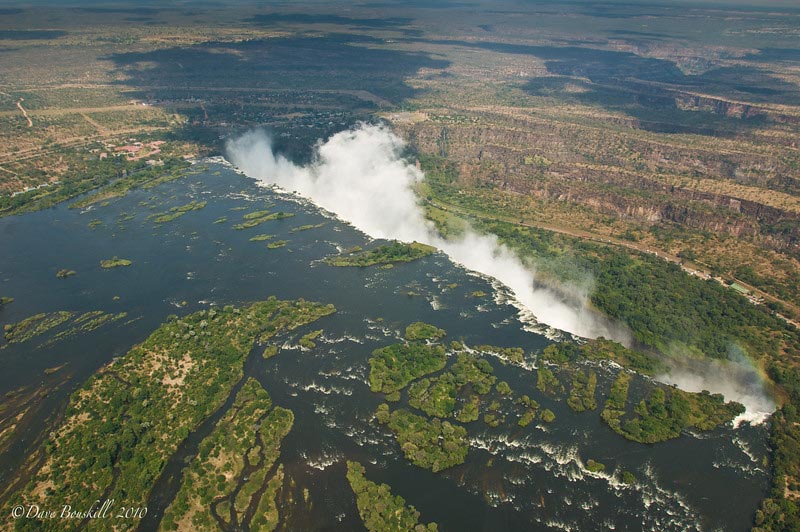
Table of contents
Table of Contents
Fast Facts about Zambia
- Zambia power voltage is 230V 50Hz; Plug C, D & G
- The Zambia currency is the Zambian kwacha and is around 5,000 ZMK to 1 USD
- Single and double entry visas can be obtained at the airport, border crossings or your local Zambian embassy. Multi-entry visas must be obtained in advance from an embassy.
- Beware of Chikungunya, a viral disease transmitted by the bite of infected mosquitoes. This outbreak continues to affect parts, Africa. Symptoms can take up to 12 days to appear but usually begin within 3-7 days after being bitten by an infected mosquito.
- Symptoms generally include fever and joint pain; other symptoms can include fatigue, headache, nausea, vomiting, muscle pain, and rash.
- Travelers spending a lot of time outdoors or visiting game parks have an increased risk of being bitten by a tsetse fly which can cause African Sleeping Sickness. Remember that these flies: bite during the day, are attracted to bright, dark colors and can bite through lightweight clothing.
- Camouflage or military clothing is not permitted so don’t pack it
- The water is not potable ; drink only bottled water.
- SIM Cards can be bought in major cities. Airtel, MTN and Vodafone are the carriers and prices are very reasonable.
Things to See and Do in Zambia
- We spent 3 days at the falls in Livingstone and we filled it with not stop thrills from start to finish. Dream Trip: Destination Victoria Falls
- Go on a walking safari to South Luangwa, which is one of the best places in Africa to spot big game on foot
- Go Whitewater rafting on the Zambezi River
- Sit at Devil’s Pool on the top of Victoria Falls
- Take a microlight flight or helicopter tour over Victoria Falls
Accommodation
Budget: You can find a variety of hostels and budget hotels for 185-550 ZMW per night. Enjoy hot showers, dorms or private rooms, shared kitchens, and nearby restaurants and shopping areas. Staff can sometimes help you out with finding good deals on local safaris or for general travel advice.
Mid-Range: For mid-range hotels, expect to pay around 660-1,800 ZMW per night. Amenities include rooms with flat-screen TVs and tea/coffee facilities, an outdoor pool with a lounge area, free breakfast, and a hotel restaurant and bar.
High-End: For five-star hotels, you will pay around 2,000-3,300 ZMW per night. These hotels come with private suites with terraces and living rooms, spa services, an outdoor pool with a poolside bar, a fitness center, multiple hotel restaurants, a polished bar, and room service.
Staples of Zambian cuisine include nshima (pounded white maize), vegetables, stews, fish, insects (especially caterpillars), and beer. Nshima is one of the most common items at any meal and is sometimes a meal itself with vegetables and meat or fish added to it. If you are near a market and want a treat, look for vitumbuwa (fried dough balls). Plan to spend around 160 ZMW per day on food.
The Best Ways to Get Around Zambia
Getting to zambia:.
Flights: The main airport to fly into is the Kenneth Kaunda International Airport, located 16 miles from the capital of Lusaka. Other airports include the Harry Mwanga Nkumbula International Airport in Livingstone, though it mainly takes African and British flights. You can check for the best flights to Zambia on Skyscanner .
Transportation:
Buses: Public buses are a cheap way to get around towns, though rides may be bumpy. Fares will cost about 40 ZMW. You can also look for private buses that go between major destinations (such as Lusaka to Livingstone for 120 ZMW) and are generally smoother rides. It is best to book at least one day in advance.
Taxis: Taxis are not metered, so make sure to check around to see what a fair price is. Licensed taxis will have the word “taxi” on the top of the vehicle with two stripes.
Car Rental: You might be able to find some cars, but driving is not as recommended if you do not know the roads. Many rental companies will not lend you a car if you do not have a chauffeur with you. It is best if you have transportation already provided for you, such as with a safari company. If you insist on a car, it can cost 4,750 ZMW per day.
Uber: There is no Uber, but there is Ulendo, a taxi app which operates similarly to Uber.
When to go To Zambia
The best time to go to Zambia is between the months of June and November. During this time, it is the dry season, temperatures are in the 80s to low 90s, and you have the best chance of seeing the most wildlife.
However, if you are an avid birdwatcher, March will give you great opportunities to see the most birds, though know that it is still the wet season.
Where to Stay in Zambia
Taj Pamodzi, Lusaka: Just a short trip to the Lusaka National Museum and the Kabwata Cultural Village, this is a great four-star hotel in Lusaka. Choose from a variety of rooms (standard rooms with flat-screen TVs and balconies to suites to whirlpool tubs and dining areas), and enjoy the numerous hotel amenities, including free breakfast, a squash court, a gym, an outdoor pool and hot tub, a hotel restaurant with a café and bar, a steam room, and a sauna.
Victoria Falls Waterfront : Stay just 5.5 miles from Victoria Falls at this hotel. Set on the Zambezi River, see the river from your hotel room while enjoying two outdoor pools, a riverside hotel and restaurant, a sauna, spa services, a fitness center, and a shuttle to Victoria Falls Airport.
Zikomo Safari Camp : If you’re heading to South Luangwa National Park, stay at this all-inclusive camp. Across the river from the National Park, stay in a chalet with a bathroom, electric fan, mosquito net, and a private deck. Activities include safari walks and tours of the South Luangwa National Park, as well as tours to the local village and nearby island.
Check out our favorite booking platforms Booking.com , Tripadvisor and VRBO for the best deals on accommodation.
What to Pack for Zambia
Zambia has a tropical climate modified by altitude (elevation).
It has a dry season from May to the end of October and a wet season from November to April.
During the wet season, some areas become inaccessible and many camps in Kafue, Lower Zambezi, and more remote parks are closed.
The dry season is divided into the cool dry season (May to August) and the hot dry season (September and October).
- Waterproof bag – the bag has two functions, protecting your stuff from the rain and also from the dust, especially if you’re traveling to drier regions.
- Footwear – especially important if going you are heading on a safari! Pack a pair of lightweight, durable, waterproof and comfortable shoes and also a pair of flip-flops or sandals that you can change into after a long day of sightseeing.
- Protection from the elements – pack sunscreen, sunglasses, a hat, a loose sarong or wrap to cover yourself from the sun and bug-spray to prevent getting bitten by a mosquito (that might have malaria!)
- Layers – pack the basic tropical clothes and make sure to include long pants, long-sleeve tops and some warm clothes for those chilly nights.
- Avoid packing dark colored clothes – tsetse flies are drawn to dark colors, like blue and black clothing, and their bite can give you African Sleeping Sickness. Stick to light, neutral colors but avoid packing white clothes as they will get dirty and dusty pretty quickly.
- Pack for Humidity – for humid weather it is best to pack fabrics that breathe as much as possible and natural fabrics, like cotton, linen or rayon (avoiding silk, wool and polyester). Clothing should be loose and comfortable to encourage the flow of air and allow moisture to evaporate
See our packing tips: packing list for smart travel.
See our packing tips: packing list for smart travel & How to Pack for a Safari
Zambia Travel Guide: Best Booking Resources
Whenever we travel to we make sure to start with these companies. We have tried a lot of different ones over the years and all of these have consistently proven to be the best when it comes to offering great prices.
We have used every one of these personally and continue to do so.
- Booking.com : This is our go site to when comparing prices for accommodation. It usually has the cheapest prices, especially in Europe and we love their interface. Not to mention you get free cancellation and you are guaranteed the best price.
- Trip Advisor : What we like about Trip Advisor is that we can look at all the reviews and then book our accommodation. TripAdvisor is where we go when we want to compare prices with multiple accommodation providers.
- VRBO : is the main search engine we use when we are looking for a home or apartment rental. It can sometimes be cheaper than hotels and it is the best way to stay in areas that offer a more local feel.
- Hostelworld : With one of the largest databases of hostels in the world, Hostelworld is the go-to site when you are looking for budget accommodation.
- Skyscanner : This is the first place we check for flights. It consistently comes back with the cheapest and best options. It allows us to compare a lot of airlines to get the best price.
- Rome 2 Rio : If you want to see how to get somewhere by plane, train, bus, ferry or car Rome2Rio lays it all out for you as well as related costs.I love how they show it all to you on a Google Map and it works offline.
- Get Your Guide: For all your day trip and city guide needs, we use Get Your Guide. It has the world’s largest collection of things to do with more than 30,000 activities in 7500 destinations.
- World Nomads Insurance: When traveling to Italy you should always have travel insurance. We have found the best bang for your buck is by far World Nomads.
Zambia Travel Guide: Related Articles
To browse all our articles and guides about Zambia click here.
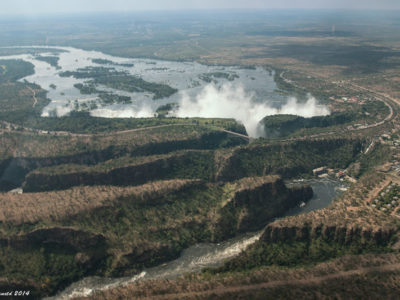
Incredible Things to Do in Victoria Falls, Zambia
- Birdwatching Safaris
- Budget Safaris
- Family-Friendly Safaris
- Luxury Safaris
- Photographic Safaris
- Wildlife Safaris
- Canoeing Safaris
- Big Five Animals in Zambia
- Unique Species and Endangered Wildlife
- Wildlife Conservation Efforts in Zambia
- Best Wildlife Viewing Seasons
- South Luangwa National Park
- Kafue National Park
- Lower Zambezi National Park
- North Luangwa National Park
- Liuwa Plain National Park
- River Rafting on the Zambezi
- Hot Air Balloon Safaris
- Bungee Jumping at Victoria Falls
- Helicopter Tours over the Falls
- Traditional Dance and Music
- Zambian Festivals and Celebrations
- Local Arts and Crafts
- Tribal Traditions and Customs
- Visa and Entry Requirements
- Best Time to Visit
- Packing Guide for Safari Trips
- Health and Safety Tips
- Safari Lodges
- Tented Camps
- Eco-Friendly Resorts
- Adventure Zambian Safari Packages for Thrill-Seekers
- Best Budget-Friendly Zambian Safari Packages
- Family-Friendly Zambian Safari Packages with Kids
- Luxury Zambian Safari Packages for a Premium Experience
- Urban Adventures
Select Page
The Ultimate Zambia Travel Guide: Tips and Recommendations
Posted by PAUL LUBASI | Jul 6, 2023 | Travel Information
Table of Contents
The enchanting tapestry of zambia: a comprehensive guide to unveiling its splendors, introduction.
Zambia, a landlocked country nestled in the heart of Southern Africa, is a treasure trove of natural wonders and cultural diversity. From its magnificent waterfalls to its sprawling national parks teeming with wildlife, Zambia offers a truly enchanting travel experience.
This article serves as the ultimate guide for anyone planning to explore this extraordinary destination. Whether you seek adventure, tranquility, or cultural immersion, Zambia has it all.
A Land of Geographical and Cultural Marvels
Zambia boasts an array of geographical features that set it apart from other destinations. One standout wonder is Victoria Falls, known locally as “Mosi-oa-Tunya” or “The Smoke that Thunders.” This awe-inspiring waterfall spans over 1.7 kilometers and drops an astonishing 108 meters into the Zambezi Gorge.
The sheer force and beauty of Victoria Falls make it one of the Seven Natural Wonders of the World. Beyond Victoria Falls lies the diverse landscapes that makeup Zambia’s national parks.
From the vast floodplains of South Luangwa National Park to the pristine wilderness along the Zambezi River in Lower Zambezi National Park, each park offers a unique ecosystem with abundant wildlife sightings and breathtaking scenery. While Zambia’s geographical features captivate visitors, its rich cultural heritage adds yet another layer to its allure.
With over 70 ethnic groups, each with its distinct languages and traditions, Zambian culture is remarkably diverse. Traditional ceremonies such as the Kuomboka in Western Province or Ncwala in Eastern Province showcase centuries-old rituals passed down through generations.
The Importance of Travel Planning
When embarking on a journey to Zambia, meticulous travel planning becomes essential to make the most out of your experience. Consider factors such as the best time to visit, visa requirements, and recommended vaccinations.
Research the regions and attractions that align with your interests to create an itinerary that ensures a well-rounded exploration of this extraordinary country. Planning also helps in optimizing your budget.
Knowing the costs of accommodation, transportation, and activities allows you to allocate your resources accordingly. Additionally, booking accommodations and tours in advance ensures availability during peak seasons when Zambia attracts a considerable number of travelers.
The Purpose of this Guide
The purpose of this guide is to provide you with invaluable insights and recommendations for navigating Zambia’s wonders with confidence. Whether you aspire to witness the thundering Victoria Falls up close or encounter wildlife on an exhilarating safari experience, we have curated detailed information on top destinations such as South Luangwa National Park and Lower Zambezi National Park.
Moreover, we understand the significance of cultural immersion in truly understanding a destination. Thus, we offer advice on respecting local traditions and engaging with Zambian communities authentically for a more meaningful travel experience.
Let this guide be your compass as you embark on an unforgettable journey through Zambia’s captivating landscapes and vibrant cultures. Prepare to be enthralled by its natural splendors and warm hospitality as you delve into one of Africa’s hidden gems.
Getting to Know Zambia
General information about zambia’s location, size, and population.
Nestled in the heart of southern Africa, the landlocked country of Zambia is bordered by eight neighboring countries. It spans approximately 752,618 square kilometers, making it larger than many European nations.
With a population of over 17 million people, Zambia boasts a rich diversity of ethnic groups including the Bemba, Tonga, Lozi, and Ngoni among others. Its capital city is Lusaka – a vibrant hub that exhibits the blend of traditional and modern influences found throughout the country.
Overview of the Country’s History, Politics, and Languages Spoken
Zambia has a fascinating history that dates back thousands of years. The region was inhabited by different ethnic groups long before European explorers arrived in the late 19th century.
Eventually colonized by the British Empire in 1924 as Northern Rhodesia until its independence on October 24th, 1964 when it became known as Zambia. Since its independence, Zambia has enjoyed relative political stability compared to some other African nations.
The country operates under a multi-party democratic system with periodic elections determining its leadership. The official language is English due to its colonial past; however, there are over 70 local languages spoken across Zambia.
Some widely spoken languages include Bemba (in northern regions), Nyanja (in eastern regions), Tonga (in southern regions), Lozi (in western regions), and Lunda (in northwestern regions). The linguistic diversity reflects both cultural heritage and tribal divisions within this beautiful nation.
Climate and Best Time to Visit Different Regions of Zambia
One must consider Zambia’s climate when planning their visit as it varies across different regions throughout the year. Generally speaking, there are three distinct seasons in Zambia: the hot and rainy season, the cool and dry season, and the warm and dry season.
The hot and rainy season extends from November to April when temperatures can reach up to 30 degrees Celsius (86 degrees Fahrenheit) or even higher. This period is characterized by lush vegetation, blooming flowers, and vibrant wildlife.
The most notable feature of this season is the mighty Zambezi River in full flow, showcasing its incredible power at Victoria Falls. The cool and dry season occurs between May and August.
Temperatures range from 15 to 25 degrees Celsius (59 to 77 degrees Fahrenheit), offering pleasant weather for outdoor activities such as safaris. While wildlife sightings may not be as frequent during this time, it is an ideal period for exploring Zambia’s national parks without extreme heat or heavy rainfall.
The warm and dry season falls between September and October when temperatures rise once again. It is a popular time for travelers seeking prime game-viewing opportunities as animals gather around scarce water sources.
The landscape becomes more arid during this period but still offers incredible natural beauty. Each region within Zambia has its microclimate due to varying elevations, so it’s essential to research specific destinations before planning your trip to make the most out of your visit.
Top Destinations in Zambia
Victoria falls: the majestic wonder of the world.
Nestled between Zambia and Zimbabwe, Victoria Falls is a natural spectacle that will leave you awestruck. Known as “The Smoke That Thunders,” it is one of the world’s largest waterfalls, formed by the mighty Zambezi River. As you approach, a deafening roar fills the air while mist rises high above the falls, creating a mesmerizing ambiance.
This magnificent wonder holds immense significance for both locals and visitors alike, symbolizing the power and beauty of nature. For those seeking adrenaline-fueled adventures, Victoria Falls offers an array of thrilling activities.
Daredevils can experience heart-pounding bungee jumps from the iconic Victoria Falls Bridge or embark on exhilarating white-water rafting expeditions down the turbulent rapids of the Zambezi River. For a more serene experience, take to the skies on a scenic flight to witness these majestic falls from above, where their true grandeur unfolds before your eyes.
South Luangwa National Park: A Wildlife Enthusiast’s Paradise
Immerse yourself in an untouched wilderness at South Luangwa National Park, renowned as one of Africa’s greatest wildlife sanctuaries. This biodiversity hotspot teems with an incredible variety of flora and fauna that captivates nature enthusiasts from around the globe.
As you traverse its vast landscapes, your senses will be overwhelmed by sights and sounds unique to this region. Embark on game drives through South Luangwa’s diverse ecosystems; spot herds of elephants grazing peacefully in meadows while zebras and giraffes gracefully roam across open plains.
For a more intimate experience with nature, partake in walking safaris led by knowledgeable guides who will unlock secrets hidden amidst towering trees and winding riverbanks. As dusk falls, embrace the thrill of night drives, where you may encounter elusive nocturnal creatures such as leopards and hyenas in their natural habitat.
Lower Zambezi National Park: Exploring Nature at its Finest
Nestled along the banks of the magnificent Zambezi River lies Lower Zambezi National Park, a pristine wilderness that promises an unforgettable journey into nature’s splendor. This park boasts picturesque landscapes; from lush floodplains to dense woodlands, it is a haven for wildlife enthusiasts and photographers seeking breathtaking vistas. Discover the wonders of Lower Zambezi through adventurous canoe trips down the river’s gentle currents or enjoy fishing excursions where you can try your luck at catching one of Africa’s prized game fish.
Guided game drives offer unparalleled opportunities to observe elephants frolicking in watering holes and lions majestically prowling through grassy plains. As you soak in these awe-inspiring scenes, gain a deeper appreciation for the delicate balance between humans and wildlife within this untamed paradise.
Kafue National Park: Africa’s Hidden Gem for Wilderness Lovers
Unleash your adventurous spirit by venturing into Kafue National Park, Africa’s hidden gem that epitomizes untouched wilderness. Encompassing vast stretches of diverse ecosystems, including riverine forests and expansive grasslands, this park is home to an astonishing array of wildlife species. Embark on game drives across Kafue’s vast expanse, encountering majestic herds of buffalo and antelope grazing peacefully alongside the pride of lions.
For a truly magical experience, consider a hot air balloon safari that grants you panoramic views of the park’s breathtaking landscapes, or embark on a boat cruise along Kafue River’s meandering channels where hippos laze in tranquil pools. Kafue National Park offers an escape into raw nature that will leave you with lifelong memories.
Cultural Experiences in Zambia
Local traditions & customs.
To truly immerse yourself in the Zambian experience, it is essential to appreciate the rich cultural heritage of this vibrant nation. Traditional dances and ceremonies hold a special place in Zambian culture, reflecting the customs and beliefs of various ethnic groups.
Witness rhythmic performances that reverberate with energy and symbolism, showcasing tales of bravery, love, and community unity. Engaging with locals respectfully by learning a few key phrases of the local languages and embracing their traditions will foster meaningful connections and provide a deeper understanding of Zambia’s cultural tapestry.
Livingstone Town – The Historical Heartland
Located near Victoria Falls, Livingstone Town is a historical treasure trove that offers captivating insights into Zambia’s colonial past. Named after renowned Scottish explorer David Livingstone, who first laid eyes on Victoria Falls in 1855, this charming town boasts an array of architectural gems that harken back to its colonial era. Explore museums highlighting Livingstone’s expeditions or take a stroll along streets lined with elegant buildings reminiscent of bygone times.
Engage in conversations with locals who can share anecdotes about the town’s history and impart wisdom passed down through generations. Livingstone Town is not only a gateway to Victoria Falls but also an opportunity to delve into Zambia’s fascinating past.
As you embark on your journey through Zambia’s breathtaking landscapes and immerse yourself in its vibrant culture, you will be forever transformed by the sheer beauty and authenticity that this remarkable country has to offer. Whether marveling at the awe-inspiring Victoria Falls or venturing through national parks teeming with diverse wildlife, Zambia promises captivating experiences for every traveler. Moreover, interaction with local communities will enrich your understanding of their traditions while fostering connections that transcend borders.
As you bid farewell to this enchanting land, carry with you the memories of warm smiles, exhilarating adventures, and a profound appreciation for the wonders of Zambia. Embrace the spirit of exploration, and may your travels lead you to discover the beauty that lies within this extraordinary country.
If you’re interested in learning more about the country, check out our article 10 Fascinating Facts About Zambia .
About The Author
PAUL LUBASI
"Paul Lubasi, a passionate advocate for the great outdoors and the founder of the travel blog, [Zambian Safari Trips](https://www.zambiansafaritrips.com/), uses his platform to guide others through the stunning landscapes of Zambia. Born and raised in Zambia, Paul's lifelong passion for nature and travel shines through in his captivating blog posts. Not just a gifted author, Paul is also a seasoned SEO expert who helps travel businesses increase their online visibility and provides a comprehensive web hosting management service. Devoted to sharing and preserving our planet's beauty, Paul Lubasi is a guiding light for all travel and nature enthusiasts."
Related Posts
Immunize, explore, safeguard: crucial vaccinations for zambia.
July 7, 2023

10 Fascinating Facts About Zambia: A Traveler’s Guide 2023
July 6, 2023

Exploring Zambia: Zambia Travel Guide – Unveiling the Splendors of an Enchanting Land
July 3, 2023
Zambia Unveiled: Memorable Nature’s Magnificence & Exotic Wildlife 2023
July 29, 2023
Recent Posts
- Empowering Zambian Cultural Heritage Unveiled in 2023: Celebrating a Rich Legacy
- Discovering the Crucial Contribution of Safari Guides: An Exclusive Look into Zambia’s Wildlife Safari Experience -2023
- Mosi-o-tunya National Park: #1 A Hidden Gem for Wildlife Safaris
- Discover the Untamed Beauty of Zambia: Top 5 Safari Lodges to Stay in for an Unforgettable Experience
- Exploring Lusaka National Park: A Comprehensive Visitor’s Guide [2023]
Recent Comments
Pin it on pinterest.

Zambia Travel Guide: the real remote African bush experience!
Be ready for awe-inspiring natural wonders, and zambia's enchanting wilderness and wildlife.
PROTECTED AREAS & RESERVES EXPLORED
ZAMBIA NATIONAL PARKS VISITED
Zambia Travel Guide
Zambia is one of the safest countries in the world to visit and has some of the best safari experiences on our planet, renowned for its award-winning safari guides. 30% of the country is given to its wildlife (national parks and reserves). No wonder Zambia is sometimes called Africa's best-kept secret , as it's still quite unexplored with a lack of crowds. Apart from the abundant wildlife and extraordinary birdlife, Zambia is also one of the most water-rich countries in Africa. The country has 17 waterfalls, 3 major rivers like the wild Zambezi River, wetlands, and lakes.
With the purity of Zambia's natural wonders and the welcoming and friendly people, Zambia is an exceptional country in Southern Africa to explore its remote and mesmerizing wilderness, full of wildlife - including the Big Five . Zambia is also the birthplace of walking safaris , which allows you to get close to the wildlife on foot, hearing the sounds of the bush while taking time to observe the diverse and unspoiled nature where animals wander through unfenced areas and camps.
There are 20 national parks and over 30 game management areas in the country of which South Luangwa, Kafue , and Lower Zambezi are some of the most popular and finest national parks in Africa! The best things to do in Zambia include a guided walking safari and night drives in South Luangwa, bird watching in Victoria Falls' Mosi-Oa-Tunya National Park, game drives in Kafue NP, and a canoe-safari on the Lower Zambezi paddling along hippos and crocodiles. Unleash your adventurous side at the Victoria Falls by swimming on the edge of the Falls in Devil's Pool!
Table of contents Zambia Travel Guide:
- Best things to do in Zambia
- Best time to visit Zambia
- Things to know before you travel to Zambia
- Featured Zambia Safari Tips
- Zambia Safari Knowledge
- Safari Tours Zambia
- Other Africa Travel Guides
- Places to stay in Zambia
Interesting Facts Zambia
Flag of Zambia
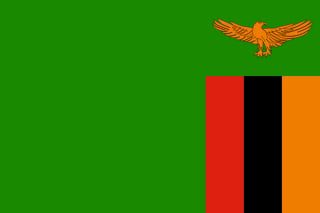
Zambia's National Animal
African Fish Eagle
Zambia National Dish
Nshima (porridge) served with 'relish' (stew and vegetables)
Currency in Zambia
Zambian Kwacha (ZMK or ZMW)
Zambia Time Zone Central Africa Time Zone or EAT (GMT+2 hours)
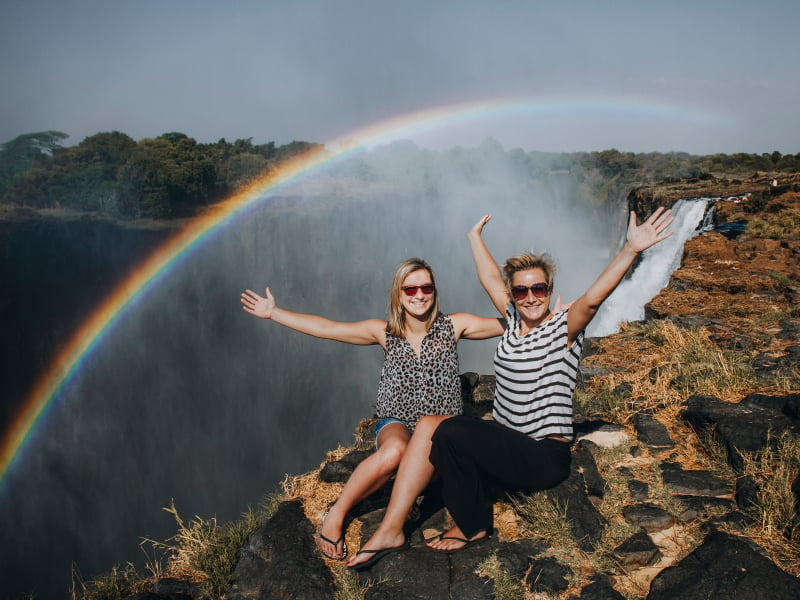
Rainbows at Victoria Falls
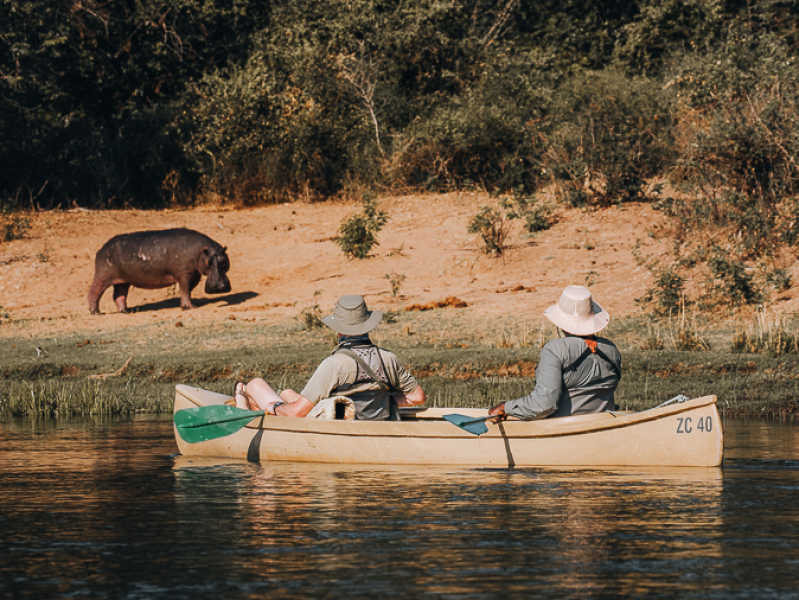
Elephant in Chiawa Camp
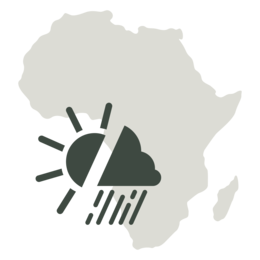
Best time to visit Zambia
The best time to travel to Zambia depends on what you want to explore and which birds or wildlife you would like to spot. Zambia’s consistently warm tropical climate makes it an ideal location to visit year-round. If you want to avoid rain, any period from March to November is a good time to travel to Zambia. The best time to visit Victoria Falls is between February to May, after the summer rains to experience a dramatic full curtain of falling water. One of the best months to travel to Zimbabwe is in May ; a shoulder month at the end of the green rainy season with mild temperatures, lush greenery, lesser tourists, good rates, and great conditions for wildlife-viewing and experience Vic Falls in full flood.
The country knows 3 seasons:
- The cool, dry winter season from June to September/October . This is generally the best time to go on a safari with almost no rainfall, plenty of sunshine, and clear skies. However, this is also the high season in Zambia with prices going up. The last months of this seasons can get pretty hot, but game-viewing is incredible as animals congregate around water holes and rivers;
- The hot dry summer season with high temperatures of 30+ degrees in October and November ;
- The green rainy season with high temperatures from December to March/April . January and February mean lots of rain which will treat you with lush green parks, phenomenal light, and dramatic skies; great conditions for travel photography and bird-watching. Note that many remote camps close during this season because they become inaccessible due to the rains. However, there are still enough lodges open at reasonable prices. You can drive the Mfuwe section of South Luangwa NP year-round because of the all-weather roads.
Things to know before you travel to Zambia
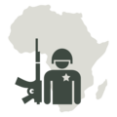
Safety in Zambia
Zambia is one of the safer countries in Africa and I felt safe the entire time when traveling in Zambia. Crime levels are similar to European countries. The biggest issues are bag snatching and theft from cars in Lusaka and Livingstone. Just be aware of your surroundings. As long as you use your common sense, you should have no problems during your visit.
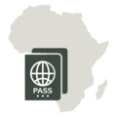
Visa requirements for Zambia
Almost all foreign nationals require a visa to travel to Zambia. You can obtain a visa through the Zambian Embassy or Consulate, but you can also apply for an online (electronic) visa or a visa upon arrival. Just be sure your passport is valid for 6 months. Visit the official Zambia Immigration Department to apply for a visa online and to check what visa you need. Processing time takes about 5 working days. With the visa, you can stay in Zambia for 90 days from the date of entry. Visa prices vary from $50 (single entry and Kaza Visa) to $150 (multi-entry visa).
Top Tip: Zambia and Zimbabwe offer a universal visa, the KAZA Visa valid for both countries for visits up to 30 days (including trips to Chobe NP in Botswana) and you can cross borders between ZAM and ZIM (for example to visit Vic Falls at both sides) as much as you like for the same price as a single entry visa. Not all countries are eligible, but most countries of America, Europe, and North Asia can apply for this visa.
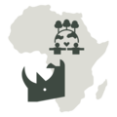
Responsible Travel in Zambia
When it comes to responsible tourism in Zambia, the conservation efforts are not as impressive as other African countries. Elephant poaching is an issue, especially in the remote southwest, part of the KAZA transfrontier park, which roughly holds half of all elephants in Africa. Other parts, like the Sioma Ngwezi National Park , lack anti-poaching initiatives because it's still undeveloped with very few camps and tourists that visit. You can make a difference by visiting those reserves because your fees will support good practice, for example patrolling by rangers to prevent elephants from getting poached.
Do not take part in trophy hunting - which is sadly still allowed in Zambia - and never purchase items made from endangered species. Consider visiting the Chimfunshi Chimpanzee Sanctuary , one of the oldest and largest chimp refuges in the world that runs educational and social projects.
Choose to stay at responsible camps and lodges that put money back into the local community and support conservation. Zambia is a poor country and local communities can benefit from tourism . Ask the lodge you are staying how they are involved in local life and if there are projects, villages, or rural schools they support or invest in education. This would be a great opportunity to sponsor a project. However, don't visit a school when pupils are still present as it disrupts their classes.

Vaccinations & anti-Malaria tablets for Zambia
Required vaccinations depend on what you will be doing in Zambia, and how long you will stay. However, most travelers to Zambia require Hepatitis A and Typhoid . There are polio outbreaks in several countries in Africa. CDC recommends that all travelers to these countries be vaccinated fully against polio. Depending on the travel itinerary some travelers might need Hepatitis B (if you're staying 3+ months), Rabies , and Cholera declaration ('not indicated'). Yellow Fever is not prevalent anymore , but if you have been or are going to be in transit in a Yellow Fever area for more than 12 hours, a Yellow Fever vaccination certificate is (generally) recommended, but not mandatory. Malaria is a risk in Zambia , especially at dusk. Insect repellant and antimalarials are highly recommended. Consult a travel clinic for the best advice.
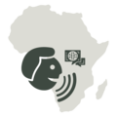
Spoken languages in Zambia
The official language in Zambia is English , but there are over 70 Bantu languages widely spoken throughout the country of which Nyanja and Bemba are the most commonly spoken African languages. Locals appreciate it when travelers make an effort to learn a few words in their local language.
Featured Zambia Safari Tips
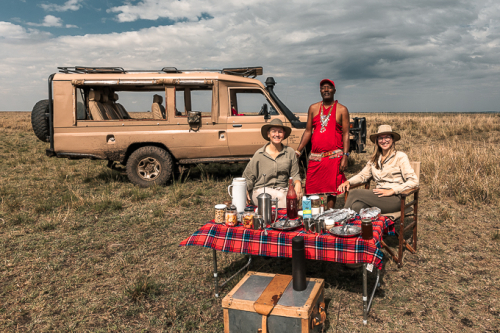
Safari Game Drive Africa
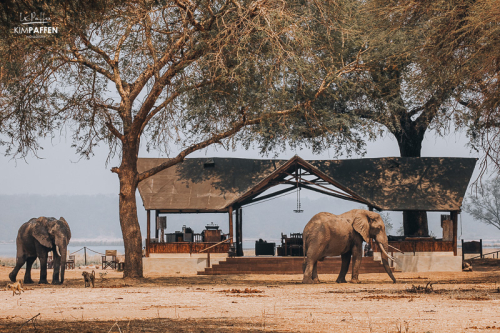
Top Safari Lodges Zambia
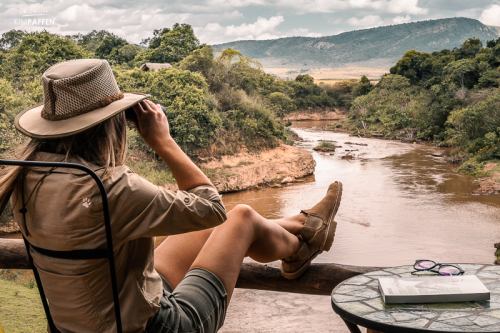
What to pack for Safari?
Your ultimate safari packing guide, including what to wear on safari, what to bring on a game drive, must-have safari essentials, and detailed safari packing list.
Things to do in Zambia to cross off your bucket list
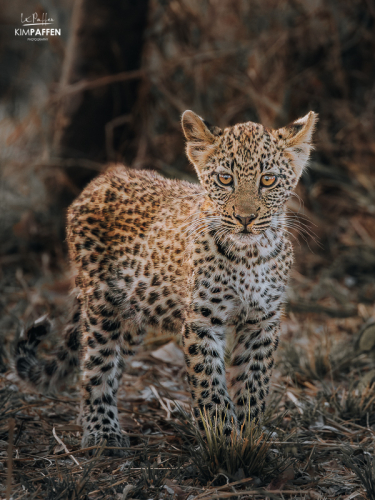
Extraordinary South Luangwa
South Luangwa National Park is the flagship reserve of Zambia and home to a variety of abundant African animals and predators, including the Big Five (except for the white rhino).
It's one of the most impressive remote parks in all of Africa and known for its high density of leopards , large herds of elephants, and buffaloes drinking at the river. Lion, hippos, and crocodiles are very common in South Luangwa, and you can also spot the endemic Thornicroft’s giraffe and endemic Crawshay's zebra . Birding is also possible as the park has around 400 bird species.
The Mfuwe Gate is the main entrance to the park, where you have to cross the Luangwa River over a bridge. The camps and lodges organize several things to do in South Luangwa , such as game drives, night drives, and (multiple-day) walking safaris including camping.
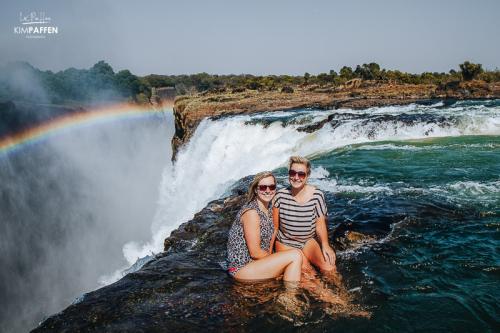
Admire Victoria Falls
Nestled among iconic landmarks like the Pyramids and the Serengeti, Victoria Falls (Mosi-oa-Tunya – the 'smoke that thunders') stands as one of Africa's original marvels.
Victoria Falls ranks among Earth's extraordinary spectacles. For thrill-seekers, the breathtaking experience of swimming on the edge of the Falls in the renowned Devil's Pool awaits! The sheer might and intensity of the falls are guaranteed to leave a lasting impression.
Other activities at Victoria Falls are rafting or bungee jumping into the Zambezi; a bucket-list-worthy experience.
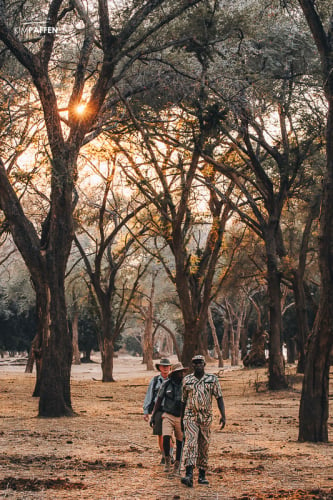
Lower Zambezi National Park
The Lower Zambezi National Park, nestled along the Zambezi River's northern bank in Zambia, is a great destination for wildlife enthusiasts. Paired with Zimbabwe's Mana Pools National Park across the river, these parks form a wildlife-rich region, collectively known as the Big 5 destination of the Lower Zambezi National Park. Wildlife thrives in this lush environment, with notable species including elephant, puku, impala, zebra, buffalo, leopard, lion, cheetah, wild dog, and over 400 bird species.
Unlike traditional game drives, the Lower Zambezi offers the chance for guests to kick off the day with a thrilling canoe safari or walking safari .
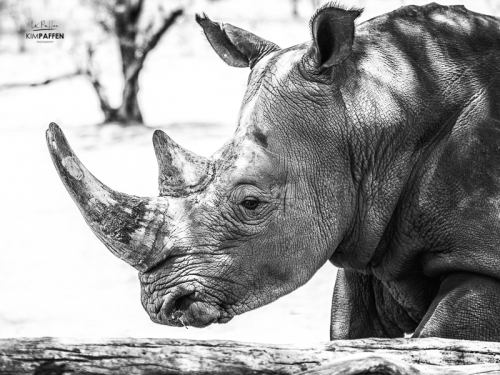
Mosi-oa-Tunya National Park
Mosi-oa-Tunya National Park , near Victoria Falls, doesn't have any predators but does have a well-managed population of elephants, giraffes, rhinos, hippos, zebras, and antelope. It's a UNESCO World Heritage site in Livingstone and known as Victoria Falls on the Zambezi River.
Many only know Zambia's smallest National Park from the mighty falls, but the park consists of two main sections: a wildlife park and the mighty Victoria Falls section which includes Batoka Gorge, and the Zambezi River above the falls.
Mosi-oa-Tunya is the only park in Zambia with white rhinos which are protected 24/7. One of the best and unique things to do is a guided 2-3 hours White Rhino Walking Safari as the fees help with the protection of these endangered animals. During the walk, there is a very good chance of encountering the growing population of white rhinos, as well as giraffes, zebra, kudu, and more wildlife. During the walk, you will also learn more about the flora and fauna of the park.
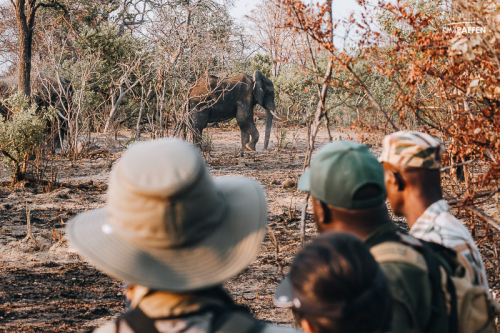
Kafue National Park
Kafue National Park, the largest of Zambia's conservation areas , promises a unique safari adventure far from the crowds. Kafue remains off the beaten track, offering a truly wild experience with only a few luxury tented camps. The highlight of a Kafue safari is the expansive Busanga Plains, where red lechwe, puku antelope, buffalo, and wildebeest graze, attracting predators like cheetahs, wild dogs, spotted hyenas, and lions. The magic of Busanga extends beyond game viewing, with its breathtaking scenery featuring spectacular pink sunrises and antelope silhouettes in the morning mist.
Activities in Kafue include game drives, guided walking safaris , and night drives. Lodges also organize motor boat safaris and canoe trips along Kafue's rivers, providing opportunities to observe hippos, crocodiles, and a myriad of bird species – an impressive 490 have been recorded in the park.
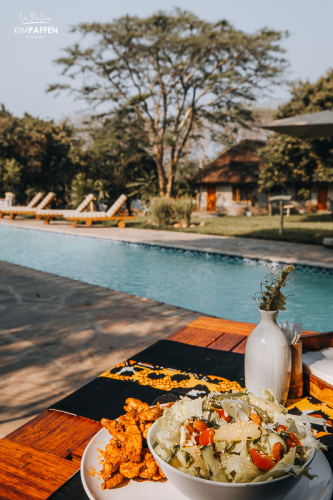
Visit Lusaka
Lusaka, the largest and capital city of Zambia , stands out as one of the rapidly developing cities in southern Africa. Despite its status as Zambia's largest city and capital, Lusaka is often overlooked by travelers to Africa. For a genuine experience of Zambian daily life, visit the Sunday Crafts Market or the Pakati Sunday Market. Explore Zambia's rich history at the National Museum, and marvel at the architectural beauty of the Cathedral of the Holy Cross . Beyond the cultural and historical attractions, Lusaka offers a vibrant nightlife scene with numerous clubs, upmarket restaurants, bars, and shebeens. If you're looking to party in Zambia, Lusaka is the place to be.
Zambia Safari Tours
Featured zambia safari knowledge.
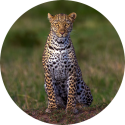
The Big 5 Africa
What are the Big 5 safari animals of Africa and where to find them?
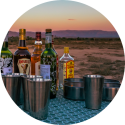
African sundowner
What is a typical sundowner on safari in Africa?
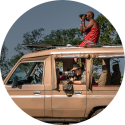
Uganda Travel Guide
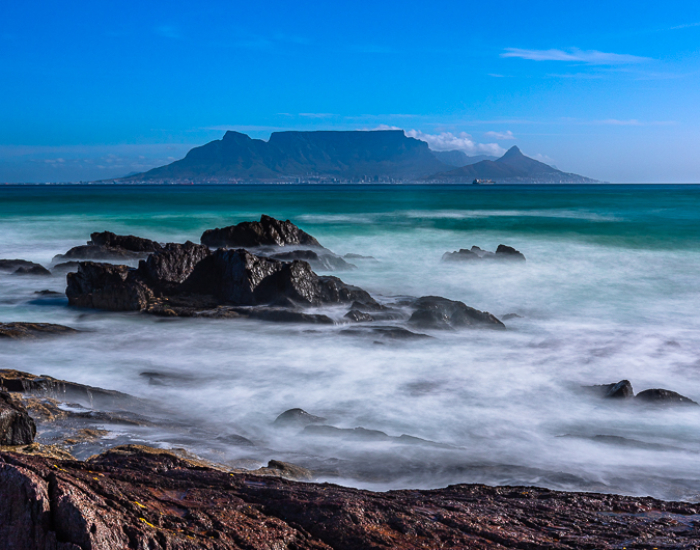
South Africa Travel Guide
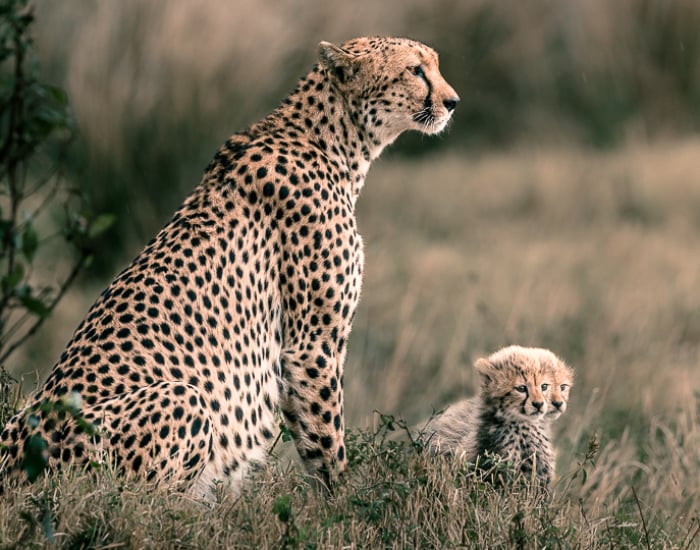
Kenya Travel Guide
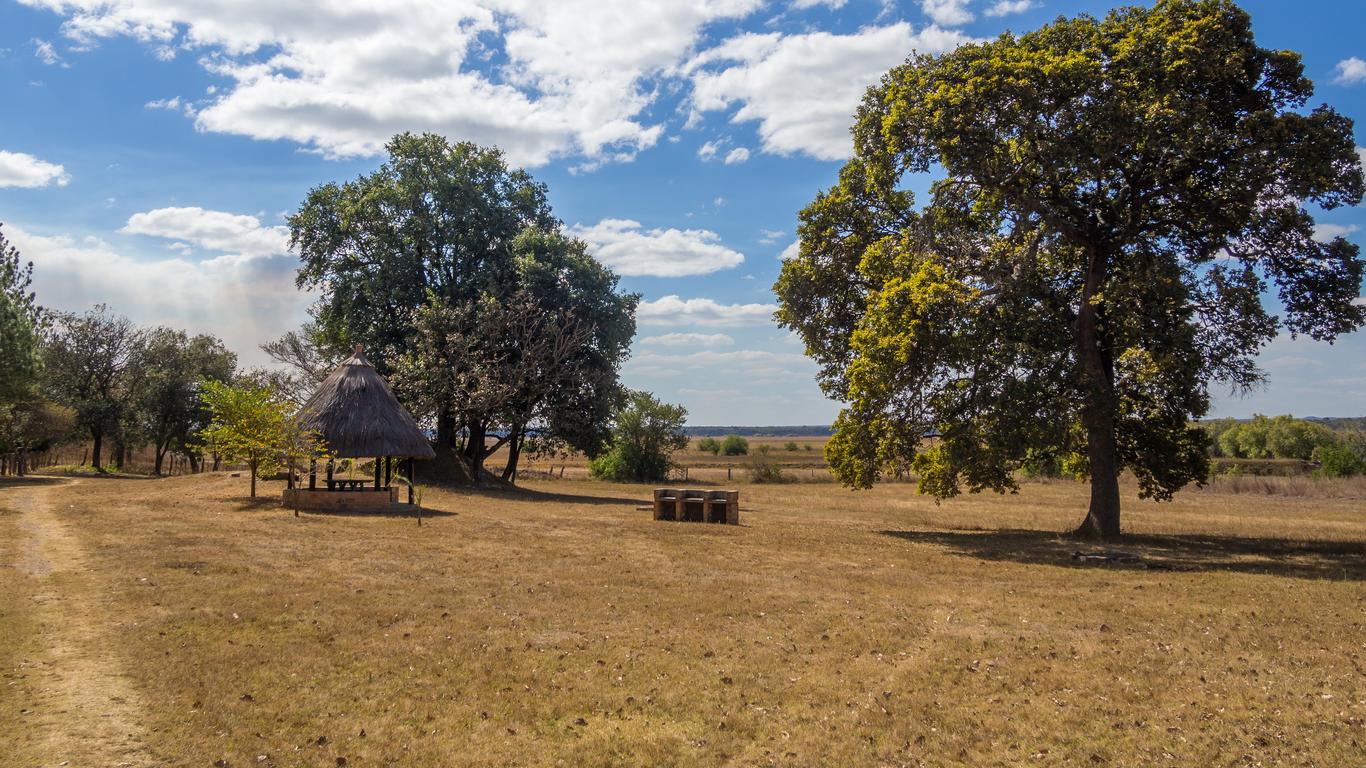
Zambia travel guide
Zambia tourism | zambia guide, you're going to love zambia.
Remote and off the beaten path, Zambia is one of the most underrated travel destinations in Africa.
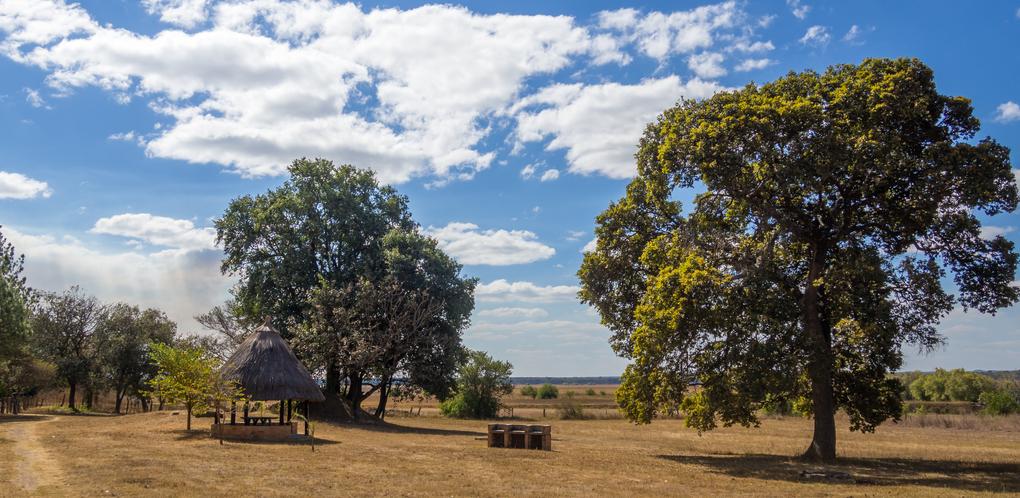
Shaped by three major rivers, Zambia is heaven for those looking to experiencing wildlife up close.
What to do in Zambia
1. visit the national parks.
With over 20 national parks, Zambia is the ultimate destination for nature enthusiasts. North Luangwa Park is known for walking safaris, Kafue National Park is the largest and the oldest, and at South Luangwa Park, spotting wildlife is guaranteed.
2. Go Diving
Lake Tanganyika, the second largest on the continent, is a popular spot for diving and snorkeling.
3. Admire Victoria Falls
Victoria Falls is one of the most impressive natural landscapes in Zambia and also a UNESCO World Heritage Site.
4. Camp Near Kalambo Falls
Perhaps not as famous as Victoria Falls among tourists, Kalambo Falls is twice the size and even more impressive. Enjoy the views from a nearby campsite overlooking the Great Rift Valley.
5. Explore the Capital Lusaka
Although not bursting with must-see tourist landmarks, to many Lusaka is the quintessential African capital city: authentic and cosmopolitan.
When to visit Zambia
From May to October is the best time to visit Zambia for better chances of spotting wildlife. Keep in mind it's also high tourist season, which may affect prices and availability.
If looking to travel for top local cultural events, N'cwala (the harvest festival) happens in February, Kuomboka in April, and Kusefya Pangwena in August.
How to Get to Zambia
Entry requirements.
Entry requirements aren't always straightforward in Zambia, so check the latest rules with the closest embassy in your country.
Usually nationals from most western countries get a visa on arrival at the airport.
Zambia is served by two main international airports: Lusaka International Airport and Livingstone Airport.
Flights landing in Lusaka are mainly from European destinations, which means that those flying to Zambia from elsewhere must account for at least one layover. Livingstone receives regular flights from destinations that include Johannesburg, London, and Dubai.
There are regular train connections between Dar es Salaam in Tanzania and Kapiri Mposhi in Zambia. These trains are operated by TAZARA (Tanzania Zambia Railways) and the trip takes nearly 40h.
Getting to Zambia by car means having to pay a carbon tax and insurance at the border before crossing. Check the latest updates before choosing this option.
There are several possible overland crossings into Zambia, but the most popular are the ones in Zimbabwe.
There are a few regular international buses traveling to Zambia from Tanzania, Zimbabwe, and Malawi. Customs and immigration processing can be slow, considering a lot of people opt to travel by bus from neighboring countries.
It's possible to travel to Zambia by boat from Tanzania over Lake Tanganyika. There are regular ferry services across the lake.
Popular airports in Zambia
Popular airlines serving zambia, where to stay in zambia.
Hotels and budget-friendly hostels are easy to find in most cities in towns. The most popular type of accommodation is the safari lodges at national parks that allow closer contact with nature. They're usually either very affordable or luxurious and high-end.
Where to stay in popular areas of Zambia
Most booked hotels in zambia, how to get around zambia, public transportation.
Taxis are the only public transportation available within cities. Fares must be negotiated with the driver before the ride.
The regional trains are often slow and unreliable, so most passengers who need to go to the north of Zambia opt to take the international train to Tanzania and get off at the last stop before crossing the border, which is Nakonde.
Most cities and towns are connected by a reasonable network of public buses. Express buses connect Lusaka to Livingstone, the Copperbelt region, and Chipata.
To rent a car for up to three months, visitors need to have a driver's license for five years (issued by the country of origin), and be over 25 years of age.
Drive on the left and keep an eye out for chance encounters with wildlife crossing the roads.
There are regular domestic flights operated by local carrier Proflight from Lusaka to a series of tourist destinations in Zambia, including Victoria Falls (Livingstone) and South Luangwa National Park (Mfuwe).
Best car rental deals in Zambia
4 Adults, 2 Bags
The Cost of Living in Zambia
The Zambian kwacha is the local currency, but payments in US Dollars are also accepted. Major hotels and tourist companies accept payments with credit cards. ATMs are easy to find in most towns and larger cities. Daily groceries can cost about 75-85 ZMW (5.60-6.40 USD).

Chat to an expert
Get advice and recommendations for your trip.
Our guests rate us 5 out of 5 stars
Read what they say
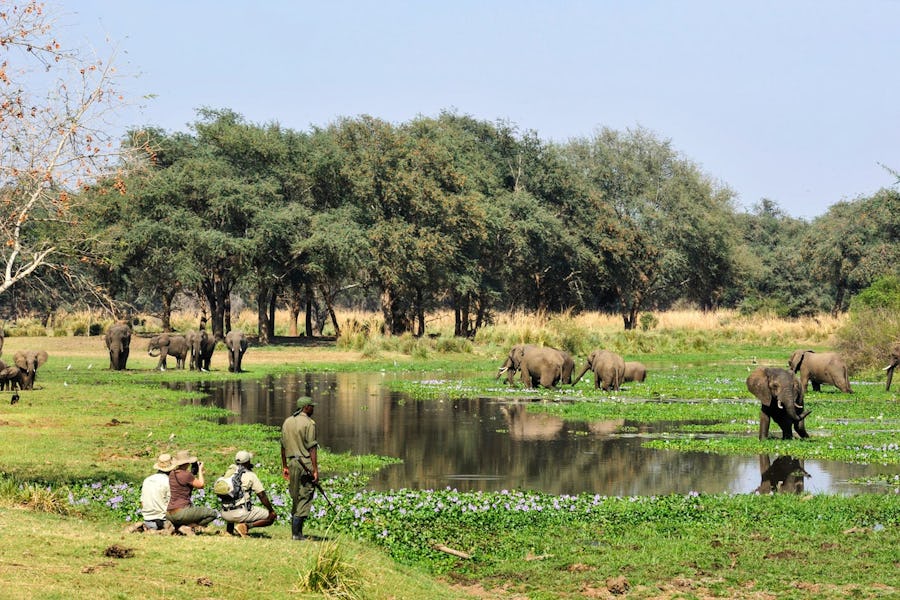
Zambia Travel Tips
We don’t like to have star pupils, but Zambia is up there with our favourite destinations on the continent. Subject to a whole host of (unfair) rumours, we’re here to dispel every single one of them and impart some of our pearls of wisdom for planning a Zambia safari whilst we’re at it. If you haven’t yet decided what time of the year or where to go in Zambia , have a peek at our mini-guides first, and then delve into our Zambia travel tips below. If one thing’s for certain, you’ll be fully equipped to ready, set, BOOK!
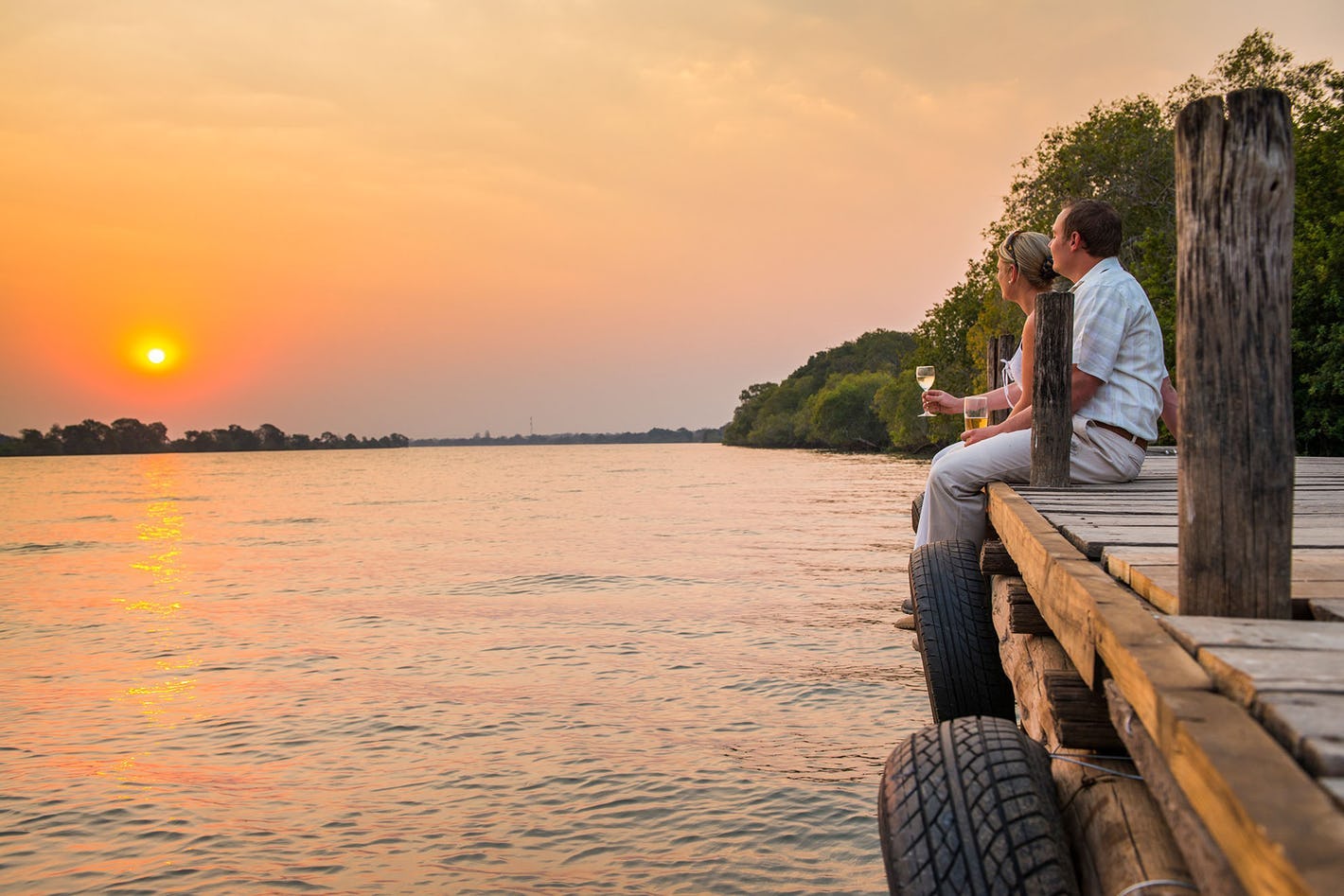
How to get there
The first of our Zambia travel tips is a big one: international flights. To start your adventure, you’ll need to fly to the capital Lusaka , the arrival and departure point of all long-haul flights. Emirates have one flight a day from Dubai, which connects nicely with flights to the major safari destinations on national airline Proflight Zambia. They’ll also allow you a larger luggage limit if you book on the same ticket (win) and they’ll help you if any flights are delayed (win win). Other options are to fly to Nairobi on Kenya Airways, or Johannesburg on BA or South African Airways, and connect to Lusaka.
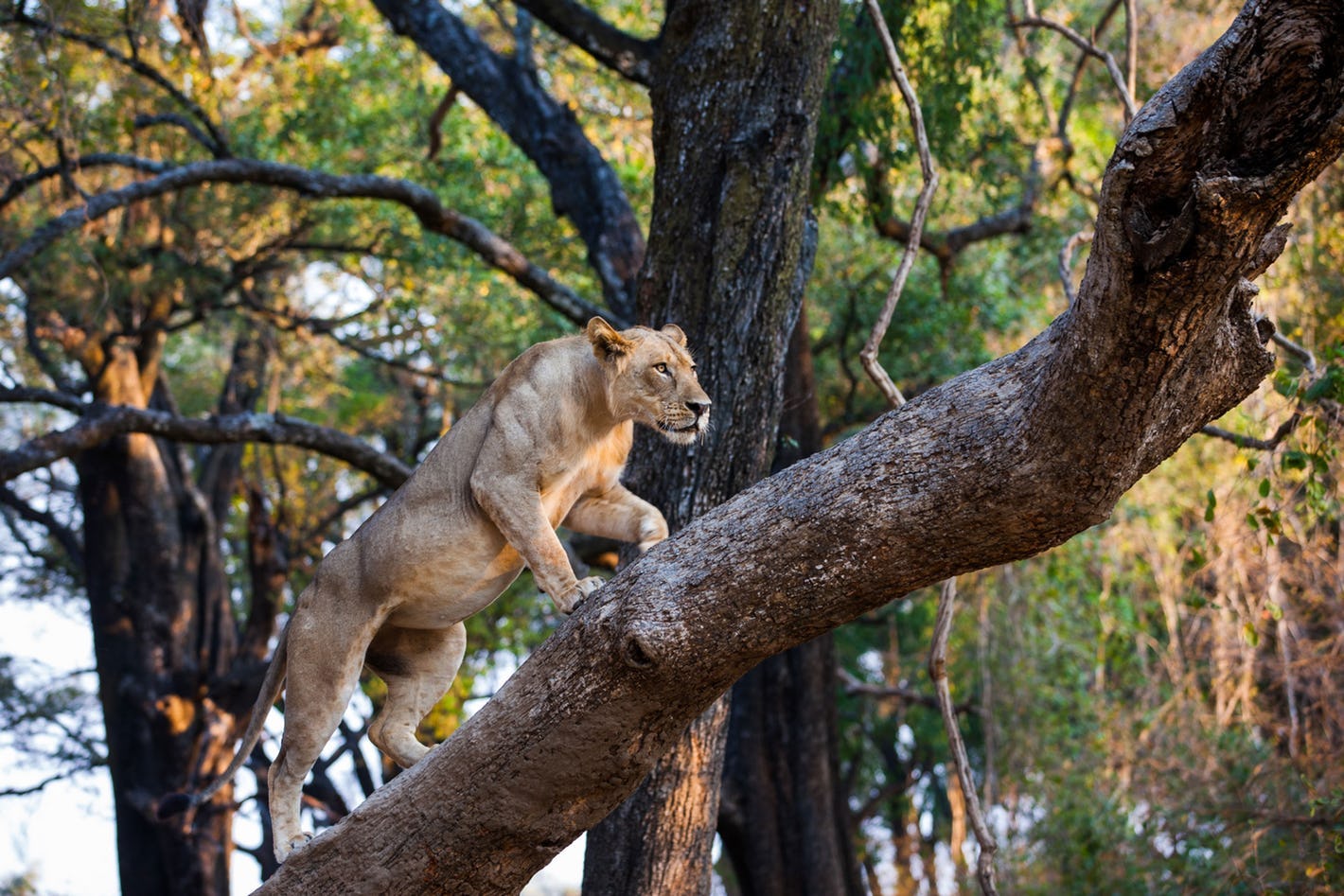
Internal flights
The good news is that national (and only) airline Proflight Zambia flies to every major safari park, so combining different destinations in Zambia really couldn’t be easier. The catch is that most flights arrive and depart from Lusaka so you’ll fly back to the capital and swap planes on almost every journey. That said, Proflight has introduced direct flights from the South Luangwa (Mfuwe airstrip) to the Lower Zambezi (Jeki), so change is in the air. If you do, however, have to connect in Lusaka, it’s a simple process and the wait time is short. Alternatively, if the timings just aren’t working out, have a look at chartering your own plane. No, we don’t think you’re a millionaire, but chartering a plane isn’t as expensive as you might think and can often save a lot of time and hassle – which is exactly what makes it one of our top Zambia travel tips.
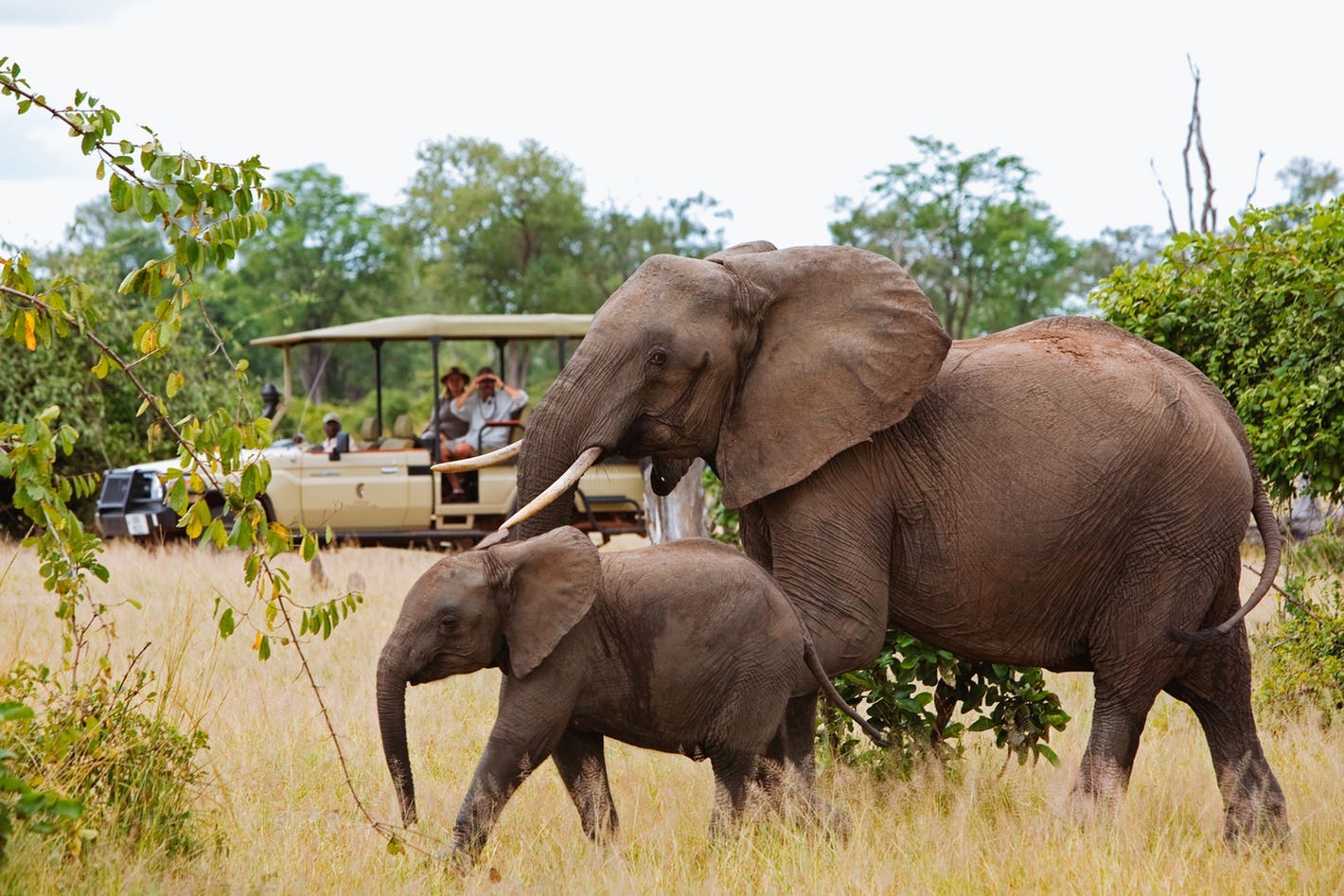
How long should I go for?
It’s one of our most commonly asked questions and only right that we should address it on our list of Zambia travel tips. Generally when it comes to safari, the longer you can travel for, the better! In Zambia, there’s an enormous variety of camps and lodges , safari styles and activities and to stay for only one night in each place simply wouldn’t be worth the effort. A classic, 10-day trip, like this one here , is our typical starting point for Zambia and includes some time at world-famous Victoria Falls , the Lower Zambezi and two different destinations in the South Luangwa . But, if six days is all you have, you can make that work too. Simply choose one or two locations that work well together and do what’s important to you, like this short but sweet trip to the South Luangwa.
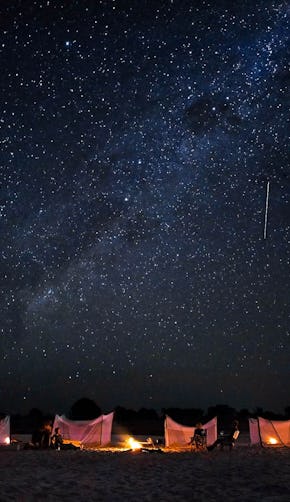
A note on seasons
The weather. Always important yet never guaranteed and the one thing that everyone seems to disagree on. Luckily, Zambia has quite a distinct ‘safari season’ (see our month-by-month guide for a more in-depth look at this), of June to October. The majority of the parks and reserves (bar Liuwa Plain , which is all but closed in August and September) are in their most iconic states and even the tiniest of bush camps are open. It’s the perfect weather for walking safaris and big game viewing and a lovely time to visit. Conversely, Victoria Falls is in full flow from January to June, and if you’re in the market for boating safaris , February and March in the South Luangwa will be your best bet. The moral of the story? There’s something fabulous to see in almost every month of the year – you just need to decide what suits you best.
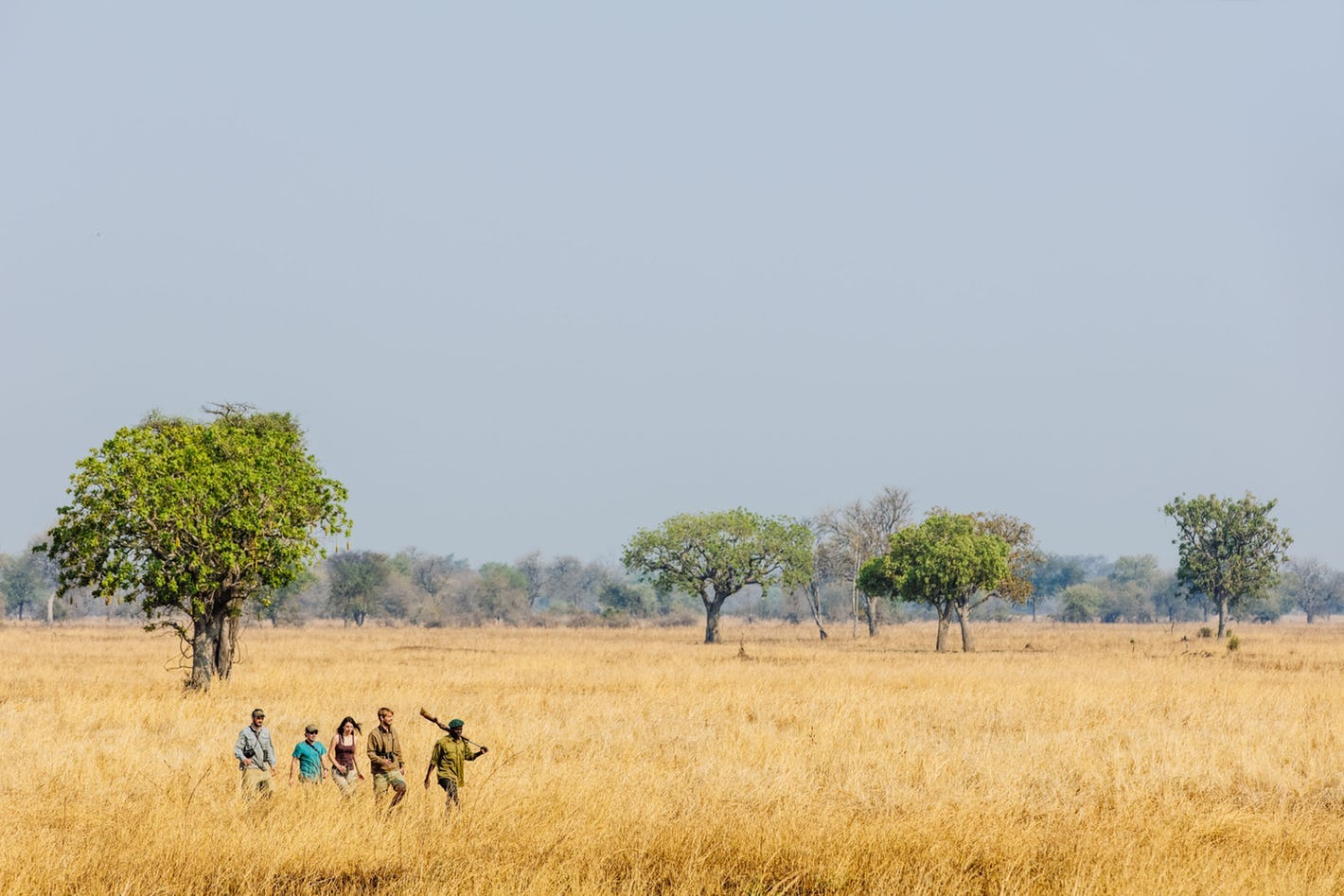
Family friendly
Next on our list of Zambia travel tips is not to rule out the country for a fantastic family safari. East Africa often takes the top spot for multi-generational trips, but over the last few years a crop of new houses have popped up in Zambia that cater brilliantly to families of all ages. In the South Luangwa , Flatdogs Crocodile Nest is one of the best family houses we’ve come across, and Chongwe River House in the Lower Zambezi is a practical yet incredibly stylish choice. Lodges in Zambia don’t necessarily have ‘Kids Programmes’ but the majority of guides are family men (and belly-achingly funny) and have a knack of making the bush come alive for children. The only rule to note is that officially, children under the age of 12 cannot go on a walking safari.
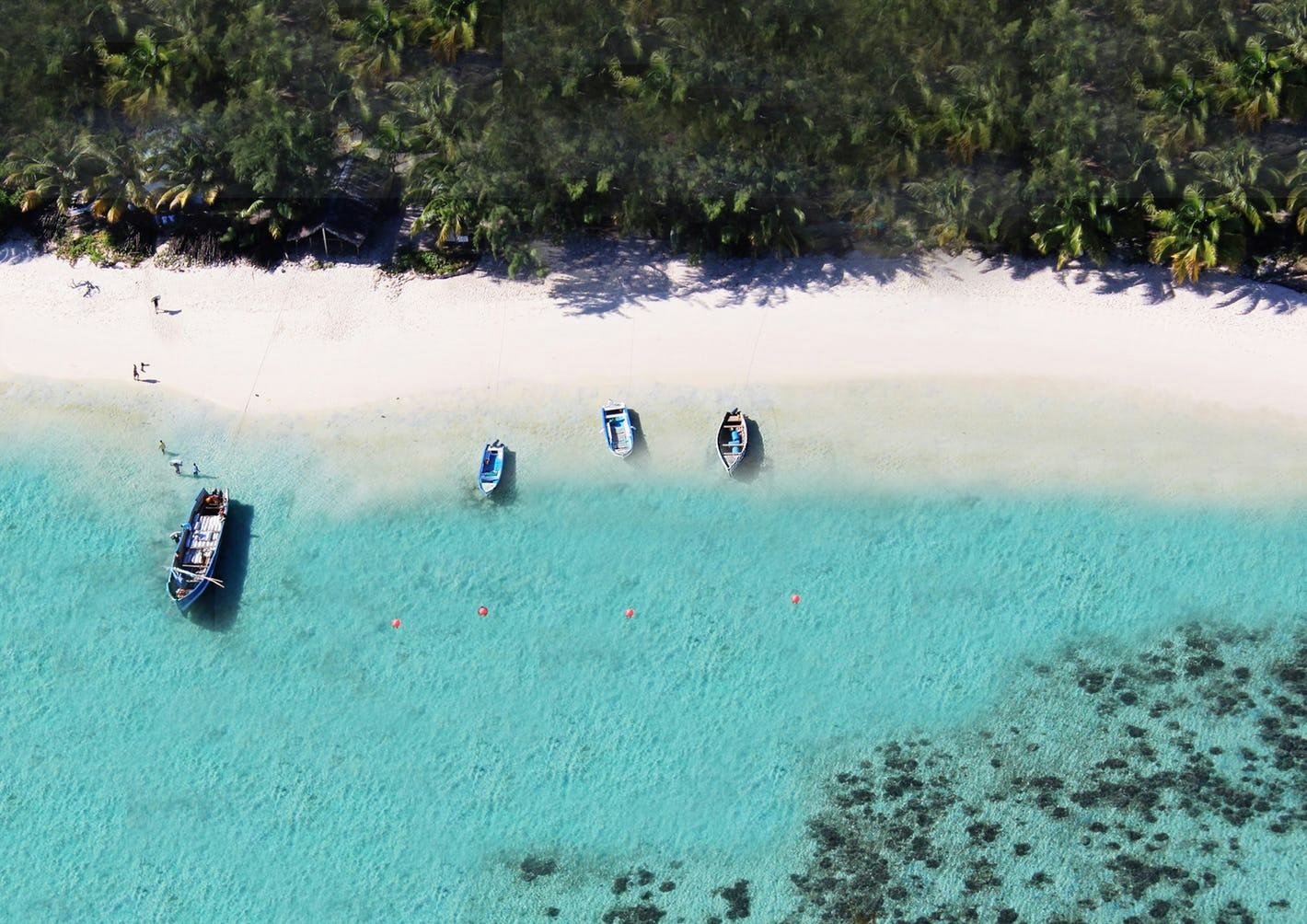
How to combine the beach
Our last Zambia travel tip is all about the beach. Well, sort of. Zambia is a landlocked country and the closest coastline is the Indian Ocean on the eastern side of the continent. Getting here isn’t out of the ordinary; you’ll simply fly from Lusaka to Johannesburg (an overnight may be involved) and then on to your next destination, whether that’s picture-perfect Mauritius or an off-the-beaten track gem on Mozambique’s untouched coast. Time + Tide, famous for their Zambia lodges, also have sister lodge Miavana in Madagascar , offering a lovely (if expensive!) ‘bush and beach’ choice for Zambia. Our favourite option is, however, Lake Malawi . Dotted with hidden beaches and dreamy coves, spending some time by the shimmering water feels like the best type of beach break and, depending on which lodge you choose, there are plenty of activities on offer too. Have a look at this itinerary for how to incorporate it to your Zambia safari and try adding Kaya Mawa , an idyllic retreat on a mango-strewn island in the middle of the lake – you won’t look back!
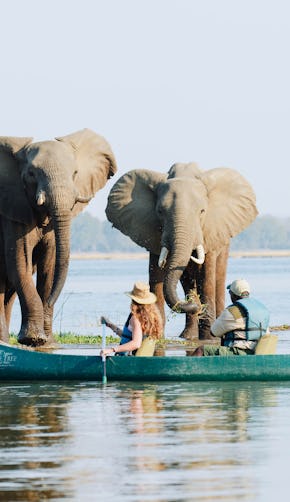
Not sure where to go?
Try our trip wizard to find your dream trip

- Deutschland
Zambia Travel Guide

Zambia: Essential information
From visas information to health and more, get all the information in our Zambia travel guide.
Zambia remains a relatively non-commercial safari destination, where you can experience intimate little camps in beautiful and remote reserves. Together with Zimbabwe, Zambia has the best safari guides in Africa, offering unusually outdoorsy activities, including exciting walking safaris.
Zambia’s prolific game is especially exhilarating when encountered on foot. Elephants, lions, wild dogs, spotted hyenas, giraffes and pukus, are just some of the animals you will see. South Luangwa National Park provides the iconic Zambian bush experience, along with the more remote North Luangwa with its specialist walking camps. Lower Zambezi offers motorboat and canoe trips whilst the west is home to Kafue, a huge, remote wilderness. Experience a sensational Victoria Falls tour at Livingstone! The national parks in Zambia allow night drives, adding a new thrilling dimension to game-viewing!

Visa and entry
European, American and Australian citizens, as well as citizens from most Asian countries, require an entry visa to Zambia. The cost for a single entry tourist visa is US 50 and the cost for a multiple entry visa is USD 80. More information is available on the official visa website.
Visitors re-entering Zimbabwe and Zambia will require a double or multiple entry visa (i.e. visiting the Falls on the Zimbabwe side when staying on the Livingstone side or vice versa, or doing day trips from Botswana to and from Zimbabwe or Livingstone or vice versa.).
In some cases, visas can take up to three months for processing so please consider these circumstances when making a booking since obtaining visas are the responsibility of the traveler.
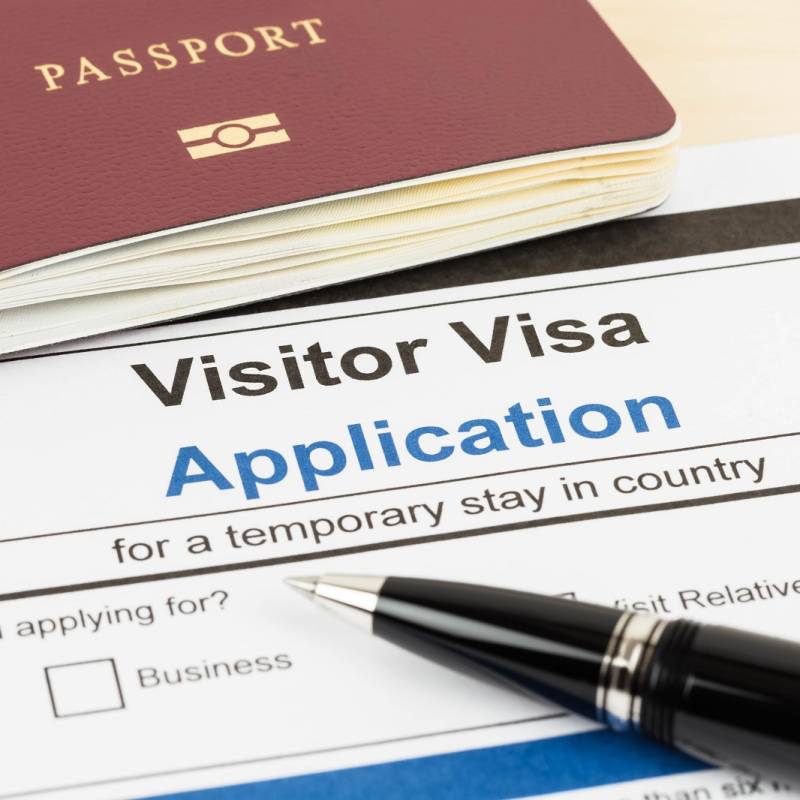
Health information
Before you travel to Zambia, it is a good idea to ensure that all your vaccinations are up to date. These include measles, tetanus, polio, rubella, Hepatitis and your yearly flu shot. Anti-rabies and typhoid vaccinations are also recommended. Since Zambia is a malaria-prone zone, we also advise you to carry mosquito repellent and anti-malaria medicine, and ensure that you wear clothes that cover your adequately in the evenings.
While Lusaka has several good quality clinics and medical facilities, in the interiors of Zambia such facilities are hard to come by. Always ensure that you check the expiry date before taking any medication. Avoid drinking tap water while in Zambia – only drink filtered or bottled water.

Currency and cards
The official currency in the country is the Zambian Kwacha (ZMW) although US dollars are accepted in most tourist establishments. There are plenty of ATMs all over Zambia for your convenience. However, you will find that ATMs are down or run out of money often. If you wish to pay by US dollar or want to exchange money, only carry notes printed in 2013 or later or they may not be accepted.
Visa is the most commonly accepted card in Zambia. Mastercards are accepted in some establishments while most will not accept Amex cards. Many credit card transactions may require a pin for the payment to go through.

Popular Trips to Zambia
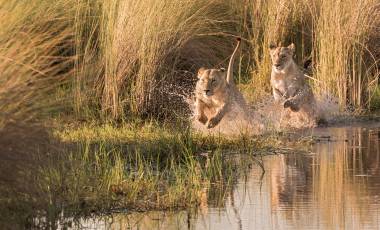
Tanzania, Botswana & Zambia: From Kilimanjaro to the Falls
This is the quintessential African safari vacation. The 15-day tour takes you across some of the continent’s best game reserves in Botswana, Tanzania and Zambia. Buckle up as you set out on the safari journey of your dreams, with stops at Arusha, Ngorongoro Plains, Northern Serengeti, Chobe National Park, Okavango Delta and more. Bask in…
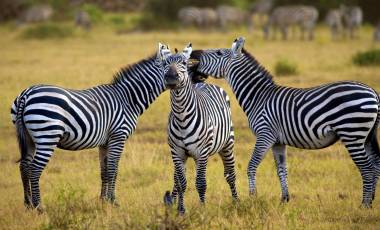
Tanzania, Kenya and Zambia: Safari and Waterfalls
Few things are as awe-inspiring as gazing at the majestic Victoria Falls or witnessing nocturnal life in the Masai Mara. You can experience all that and more on this 12-day tour of Tanzania, Kenya and Zambia. From natural wonders to diverse wildlife and rich culture, this all-encompassing vacation is sure to leave you spellbound. Watch…
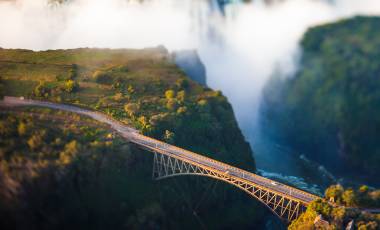
Botswana: Spectacular Water Worlds
This Zambia and Botswana trip takes you to the most spectacular water worlds in Africa. Start with Victoria Falls, which plummet for over a kilometer. Admire the falls from multiple viewpoints and then take a walking or biking tour to a nearby village. Continue on to Chobe National Park, where you can go on boat…

Zambia: Victoria Falls and Safari Highlights
Discover an untamed wilderness in Africa’a adventure capital! Enjoy exhilarating adventure sports in Victoria Falls and a variety of aquatic and overland activities amid the floodplains, grasslands and forests of Lower Zambezi National Park. The highlight of your trip is your scintillating walking safaris in South Luangwa – armed with fantastic guides and scouts, experience the…
Best Places To Visit
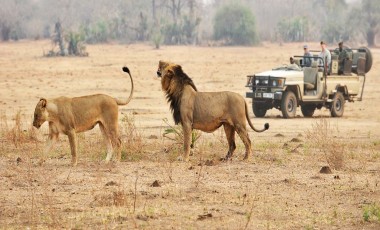
Kafue National Park is a magical wilderness offering excellent game viewing, bird watching and fishing opportunities.
Kafue National Park
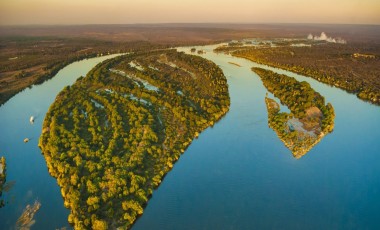
Lower Zambezi National Park lies across the Zambezi River from the historically better known Mana Pools in Zimbabwe.
Lower Zambezi
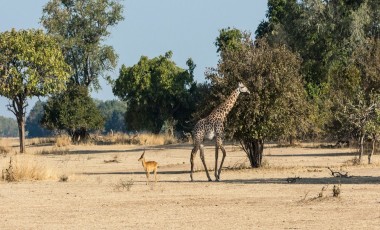
Experience wild walks! South Luangwa National Park is tropical, wild, beautiful and one of the most stunning national parks in Africa.
South Luangwa
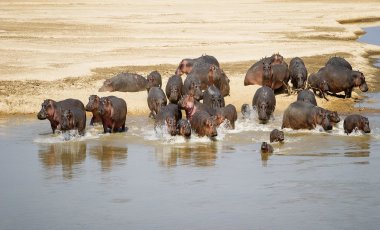
Embrace the remoteness! North Luangwa is a wonderful option for outdoorsy guests who really appreciate the genuine sense of intimacy of the bush experience.
North Luangwa
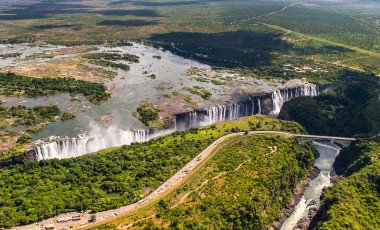
Smoke that thunders! That is what the Kolobo tribe who lived by the Victoria Falls two centuries ago once called this seventh wonder of the world.
Victoria Falls
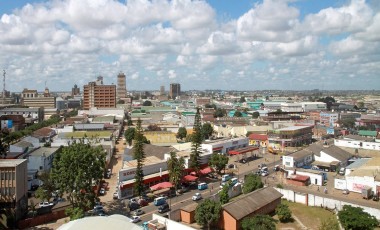
Lusaka is one of the fastest-growing cities in central Africa, with a sprawling downtown area, high-walled suburbs, busy shanty towns, bustling markets and large industrial areas, bringing together people of many nationalities and making it a bustling center for economic, political and cultural activities.
From the Blog

Top 10 Exotic Waterfalls You Need To See
Grand cascades, raging torrents, glorious fountains or ferocious rapids – there are few in the world who don’t enjoy waterfalls; and the more magnificent they are, the better!
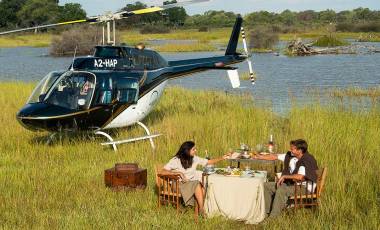
Top 9 Unique Luxury African Safaris for You
Here’s our list of the top 10 wildest and most unusual African vacation ideas across eastern and southern Africa.
Best Time To Visit
Being close to the equator, Zambia enjoys a tropical climate. The temperatures are generally very pleasant due to the high altitude. Here is an overview of the best time to visit Zambia.
Things To Do
From the stunning Victoria Falls to scintillating wildlife safaris and incredible river cruises – Zambia is waiting to be discovered! Follow to this link for an overview on the top ten attractions, activities and highlights in Zambia.
What Our Guests Say
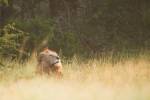
The Enchanting Difference
Authentic & unique.
Our award-winning, licensed local guides provide incredible insights and exclusive experiences for you.
Personalized & Private
Our experts completely customize your private tour to match your interests and preferences.
High-Quality Experiences
All our accommodations and services are personally tested by our team.
Fully Supported Travel
You’ll have a personal and dedicated trip coordinator, backed by 24/7 support in case of emergencies while you’re traveling.
Financial Protection & Flexibility
Your booking is flexible and completely secure with us.
Safe & Secure
Your safety and well-being are our top priorities.
Do you have a vacation in mind? Personalize your itinerary with our Trip Builder.
Update May 10, 2024
Information for u.s. citizens in the middle east.
- Travel Advisories |
- Contact Us |
- MyTravelGov |
Find U.S. Embassies & Consulates
Travel.state.gov, congressional liaison, special issuance agency, u.s. passports, international travel, intercountry adoption, international parental child abduction, records and authentications, popular links, travel advisories, mytravelgov, stay connected, legal resources, legal information, info for u.s. law enforcement, replace or certify documents.
Before You Go
Learn About Your Destination
While Abroad
Emergencies
Share this page:
Travel Advisory July 31, 2023
Zambia - level 1: exercise normal precautions.
Reissued with obsolete COVID-19 page links removed.
Exercise normal precautions in Zambia.
Read the country information page for additional information about travel to Zambia.
If you decide to travel to Zambia:
- Enroll in the Smart Traveler Enrollment Program ( STEP ) to receive Alerts and make it easier to locate you in an emergency.
- Follow the Department of State on Facebook and Twitter .
- Follow the U.S. Embassy in Zambia on Facebook and Twitter .
- Review the Country Security Report for Zambia.
- Prepare a contingency plan for emergency situations. Review the Traveler’s Checklist .
- Visit the CDC page for the latest Travel Health Information related to your travel.
Embassy Messages
View Alerts and Messages Archive
Quick Facts
3 blank pages per entry for Zambia
Yellow fever, if entering from a yellow fever endemic country
Embassies and Consulates
U.s. embassy lusaka.
Subdivision694/Stand 100 Kabulonga District Ibex Hill Road Lusaka, Zambia Telephone: +(260) 211-357-000 Emergency After-Hours Telephone: +(260) 211-357-000 or +(260) 966-877-805 or +(260) 761-107-000 Fax: (+260) (0) 211-357-224 Email: [email protected]
Destination Description
Learn about the U.S. relationship to countries around the world.
Entry, Exit and Visa Requirements
A passport is required to enter Zambia. Passports must be valid for at least six months upon arrival and have at least three blank pages upon each entry. Travelers transiting other countries on the way to Zambia, particularly South Africa , should refer to their Country Information pages for additional blank page requirements. U.S. Passport holders do not require a visa to visit Zambia.
You must carry the original or a certified copy of your passport and immigration permit at all times. Certified copies must be obtained from the office that issued the permit. If your passport is lost or stolen, visit the Zambian Department of Immigration to obtain a replacement entry permit before attempting to depart the country.
Departure Tax/Security Charge: U.S. citizens must pay an airport departure tax in local currency. This tax is included in the cost of international flight tickets. For domestic flights, passengers pay a nominal charge in Zambian kwacha prior to entering the departure hall, only for chartered flights.
The U.S. Department of State is unaware of any HIV/AIDS entry restrictions for visitors to or foreign residents of Zambia.
Find information on dual nationality , prevention of international child abduction and customs regulations on our websites.
Safety and Security
Zambia has few major security concerns. Visitors can avoid criminal activity by utilizing common sense measures provided below.
Political activity, especially during national and local elections, can lead to civil unrest and low-level violence. Spontaneous demonstrations occasionally occur and are often exacerbated by police action. Even demonstrations intended to be peaceful can quickly turn confrontational and escalate into violence. To stay safe, you should:
- avoid large crowds, demonstrations, and political gatherings
- follow media coverage of local events
- be aware of your surroundings at all times
- exercise caution when traveling throughout the country
- avoid walking alone in the downtown areas, high-density residential compounds, public parks, and poorly lit areas—especially at night.
Crime: The most commonly reported crimes committed against Westerners in Lusaka are non-violent confrontations characterized as crimes of opportunity (theft of unattended possessions in public places or hotel rooms, confidence scams). Pickpockets operate in crowded markets and on public transportation, and visitors have reported snatch attacks of bags and smartphones on busy city streets as well as smash-and-grabs of valuables from vehicles idling in slow traffic and from parked cars. Other crimes, including thefts, violent attacks, including home invasions/robberies, and sexual assaults have occurred on many occasions. Victims are, on occasion, followed from banks, nightclubs, and ATMs and robbed at gunpoint, on the street, or upon arrival at their residence. Walking alone is not advisable in the downtown areas, high-density residential neighborhoods referred to locally as a “compound”, public parks, and other poorly illuminated areas, especially at night.
Be aware of:
- Pick-pockets operating in crowded markets and on public transportation;
- Snatch attacks of bags and smart phones on busy city streets;
- “Smash and grab” of valuables from vehicles idled in traffic and from parked cars;
- Thefts, violent attacks, home invasions/robberies; and
- Recent incidents involving sexual assaults.
Demonstrations occur frequently. They may take place in response to political or economic issues, on politically significant holidays, and during international events.
- Even demonstrations intended to be peaceful can turn confrontational and possibly become violent.
- Avoid areas around protests and demonstrations.
- Check local media for updates and traffic advisories.
International Financial Scams: See the Department of State Department of State and the FBI pages for information.
Internet romance and financial scams are prevalent in Zambia. Scams are often initiated through Internet postings/profiles or by unsolicited emails and letters. Scammers almost always pose as U.S. citizens who have no one else to turn to for help. Common scams include:
- Romance/Online dating
- Money transfers
- Contracts with promises of large commissions
- Work permits/job offers
Border Areas: Travelers should not drive off-road or in remote areas near the borders with the Democratic Republic of the Congo (DRC) and Angola because of the danger of undetected land mines and unexploded ordnance. If you must travel to these areas, you should drive in convoys and carry satellite telephones. Parts of the DRC border area can be plagued with unrest and/or armed criminal elements. See the Country Information pages for the DRC and Angola for additional information.
Victims of Crime:
U.S. citizen victims of sexual assault are encouraged to contact the U.S. Embassy for assistance. Report crime to the local police at 991 or 112 and contact the U.S. Embassy at + (260) 011-357-000 or + (260) 966-050-123.
Remember that local authorities are responsible for investigating and prosecuting crime.
See our webpage on help for U.S. victims of crime overseas .
- Help you find appropriate medical care
- Assist you in reporting a crime to the police
- Contact relatives or friends with your written consent
- Provide general information regarding the victim’s role during the local investigation and following its conclusion
- Provide a list of local attorneys
- Provide our information on victim’s compensation programs in the U.S .
- Provide an emergency loan for repatriation to the United States and/or limited medical support in cases of destitution
- Help you find accommodation and arrange flights home
- Replace a stolen or lost passport
Domestic Violence: U.S. citizen victims of domestic violence may contact the Embassy for assistance.
The legal age of marriage in Zambia is 16 for boys and girls with parental consent and 21 without consent. The law also prohibits Female genital mutilation or cutting (FGM/C) for women and girls and criminalizes rape and other sexual offenses, and courts have discretion to sentence convicted rapists to life imprisonment with hard labor. The law however does not include provisions for spousal rape. The penal code criminalizes domestic violence between spouses and among family members living in the same home. It also provides for prosecution of most crimes of gender-based violence, and penalties for conviction range from a fine to 25 years imprisonment, depending on the severity of injury and whether a weapon was used.
Tourism : The tourism industry is unevenly regulated, and safety inspections for equipment and facilities do not commonly occur. Hazardous areas/activities are not always identified with appropriate signage, and staff may not be trained or certified either by the host government or by recognized authorities in the field. In the event of an injury, appropriate medical treatment is typically available only in/near major cities and there are no trauma facilities in the country. First responders are generally unable to access areas outside of major cities and to provide urgent medical treatment. U.S. citizens are advised to purchase medical evacuation insurance .
Local Laws & Special Circumstances
Criminal Penalties: You are subject to local laws. If you violate local laws, even unknowingly, you may be expelled, arrested, or imprisoned. Individuals establishing a business or practicing a profession that requires additional permits or licensing should seek information from the competent local authorities, prior to practicing or operating a business.
Furthermore, some laws are also prosecutable in the United States, regardless of local law. For examples, see our website on crimes against minors abroad and the U.S. Department of Justice website.
Arrest Notification: If you are arrested or detained, ask police or prison officials to notify the U.S. Embassy immediately. See our webpage for further information.
Counterfeit and Pirated Goods: Although counterfeit and pirated goods are prevalent in many countries, they may still be illegal according to local laws. You may also pay fines or have to give them up if you bring them back to the United States. See the U.S. Department of Justice website for more information.
Drugs : Possession of small quantities of an illegal substance can constitute drug trafficking in Zambia. A list of controlled substances in Zambia is included in the Local Resources section of the U.S. Embassy Lusaka's webpage . When visiting Zambia, you should consider carrying any prescribed medications in their original bottles with a doctor’s prescription.
Wild Animal Products: It is illegal to purchase tortoise shells, rhino horns, elephant ivory, or any items made out of these materials. Other wildlife products, such as hippo teeth, crocodile teeth or skins, flat skins, horns, or animal bones, should only be purchased from animal product vendors licensed with Zambia’s Department of National Parks and Wildlife, which provide certification of purchase. Failure to produce a valid and legitimate certificate for these prescribed trophies can result in a five-year minimum prison sentence. Travelers must present the items and certification of purchase in person to Department of National Parks and Wildlife officials within 45 days of departure to obtain an export permit. Permits for items derived from CITES regulated species, such as hippo or crocodile, may take a number of days to obtain, may include additional fees, and may require an import permit from a destination country. Wildlife products with no export permit will be confiscated upon departure and the Government of Zambia will prosecute offenders to the fullest extent of the law with penalties ranging from large fines to minimum five-year prison sentences. It is illegal to export game meat in any form: dried, processed, or raw.
Faith-Based Travelers: See our following webpages for details:
- Faith-Based Travel Information
- International Religious Freedom Report – see country reports
- Human Rights Report – see country reports
- Hajj Fact Sheet for Travelers
- Best Practices for Volunteering Abroad
LGBTQI+ Travelers: Zambian law criminalizes consensual same-sex sexual activity and penalties for conviction of engaging in “acts against the order of nature” are 15 years to life imprisonment. The lesser charge of “gross indecency” carries penalties of up to 14 years imprisonment.
LGBTQI+ persons in particular are at risk of societal violence due to prevailing prejudices, misperceptions of the law, lack of legal protections, and inability to access health services.
See our LGBT QI+ Travel Information page and section 6 of our Human Rights report for further details.
Travelers with Disabilities: The law in Zambia prohibits discrimination against persons with physical, sensory, intellectual, or mental disabilities, but the law is not effectively enforced. The Zambia Agency for Persons with Disabilities was created to promote awareness relating to the prevention of disabilities and the care of persons with disabilities; to cooperate with other government ministries in providing preventive, educational, training, employment, and rehabilitation services for persons with disabilities. Cultural attitudes toward disability vary, but in general social acceptance of persons with disabilities in public is not as prevalent as in the United States. Despite some improvements in largely urban areas, physical accessibility to services remains a pervasive problem across most of Zambia. The most common types of accessibility may include accessible facilities, information, and communication/access to services/ease of movement or access. Expect accessibility to be limited in public transportation, lodging, communication/information, and general infrastructure. Contact the US Embassy in Zambia to receive a list of providers.
Students: See our Students Abroad page and FBI travel tips.
Women Travelers: See our travel tips for Women Travelers .
Private medical clinics in major cities provide reasonable care, but major medical emergencies usually require medical evacuation to South Africa, Europe, or the United States. The nearest air ambulances are based in South Africa. Government hospitals and clinics are often understaffed and lack supplies. Basic medical care outside of major cities is extremely limited. Doctors and hospitals expect immediate cash payment for health services.
For emergency services in Zambia, dial 999 for General Emergency, 991 for Police and 993 for Fire.
Ambulance services are:
- not widely available and training and availability of emergency responders may be below U.S. standards.
- not equipped with state-of-the-art medical equipment.
- not staffed with trained paramedics and often have little or no medical equipment.
- Injured or seriously ill travelers may prefer to take a taxi or private vehicle to the nearest major hospital rather than wait for an ambulance.
We do not pay medical bills. Be aware that U.S. Medicare does not apply overseas.
Medical Insurance: Make sure your health insurance plan provides coverage overseas. Most care providers overseas only accept cash payments. See our webpage for more information on insurance overseas. Visit the U.S. Centers for Disease Control and Prevention for more information on type of insurance you should consider before you travel overseas.
We strongly recommend supplemental insurance to cover medical evacuation.
Always carry your prescription medication in original packaging, along with your doctor’s prescription. Check the Dangerous Drugs Act , or consult the Zambia Medicines Regulatory Authority to ensure the medication is legal in Zambia.
The following diseases are prevalent:
- African trypanosomiasis
- Hepatitis A
- Hepatitis B
- African Tick-Bite Fever
- Chikungunya
- Tuberculosis
- Rift River Valley
- Ross River Virus Disease
- Leptospirosis
- Schistomsomiasis
Use the U.S. Centers for Disease Control and Prevention recommended mosquito repellents and sleep under insecticide-impregnated mosquito nets. Chemoprophylaxis is recommended for all travelers even for short stays.
HIV/AIDS : Zambia has a very high burden of HIV. Travelers are generally at low risk for getting HIV but certain practices such as having unprotected sex or sharing needles with people who are or might be infected with HIV can significantly increase the risk of HIV transmission. For more information on what you can do before and during travel to prevent HIV infection please visit the U.S. Centers for Disease Control and Prevention website.
There are shortages of medicine and medical supplies throughout Zambia.
Visit the U.S. Centers for Disease Control and Prevention website for more information about Resources for Travelers regarding specific issues in Zambia.
Vaccinations: Be up-to-date on all vaccinations recommended by the U.S. Centers for Disease Control and Prevention.
Further health information:
- World Health Organization
- U.S. Centers for Disease Control and Prevention (CDC)
Air Quality: Visit AirNow Department of State for information on air quality at U.S. Embassies and Consulates.
The U.S. Embassy maintains a list of doctors and hospitals here under "local resources." We do not endorse or recommend any specific medical provider or clinic.
Health facilities in general
- Public medical clinics lack basic resources and supplies.
- Private hospitals usually require advance payment or proof of adequate insurance before admitting a patient.
- Patients bear all costs for transfer to or between hospitals.
Pharmaceuticals
- Exercise caution when purchasing medication overseas. Pharmaceuticals, both over the counter and requiring prescription in the United States, are often readily available for purchase with little controls. Counterfeit medication is common and may prove to be ineffective, the wrong strength, or contain dangerous ingredients. Medication should be purchased in consultation with a medical professional and from reputable establishments.
- U.S. Customs and Border Protection and the Food and Drug Administration are responsible for rules governing the transport of medication back to the United States. Medication purchased abroad must meet their requirements to be legally brought back into the United States. Medication should be for personal use and must be approved for usage in the United States. Please visit the U.S. Customs and Border Protection and the Food and Drug Administration websites for more information.
Assisted Reproductive Technology and Surrogacy
- If you are considering traveling to Zambia to have a child through use of assisted reproductive technology (ART) or surrogacy, please see our ART and Surrogacy Abroad page .
Water Quality
- In many areas, tap water is not potable. Bottled water and beverages are generally safe, although you should be aware that many restaurants and hotels serve tap water unless bottled water is specifically requested. Be aware that ice for drinks may be made using tap water.
Adventure Travel
- Visit the U.S. Centers for Disease Control and Prevention website for more information about Adventure Travel .
Travel and Transportation
Road Conditions and Safety: Vehicle travel is extremely hazardous under normal conditions but particularly at night and in inclement weather.
When traveling in Zambia, please be aware:
- Secondary roads are not well maintained; use major roads whenever possible.
- Most roads do not have shoulders or sidewalks and are poorly lit.
- Pedestrians and livestock use the roadways.
- Passing another vehicle is dangerous given the general condition of roads.
- Lookout for tree branches or other debris which local drivers often place behind their cars to indicate a breakdown or trouble.
- Cars with non-functioning headlights and taillights are a common hazard.
- Night driving is discouraged.
- There are no emergency services for stranded or injured drivers.
- Auto accident victims are vulnerable to theft by those pretending to be helpful.
Traffic Laws:
- Vehicles drive on the left side of the road.
- Vehicles in traffic circles travel clockwise.
- It is illegal to turn left on a red light.
- Splashing a pedestrian as you drive through water is a traffic violation.
- You should come to a stop and pull to the side of the road if you hear sirens indicating an emergency vehicle or official motorcade.
- Use of seat belts is mandatory, as are helmets for motorcyclists.
- A child's seat is not mandatory by law but is recommended.
- It is illegal to use a cell phone while driving and the minimum fine if caught is equivalent to $60.
- The speed limit in Lusaka is 30 mph/50 km and 60 mph/100 km outside of city limits, unless otherwise indicated.
- If you are stopped by police and asked to pay a fine, you should obtain an official receipt or be directed to the nearest police station where you can make payment.
- Drivers under the influence of alcohol who are involved in accidents are tested at Lusaka's University Teaching Hospital (UTH) and then taken to court.
Public Transportation: City traffic is comprised mostly of cars and privately operated minibuses; motorcycles are rare. Some relatively nice buses travel between Lusaka and Livingstone and the Copperbelt. Minibuses serve as the primary means of intra-city travel in Zambia but are often overcrowded, poorly maintained, and seldom punctual.
See our Road Safety page for more information.
Aviation Safety Oversight: As there is no direct commercial air service to the United States by carriers registered in Zambia, the U.S. Federal Aviation Administration (FAA) has not assessed the Government of the Republic of Zambia’s Civil Aviation Authority for compliance with International Civil Aviation Organization (ICAO) aviation safety standards. Further information may be found on the FAA’s safety assessment page.
Please see Fact Sheet for this country/area.
For additional travel information
- Enroll in the Smart Traveler Enrollment Program (STEP) to receive security messages and make it easier to locate you in an emergency.
- Call us in Washington, D.C. at 1-888-407-4747 (toll-free in the United States and Canada) or 1-202-501-4444 (from all other countries) from 8:00 a.m. to 8:00 p.m., Eastern Standard Time, Monday through Friday (except U.S. federal holidays).
- See the State Department’s travel website for the Worldwide Caution and Travel Advisories .
- Follow us on Twitter and Facebook .
- See traveling safely abroad for useful travel tips.
Review information about International Parental Child Abduction in Zambia . For additional IPCA-related information, please see the International Child Abduction Prevention and Return Act (ICAPRA) report.
- Follow us on Twitter and Facebook .
Review information about International Parental Child Abduction in Zambia . For additional IPCA-related information, please see the International Child Abduction Prevention and Return Act ( ICAPRA ) report.
Travel Advisory Levels
Assistance for u.s. citizens, learn about your destination, enroll in step.

Subscribe to get up-to-date safety and security information and help us reach you in an emergency abroad.
Recommended Web Browsers: Microsoft Edge or Google Chrome.
Make two copies of all of your travel documents in case of emergency, and leave one with a trusted friend or relative.
Afghanistan
Antigua and Barbuda
Bonaire, Sint Eustatius, and Saba
Bosnia and Herzegovina
British Virgin Islands
Burkina Faso
Burma (Myanmar)
Cayman Islands
Central African Republic
Cote d Ivoire
Curaçao
Czech Republic
Democratic Republic of the Congo
Dominican Republic
El Salvador
Equatorial Guinea
Eswatini (Swaziland)
Falkland Islands
France (includes Monaco)
French Guiana
French Polynesia
French West Indies
Guadeloupe, Martinique, Saint Martin, and Saint Barthélemy (French West Indies)
Guinea-Bissau
Isle of Man
Israel, The West Bank and Gaza
Liechtenstein
Marshall Islands
Netherlands
New Caledonia
New Zealand
North Korea (Democratic People's Republic of Korea)
Papua New Guinea
Philippines
Republic of North Macedonia
Republic of the Congo
Saint Kitts and Nevis
Saint Lucia
Saint Vincent and the Grenadines
Sao Tome and Principe
Saudi Arabia
Sierra Leone
Sint Maarten
Solomon Islands
South Africa
South Korea
South Sudan
Switzerland
The Bahamas
Timor-Leste
Trinidad and Tobago
Turkmenistan
Turks and Caicos Islands
United Arab Emirates
United Kingdom
Vatican City (Holy See)
External Link
You are about to leave travel.state.gov for an external website that is not maintained by the U.S. Department of State.
Links to external websites are provided as a convenience and should not be construed as an endorsement by the U.S. Department of State of the views or products contained therein. If you wish to remain on travel.state.gov, click the "cancel" message.
You are about to visit:
Latest Articles
Africans in space: the incredible story of zambia’s afronauts.

An Introduction to Zambia’s Kaonde Tribe


Zambian Authors You Should Know

Why Visiting Victoria Falls Is Now Easier Than Ever

An Introduction to Zambia’s Luvale People

The Ultimate Guide to Rocktober, Zambia

The Top 10 Restaurants in Lusaka, Zambia

The Circus School Empowering Zambia's Children

A Street Art Tour of Lusaka, Zambia

Food & Drink
Explore the local culinary scene, from breakfast to michelin-starred restaurants. sip cocktails, savor desserts, and discover the best local markets., the 10 best breakfast and brunch spots in lusaka, zambia.

Everything You Need to Know About Lusaka’s Restaurant Week

The Best Coffee Shops in Lusaka, Zambia

The Best Bars in Lusaka, Zambia

9 Traditional Foods You Must Eat While You're in Zambia

Top 10 Restaurants In Lusaka, Zambia

Culture Trip: An interview with Dr Kris Naudts

Things To Do
Plan your sightseeing and activities with our recommendations. explore attractions, book tours, and immerse yourself in the local culture., what you should know about africa's dying ancient baobabs.

The Best Day Trips From Lusaka, Zambia

Discover the Legend of the Baobab with a Taste for Young Maidens

The Best Things to Do at Lake Tanganyika, Zambia

Things to See During Zambia's Emerald Season

7 Museums You Must Visit When Travelling Through Zambia

9 Traditional Festivals in Zambia You Have to Attend

Waterfalls You Have to See in Zambia That Aren't Victoria Falls

The Best Things to Do at Victoria Falls

Places To Stay
Find the perfect place to stay. whether you prefer boutique hotels, luxury resorts, or budget hostels, we have recommendations for you., the best vacation lodges to book in and around lusaka, zambia.

The Best Hotels to Book in Lusaka, Zambia

The Best Boutique Hotels in Zambia

Guides & Tips
Get expert guidance for your trip. from tips on packing to cultural etiquette, our travel advice will help you make the most of your journey., the most popular travel bloggers from zambia.

8 Things You Should Never Do in Zambia

The Best Markets in Lusaka, Zambia

Capture Your Inner Child With These Traditional Games from Zambia

ZMK: Explaining Zambia's Kwacha

How to Spend 24 Hours in Lusaka

Immerse yourself in the local arts, literature, and design. Explore the cultural fabric of the destination through art, literature, and design.
An introduction to zambia's lozi people.

Looking Back at James Brown’s Iconic Visit to Zambia

An Introduction to Zambia's Tonga People

An Introduction to Zambia’s Bemba Tribe

Inspiration
Get inspired to travel. explore lgbtq+ travel experiences, hidden stories, and the unique attractions that make a destination worth visiting., how to find a doctor in zambia.

- You are here:
- Countries & Parks
- Zambia Travel Guide

Zambia Travel Guide Zambia
- Parks & Reserves
Best Time To Visit
Weather & climate.
- Popular Routes
- Getting There
- Malaria & Vaccinations
Overview – Zambia

Philip has traveled through Zambia several times and is the author of more than 20 guidebooks to various African destinations.
Philip is the Zambia expert for SafariBookings and author of more than 20 guidebooks to Africa.
Philip is our Zambia expert and author of more than 20 guidebooks to Africa.
Zambia is an undiscovered safari gem. Victoria Falls, in all its powerful splendor, is on many people’s bucket list. But delve deeper and you’ll find some of Africa’s most pristine and uncrowded wildlife havens. Top-notch parks such as South Luangwa, Lower Zambezi and Kafue National Parks are just waiting to be explored on game drives, as well as expertly guided walking, boat and canoe safaris.

Pros & Cons
- True wilderness experience
- Small ecofriendly bush camps and low-density tourism
- A chance to see Victoria Falls
- Excellent guiding
- One of Africa’s best walking safari destinations
- Fantastic wildlife viewing
- Few other attractions to supplement a safari
- Relatively expensive safari destination
Zambia Safari Reviews
- Expert Rating 4.6 /5 – 13 Reviews
- User Rating 4.6 /5 – 94 Reviews
Across Zambia, you’ll find lots of safari favorites such as elephants, buffalo and zebras. Lions and leopards have a high profile and the country is one of the main strongholds of the endangered wild dog . Several waterways, including the mighty Zambezi River, host huge numbers of hippos and crocodiles . Elsewhere, big herds of lechwe thrive in wetland areas.
- More about the wildlife
In the Dry season (May to October), days are mostly warm to hot and temperatures peak in October, just before the season changes. From June, mornings can get quite chilly and you’ll need warm clothing on early morning game drives. During the country’s Wet season (November to April), the rain can pelt down. Stifling heat and humidity is also an issue at this time of year.
- More about the weather and climate
The rainfall that pours down during the Wet season (November to April) has a habit of cutting off road access in more remote areas, which can make it difficult to get around. For this reason, many of the country’s parks close during the rains – a notable exception being South Luangwa. Wildlife viewing is more productive in the Dry season (May to October), when there’s hardly any rain to be seen, and animals are easily found at local rivers and waterholes.
- More about the best time to visit
Premier Parks & Reserves
- South Luangwa – Walking and classic safaris
- Kafue – Walking, boat and classic safaris
- Lower Zambezi – Canoe, boat, walking and classic safaris
- All 14 Zambia Parks & Reserves
Want To Visit Zambia?
172 Zambia Safaris
- Zambia Budget Safaris
- Zambia Luxury Safaris
- Zambia Honeymoon Safaris
- Tour Operators for Zambia
Most Helpful Expert Review

Philip is an acclaimed travel writer and author of many guidebooks, including the Bradt guides to Uganda, Tanzania, Kenya and South Africa.
Adventurer’s Africa
One of my top five experiences in more than 30 years of African travel was a canoe safari in Zambia’s Lower Zambezi National Park. This is a total wilderness experience, offering the exhilarating immediacy of being right there, in the...
Full Review
Latest User Review

Relaxing destination providing the opportunity to be thrilled by wildlife
Zambian people are very friendly and polite with general living standards above the African average, helping the tourist feel relaxed and safe. Victoria waterfalls are truly a great wonder of nature and the various natural parks offer...
Safari Tours to Zambia

10-Day Romantic Zambia Honeymoon Safari
$7,299 to $7,928 pp (USD)
Zambia: Private tour Luxury Lodge & Tented Camp
You Visit: Lusaka (Start) , South Luangwa NP, Victoria Falls, Livingstone (End)
Wayfairer Travel
4.9 /5 – 149 Reviews
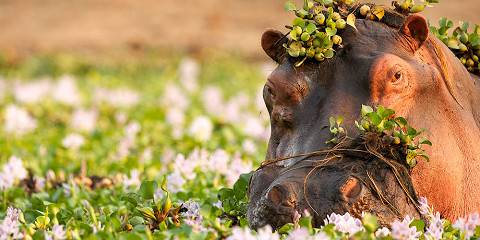
3-Day Zambia Luxury Thrilling Kafue National Park Tour
$1,980 to $2,200 pp (USD)
Zambia: Private tour Luxury Lodge
You Visit: Lusaka (Start) , Kafue NP, Lusaka (End)
Kubwa Five Safaris
5.0 /5 – 124 Reviews
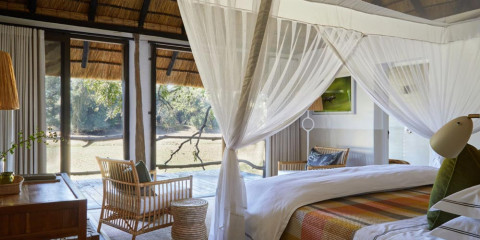
4-Day Last Minute Affordable Luxury - South Luangwa
$1,359 to $1,947 pp (USD)
Zambia: Shared tour (max 8 people per vehicle) Luxury Lodge
You Visit: Mfuwe (Start) , South Luangwa NP, Mfuwe (End)
Ntanda Ventures
5.0 /5 – 22 Reviews

Search Smartraveller

Latest update
Exercise normal safety precautions in Zambia.
Higher levels apply in some areas.
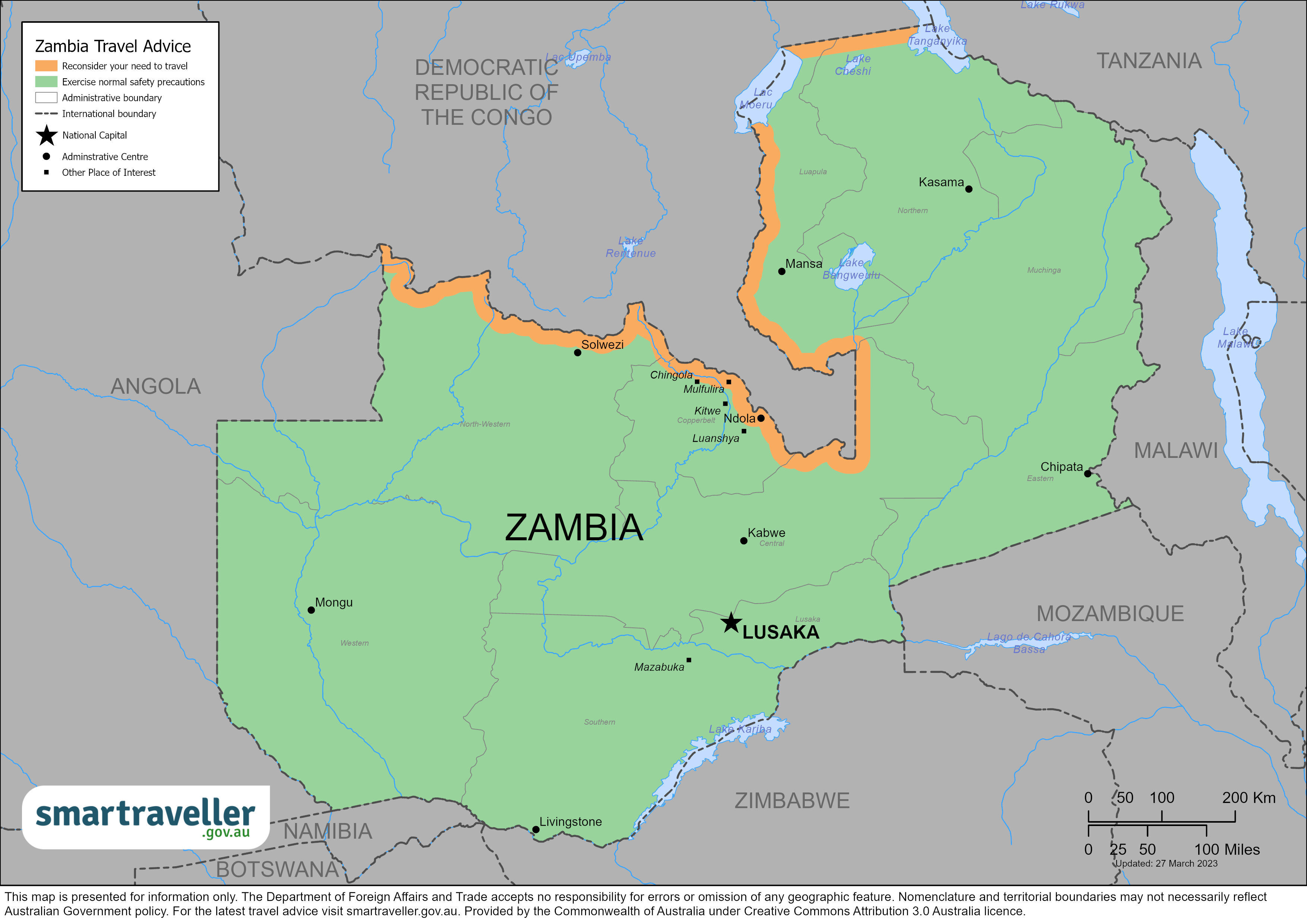
Zambia (PDF 317.92 KB)
Africa (PDF 1.68 MB)
Local emergency contacts
Fire and rescue services, medical emergencies.
Call 999 or go to the hospital.
Call 999 or go to the local police station.
Advice levels
Reconsider your need to travel to border areas with the Democratic Republic of the Congo.
Reconsider your need to travel to border areas with the Democratic Republic of the Congo due to the threat of armed criminal gangs.
- Opportunistic petty crime, including pickpocketing, bag snatching, and vehicle break-ins, is common. Security risks increase after dark, especially in tourist areas and city centres. Stay alert to your surroundings. Avoid walking alone or travelling after dark. Keep vehicle doors locked, windows up and valuables out of sight, even when moving.
- Spontaneous demonstrations are common, and even peaceful demonstrations can turn violent. Avoid all protests, political rallies and large public gatherings.
- Date-rape drugs have been used in bars and restaurants in Lusaka. Always keep a close eye on your food and drinks. If you're not sure it's safe, leave it.
- Thieves sometimes follow people after they withdraw money from ATMs. Avoid using ATMs at night, and be vigilant of your surroundings as you withdraw money.
Full travel advice: Safety
- Medications containing diphenhydramine, such as Benadryl, are illegal in Zambia.
- The rate of HIV/AIDS infection in Zambia is high. Take steps to reduce your risk of exposure to the virus. If you're the victim of a violent crime, see a doctor immediately.
- Malaria and other insect-borne diseases occur. Cholera and other infectious diseases are common. There are currently outbreaks of cholera and anthrax. Boil all drinking water or drink bottled water in rural areas. Avoid contact with animals and do not eat raw or uncooked meat. Don't swim in freshwater. Use insect repellent.
- The standard of medical facilities in Zambia is poor and medical supplies are limited. Make sure you know your blood type. Carry a medical kit.
Full travel advice: Health
- You are subject to all local laws and penalties.
- Zambian authorities don't always contact the Australian Embassy in Harare when they detain or arrest Australians. If you're detained, ask to contact an Australian Embassy consular official in Harare.
- Police and border officials can ask to see your passport and immigration stamp or visa at any time. They could detain or arrest you if you don't have them.
- Consensual sexual activity between individuals of the same sex is illegal in Zambia. If convicted, you could face long terms of imprisonment.
Full travel advice: Local laws
- Australians don't require a visa to enter Zambia.
- Ordinary visitors and tourists can enter for a 90-day visit in any period of 12 months from the day of first entry into Zambia, while business visitors can enter for 30 days in any period of 12 months.
- Entry and exit conditions can change at short notice. Further information on visas can be found at For Visitors – Zambia Department of Immigration (zambiaimmigration.gov.zm) , or you can contact the nearest high commission/embassy or consulate of Zambia for the latest details.
- You need a valid yellow fever vaccination certificate if you're arriving from a country with widespread yellow fever. If you're travelling from an Ebola-affected area, you may be subject to a medical check at the Zambian border.
Full travel advice: Travel
Local contacts
- The Consular Services Charter tells you what the Australian Government can and can't do to help when you're overseas.
- Australia doesn't have an embassy or consulate in Zambia. For consular help, contact the Australian Embassy in Harare .
- To stay up to date with local information, follow the Embassy’s social media accounts.
Full travel advice: Local contacts
Full advice
Crime persists throughout Zambia, including:
- armed robbery
- petty crime
- home break-ins
Security risks increase after dark, especially in tourist areas and city centres.
Pickpockets and bag snatchers target tourists.
Thieves also target travellers in:
- luxury 4WD vehicles
- bus and railway stations
- shopping areas
There have been violent robberies, some involving fatalities, in Lusaka and on the roads in the Copperbelt region.
To protect yourself from crime:
- stay alert to your surroundings
- avoid walking alone or travelling after dark
- keep vehicle doors locked, windows up and valuables out of sight, even when moving
- avoid changing money in busy public areas
Sexual crime
Date-rape drugs have been used in bars and restaurants in Lusaka.
To help protect yourself:
- always keep a close eye on your food and drinks
- never accept food, drink, chewing gum or cigarettes from strangers
- if you're not sure if it's safe, leave it
If you're the victim of a violent crime, including rape , see a doctor immediately. HIV/AIDS is common.
Business fraud scams are common in Zambia. People have been cheated after being persuaded to travel to Zambia on business.
To avoid a potential scam:
- be alert if you're approached by someone in Zambia who you don't know
- don't send money to anyone until you've made proper checks
If you're the victim of a scam, get legal help.
Don't travel to Zambia to get your money back.
Credit card fraud
Credit card fraud occurs.
To protect yourself from fraud:
- always keep sight of your card when paying for goods or services
- make sure credit cards are swiped no more than necessary
- check that carbon copies are destroyed
Cyber security
You may be at risk of cyber-based threats during overseas travel to any country. Digital identity theft is a growing concern. Your devices and personal data can be compromised, especially if you're connecting to Wi-Fi, using or connecting to shared or public computers, or to Bluetooth.
Social media can also be risky in destinations where there are social or political tensions or laws that may seem unreasonable by Australian standards. Travellers have been arrested for things they have said on social media. Don't comment on local or political events on your social media.
More information:
- Cyber security when travelling overseas
Civil unrest and political tension
Spontaneous demonstrations are common. Public protests and events that draw large groups of people can turn violent.
To protect yourself during a period of unrest:
- monitor the media for possible unrest
- avoid demonstrations, political rallies and large public gatherings
More information:
Demonstrations and civil unrest
Terrorism is a threat worldwide, including in Zambia.
Adventure activities and tours
Local transport and tour operators don't always follow safety and maintenance standards, including adventure activities like rafting at Victoria Falls.
If you plan to do an adventure activity :
- check if your travel insurance policy covers it
- ask about and insist on minimum safety requirements
- always use available safety gear, such as life jackets or seatbelts
If proper safety equipment isn't available, use another provider.
Wildlife safety
Getting too close to wildlife can be dangerous.
Swimming in lakes and rivers is unsafe because wildlife could attack you.
To protect yourself from wildlife:
- respect wildlife laws
- keep a safe and legal distance when looking at wildlife
- don't swim in lakes or rivers
- only use well-known and professional guides or tour operators
- follow park rules and the advice of wardens
Climate and natural disasters
Zambia experiences severe weather , including flooding.
The rainy season is from November to April. Roads may become impassable because of flooding.
To protect yourself if flooding occurs:
- keep your passport in a safe, waterproof place
- closely monitor local media and other sources, such as the Global Disaster Alert and Coordination System
- keep in touch with friends and family
- be ready to change your plans
- try to find higher ground if you can safely
Travel insurance
Get comprehensive travel insurance before you leave.
Your policy needs to cover all overseas medical costs, including medical evacuation. The Australian Government won't pay for these costs.
If you can't afford travel insurance, you can't afford to travel. This applies to everyone, no matter how healthy and fit you are.
If you're not insured, you may have to pay thousands of dollars up-front for medical care.
- what activities and care your policy covers
- that your insurance covers you for the whole time you'll be away
Physical and mental health
Consider your physical and mental health before you travel, especially if you have an existing medical condition.
See your doctor or travel clinic to:
- have a basic health check-up
- ask if your travel plans may affect your health
- plan any vaccinations you need
Do this at least eight weeks before you leave.
If you have immediate concerns for your welfare or the welfare of another Australian, call the 24-hour Consular Emergency Centre on +61 2 6261 3305 or contact your nearest Australian Embassy, High Commission or Consulate to discuss counselling hotlines and services available in your location.
The Australian Embassy in Harare provides consular services to Australians in Zambia.
- General health advice
- Healthy holiday tips (Healthdirect Australia)
Medications
Not all medication available over the counter or by prescription in Australia is available in other countries. Some may even be considered illegal or a controlled substance, even if prescribed by an Australian doctor.
Medications containing diphenhydramine, such as Benadryl, are regulated in Zambia.
If you plan to bring medication, check if it's legal in Zambia. Take enough legal medication for your trip.
If your medication is illegal in Zambia, ask your doctor in Australia about alternatives.
Always carry a copy of your prescription and a dated letter from your doctor saying:
- what the medication is
- your required dosage
- that it's for personal use
You could be arrested and jailed if you don't carry your prescription.
- Zambian Drug Enforcement Commission
Health risks
The rate of HIV/AIDS (World Health Organization) infection in Zambia is high.
Take precautions if engaging in activities that expose you to the virus.
Insect-borne diseases
There is a high risk of malaria throughout the year across Zambia. Consider medication to prevent malaria. Consult your doctor about which medication to take and for how long.
Other insect-borne diseases, including those listed by the World Health Organization:
- chikungunya
- African sleeping sickness
To protect yourself from disease:
- use insect repellent at all times
- wear long, loose, light-coloured clothing
- make sure your accommodation is mosquito-proof
Speak to a doctor if you develop a fever, muscle pain, a rash or severe headache.
Other health risks
Waterborne, foodborne and other infectious diseases are common, including these listed by the World Health Organization:
- tuberculosis
- viral haemorrhagic fevers
Serious outbreaks sometimes occur.
To protect yourself from illness:
- drink boiled water or bottled water with sealed lids in rural areas
- avoid ice cubes in rural areas
- avoid raw and undercooked food, such as salads
- avoid contact with animals
- don't swim in freshwater
If you're bitten or scratched by an animal, get medical help immediately.
- Get medical advice if you have a fever or diarrhoea.
There is currently an outbreak of anthrax in Zambia, affecting both rural and urban provinces. Avoid dead animals or carcasses. Purchase meat from reputable sources, and do not eat raw or undercooked meat. Avoid animal products that could have been sourced from animals that may have died of natural causes. If you suspect that you may have come into contact with anthrax, seek urgent medical advice.
Medical care
Medical facilities.
The standard of medical facilities in Zambia is poor, especially in rural areas.
Medical supplies are limited. Some prescription medicines may not be available.
Know your blood type. Carry a sterile medical kit, including needles and dressings.
Most doctors and hospitals require up-front cash payment.
If you become seriously ill or injured, you may need to be evacuated to a place with better facilities, such as South Africa, Europe or the United States. Medical evacuation can be very expensive.
You're subject to all local laws and penalties, including those that may appear harsh by Australian standards. Research local laws before travelling.
If you're arrested or jailed, the Australian Government will do what it can to help you under our Consular Services Charter . But we can't get you out of trouble or out of jail.
Zambian authorities don't always contact the Australian Embassy in Harare when they detain or arrest an Australian citizen.
If you're detained, you have the right to contact an Australian Embassy consular official in Harare.
- Arrested or jailed overseas
Possession of small quantities of an illegal substance can constitute drug trafficking in Zambia. Penalties for drug-related crimes are severe. They include long prison sentences and heavy fines.
- Carrying or using drugs
Police and border officials can ask to see your passport and immigration stamp or visa at any time. They could detain or arrest you if you don't have them.
Always carry your passport and visa or immigration permit. You can get certified copies from the issuing office.
In Zambia, it's illegal to:
- have pornographic material
- take photos of military areas, buildings or personnel
- buy or trade in endangered wildlife products, such as tortoise shells, ivory and rhino horn, or any products made of these materials without a licence
Consensual sexual activity between individuals of the same sex is illegal in Zambia. If convicted, you could be sentenced to long terms of imprisonment.
- Advice for LGBTI travellers
- Wildlife trade (Department of the Environment and Energy)
Australian laws
Some Australian criminal laws still apply when you're overseas. If you break these laws, you may face prosecution in Australia.
Staying within the law and respecting customs
Dual nationality
Officially, Zambia recognises dual nationals. In practice, authorities may not recognise a second nationality.
Dual nationals can't yet apply to have their other nationality recognised in Zambia.
Local authorities may consider you a Zambian national if you're both an Australian and Zambian national. This limits the consular services we can give if you're arrested or detained. Enter and exit on the same passport.
- Dual nationals
Visas and border measures
Every country or territory decides who can enter or leave through its borders. For specific information about the evidence you'll need to enter a foreign destination, check with the nearest embassy, consulate or immigration department of the destination you're entering.
Visa conditions
Australian passport holders do not require a visa to enter Zambia. Ordinary visitors and tourists can enter for 90 days in any period of 12 months from the day of first entry into Zambia.
Business visitors can enter for 30 days in any period of 12 months. Business visitors may be required to present a letter of invitation from the sponsoring organisation.
If arriving by air, you must have a valid return air ticket. If you're arriving by land or water, you must have enough funds for your stay and departure from Zambia.
A KAZA UNVISA is valid for travel between Zambia and Zimbabwe and day trips to Botswana through the Kaungula border. You can get a KAZA UNVISA if you enter via:
- Lusaka or Livingstone international airports
- Livingstone land border with Zimbabwe
- Kazungula land border with Botswana
You can also apply for a KAZA UNVISA online. It costs US$50 and is valid for 30 days.
Entry and exit conditions can change at short notice. Information on entry and visa requirements can be found at For Visitors – Zambia Department of Immigration (zambiaimmigration.gov.zm) , or contact the nearest high commission embassy or consulate of Zambia for details about visas, currency, customs and quarantine rules.
Permits and departure levy
To work in Zambia, including as a volunteer, you'll need an employment permit. For more details, please see the Zambian Department of Immigration .
To live in Zambia, you'll need a residence permit. For more details, see the Zambian Department of Immigration .
If you don't comply with these or other immigration rules, authorities may detain you.
Some Zambian immigration agents may issue fake documents. Make proper checks before and after using a local agent to get a visa or permit.
If you fly within or out of Zambia, you must pay the National Airports Corporation levy. The levy isn't often included in airline tickets. You'll have to pay the levy in US dollars or Zambian Kwacha.
- Zambian Department of Immigration
Other formalities
Yellow fever vaccination.
You'll need a valid yellow fever vaccination certificate if you're arriving from a country where there's widespread yellow fever.
- Countries with a risk of yellow fever
Ebola virus
If you're travelling from an Ebola-affected area, you may be subject to a medical check at the Zambian border.
Zambian authorities have refused entry to people arriving from Ebola-affected countries. If there's another outbreak, authorities may ban people arriving from affected areas.
To enter Zambia, you must have 6 months validity on your passport and have at least 3 blank pages. If you don't, you may be denied entry.
Some foreign governments and airlines apply the rule inconsistently. Travellers can receive conflicting advice from different sources.
You can end up stranded if your passport is not valid for more than 6 months.
The Australian Government does not set these rules. Check your passport's expiry date before you travel. If you're not sure it'll be valid long enough, consider getting a new passport .
Lost or stolen passport
Your passport is a valuable document. It's attractive to people who may try to use your identity to commit crimes.
Some people may try to trick you into giving them your passport. Always keep it in a safe place.
If your passport is lost or stolen, tell the Australian Government as soon as possible:
- In Australia, contact the Australian Passport Information Service .
- If you're overseas, contact the nearest Australian embassy or consulate .
Travel via South Africa
If you're travelling through South Africa, you'll need a full Australian passport. South Africa does not accept temporary travel documents.
- Travel advice for South Africa
Passport with 'X' gender identifier
Although Australian passports comply with international standards for sex and gender, we can't guarantee that a passport showing 'X' in the sex field will be accepted for entry or transit by another country. Contact the nearest embassy, high commission or consulate of your destination before you arrive at the border to confirm if authorities will accept passports with 'X' gender markers.
- LGBTI travellers
The local currency is the Zambia Kwacha (ZMW).
Declare any ZMW and foreign currency over USD5000 when you arrive and depart. This covers all forms of currency, not only cash.
You must use ZMW to pay in Zambia. It's against the law to quote or pay in foreign currency for local goods or services. If you do, you could be fined or jailed for 10 years.
Use well-known banks or currency exchange companies to change or withdraw money. Fake USD100 and ZMW notes are common.
Zambian banks and foreign exchange agents won't accept US banknotes issued before 2000.
Zambia revalued its currency in 2013. Old notes are not accepted. Make sure you receive correct and legal notes.
Only ATMs in Lusaka accept international cards.
Some hotels, restaurants and shops in major urban centres accept credit cards. Many companies charge a fee to use a credit card.
Credit card fraud occurs in Zambia. See Safety
Local travel
Local restrictions.
Land borders may be closed to non-essential traffic with little or no notice.
Border areas
There may be landmines and other explosives near Zambia's borders with:
- Democratic Republic of Congo (DRC)
These may not be marked.
Off-road travel in these areas is dangerous.
If you travel to these border areas despite the risks, ask local authorities about the safest routes.
Driving permit
To drive in Zambia, you need both:
- a valid Australian driver's licence
- an International Driving Permit (IDP)
You must get your IDP before leaving Australia.
Road travel
You're more likely to be killed in a motor vehicle accident in Zambia than in Australia.
Hazards include:
- poor driving habits
- pedestrians and animals on roads
- poorly maintained vehicles and roads
- not enough lighting
Traffic accidents often happen along the Great East Road in Lusaka.
Cars in Zambia must carry two metallic emergency triangles with white reflective stickers on the front. Red reflective stickers must appear on the back.
Drivers must carry identity documents.
You must get a temporary import permit if you want to take a vehicle into Zambia.
You'll also need to buy third-party insurance at the border. If you're not the vehicle owner, you must have a letter from the owner saying you can use the vehicle in Zambia.
Police roadblocks are common.
If you plan to drive:
- check you have enough insurance cover
- get to know local traffic laws and practices
- if you hire a vehicle, make sure it has emergency triangles
- avoid driving after dark in rural areas
Always carry your ID, such as your driver's licence, when driving.
- Driving or riding
Motorcycles
Ask your travel insurer if your policy covers you using a motorbike or similar vehicle. Your policy may not cover you for accidents in these vehicles.
Always wear a helmet.
Only use registered taxis and limousines, preferably arranged through your hotel.
Public transport
There's no reliable public transport in Zambia.
Avoid long-distance buses. They are poorly maintained and often overloaded.
Boat travel
Travelling on riverboats is dangerous. They can be overloaded and lack necessary lifesaving gear.
Always wear a life jacket, even if others don't.
- Travelling by boat
DFAT doesn't provide information on the safety of individual commercial airlines or flight paths.
Check Zambia's air safety profile with the Aviation Safety Network.
Emergencies
Depending on what you need, contact your:
- family and friends
- travel agent
- insurance provider
Police response, particularly outside major cities, may be slow due to lack of resources.
Always get a police report when you report a crime.
Your insurer should have a 24-hour emergency number.
Consular contacts
Read the Consular Services Charter for what the Australian Government can and can't do to help you overseas.
Australia has an Honorary Consulate in Lusaka, Zambia. It can provide limited consular help.
Australian Honorary Consulate, Lusaka
Dr Tiza Chipungu May and Company, Glass House, 759 Independence Avenue, Roundabout 50975 Lusaka, Zambia
Phone: (+260) 779 108 449 Email: [email protected]
The Australian Embassy in Harare, Zimbabwe, can also provide consular assistance to Australians in Zambia.
Australian Embassy, Harare
1 Green Close Borrowdale Harare, Zimbabwe
Phone: +263 24 2853 235 55 or +263 24 2852 4716 Fax: +263 24 2870 566
Website: zimbabwe.embassy.gov.au Email: [email protected]
Facebook: Australian Embassy, Zimbabwe X (Twitter): @AusEmbZim
Check the Embassy website for details about opening hours and any temporary closures.
24-hour Consular Emergency Centre
In a consular emergency, if you can't contact an embassy, call the 24-hour Consular Emergency Centre on:
- +61 2 6261 3305 from overseas
- 1300 555 135 in Australia

Travelling to Zambia?
Sign up to get the latest travel advice updates..
Be the first to know official government advice when travelling.
Zambia Travel Guide: All You Need To Know Before You Visit!

Howdy SJ FAM! 😀 Welcome back to our Zambia Travel Series! I am thrilled to pick this series back up, and fill you in on all our adventures, as we indulge in part 1 of our Zambia Travel Guide!
P.S. In case you missed the first post on our Zambia Travel series, check out this post on Th e Radisson Blu Lusaka Experience!

Now that we are all caught up, shall we? 🙂
Zambia Travel Guide Pt. 1: All You Need To Know Before You Visit!
In Part 1 of this Zambia Travel Guide, we will focus on everything you’ll need to know before you book that trip!
A few months ago, as my friend Neema and I were preparing for our trip to Zambia we did a lot of online research… In the process, we encountered some ‘information gaps’.
Thankfully we got lots of input from our good Zambian friends, Tendai and Twaambo, that gave us an idea of what to expect…
And now, in paying it forward, I hope that this Zambia Travel Guide will come in handy when you are planning your own trip! Happy reading! 😀
No Visa Requirement for Kenyans.
We can all agree that one of the biggest hurdles to traveling abroad is the lengthy & challenging visa processes…
Well, if you’re planning to visit Zambia any time soon, you can relax because you won’t need to apply for a Tourist visa! 😀
Furthermore, when traveling on a Kenyan passport, you can stay in Zambia for a maximum of 90 days, without a visa.

- If you haven’t renewed your passport check out my ‘ Kenyan E-Passport Guide Here .’
- For my non-Kenyan readers, check out the Zambia Immigration website for more details, specific to your country.
Plan To Purchase a Local Sim Card
As soon as we landed at the Kenneth Kaunda International Airport in Lusaka, we quickly learned that our Kenyan mobile lines wouldn’t be of much service to us.
The roaming charges are out of this world, especially if you’d like to access the internet!
Within a few days we needed to buy a local Airtel sim card to function. My line served me well, providing great network coverage even on our adventures in Livingstone.
- Purchase a local Airtel line, and buy all-inclusive bundles that will allow you to make calls and surf the internet.
- The Airtel bundles only function in Zambia, so buy enough to last you during your trip.
- Purchasing a local sim card costs less than 5 dollars.
How to Get Around?
English is the official language in Zambia. This is perfect as you are unlikely to get lost or experience great communication challenges.
Fun Fact: They have 70+ native languages in Zambia, with Nyanja and Bemba being the most commonly-spoken, in Lusaka. Apparently these sound very much like the Luhya language in Kenya, being similarly of Bantu origin.
They don’t have Uber in Lusaka yet, however they do have a local Taxi App called Ulendo . I didn’t get to try it, but I am told it works quite well.

You can also board the 12-seater public minibus vans plying the main routes in Lusaka, or private taxis. If you choose to use a taxi, negotiate the price in advance, as they are not usually metered.
Kind and Accommodating People…
One of my favourite things about Zambia is the people! They are kind, warm, receptive and very laid-back…
Whether you are in the city or in the rural areas, you will enjoy meeting Zambians.

Friends who become Family 🙂
And with the population at only 16 million, it hardly ever feels crowded.
Neema and I found ourselves constantly awed by their politeness, particularly with giving way to other motorists, on the roads.
Is It Safe to visit…?
One time, my friend wanted to leave his phone in the car, and I panicked thinking it would attract ‘unwanted attention!’
But as we slowly came to learn, Zambia leans on the safer side, in terms of security. While there are security incidents in some areas, they are minimal.
Many parts of Zambia are safe, and you won’t have to worry about your bag or phone getting snatched.
>>Of course it’s wise to always keep your smarts about you, and get advice from a local. Also, like in any place, it’s not advisable to leave your valuable items unattended to.

Making Transactions… Should You Go Cashless?
As Kenyans, I must say MPESA has ‘spoiled’ us quite a bit, since we transact just about everything on mobile money! Unfortunately MPESA hasn’t made it to Zambia as yet, so you’ll definitely need to carry cash and a Visa Card.
The beauty of traveling in Zambia is that there are Malls in most major towns with access to ATMs and/or banks.
Exchange your money to dollars before your trip, as they mostly accept their local currency (Kwacha) or dollars.
We found life in Zambia a bit expensive, since (1USD = 14.55 Kwacha), meaning you’ll have a lower purchasing power..
- Try to plan your expenses in advance, and carry an extra amount for eventualities.
What To Pack For Your Trip…
During our visit to Zambia in November, the weather was insanely hot and humid! Even so, it did rain on some days cooling down the weather a little.
The months of June to August are usually the coolest, although Global Warming has also had its effects on the weather patterns in Zambia.

I’d suggest packing light clothing, with a few warm pieces to be safe.. You’ll definitely want to load up on that sunscreen!
I noticed that the culture in their capital Lusaka is more liberal with dressing… All the same, you may want to dress modestly, to avoid being offensive, especially in the rural areas.
Best Times To Visit Zambia
You know Mother Nature is always up to something, so this is another tricky one since you can’t quite predict the weather…
Apparently, the best timings will largely depend on the activities you are looking to engage in:-
- The best time to visit the Victoria Falls is in March when its full, after the rainy months of December to February.
- For Camping and Safaris, plan to visit during the dry season, in the months of June to November,

Travel Tips:
- Most of the cafes and restaurants close down pretty early, so in case you plan to go out for a late dinner, call in advance.
- At the time of our visit, they were experiencing power rationing due to the prolonged dry weather. Be sure to carry a power bank and charge all your devices in advance.
- Read Part 2 of this Zambia Travel Guide here with a list Fun Things To Do in Lusaka, Zambia !
Thank you for reading! 😀
I hope you found this Zambia Travel Guide useful… Do you have any questions about traveling to Zambia?
Feel free to leave a comment down below with your questions/feedback, or more tips to add to our Zambia Travel Guide!
<< Stay Inspired Always >>
Share this:
- Click to share on Twitter (Opens in new window)
- Click to share on Facebook (Opens in new window)
You Might Also Like

A Quick Guide to Rusinga Island (With Travel Tips)

The Best of 2016…in Pictures!

The Talisman Restaurant Review
13 comments.
Great info right here – learnt alot, waiting for part 2
Scrapbook Journeys
Hi Lilliane! Thank you for reading, glad you found the post insightful! 😀 You can read part 2 HERE
Very good reading and enlightening! Thank you for bringing Zambia to Kenya
Men! Amazing amazing place! My preferred destination after this information!
Aaaaye! Love to see it! Thanks for reading and hey go ye and travel! 😀
Ule Msee Wa B4
clue here and there for my trip there…. watch this space….
Aaaye! That’s the spirit! 😀
Christine M Munene
Always interesting to learn what happens in other countries!
Thanks for reading Miss Christine! 🙂
The biggest surprise of the article for Me is the strength of the Zambian Kwacha Vs the US Dollar .
Indeed we have some ways to go! 😀
Definitely a country to visit…Shima is available plus hungry lion…lol…great piece as always…Thank you Marion
Haha your comment just made me miss both the food and the place! Thank you for reading Enock! 😀
Leave a Reply Cancel Reply
Notify me of follow-up comments by email.
Notify me of new posts by email.
Follow Me on Instagram :)
[Click to Follow]
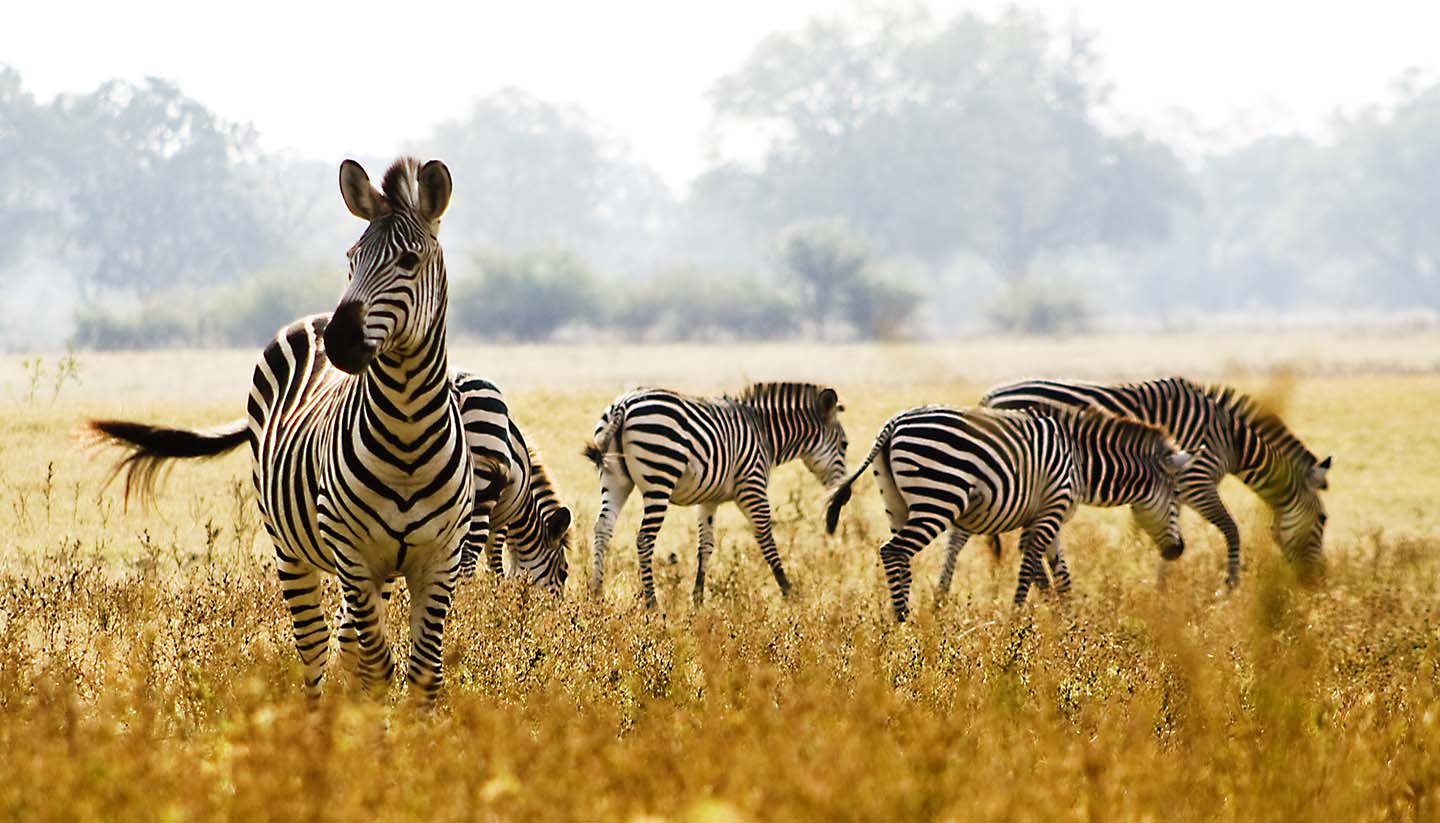
Introducing Zambia
About zambia.
- Images of Zambia
- History, language & culture
- Weather & geography
- Doing business & staying in touch
Plan your trip
- Travel to Zambia
- Where to stay
While you’re there
- Things to see & do
- Shopping & nightlife
- Food & drink
- Getting around
Before you go
- Passport & visa
- Public Holidays
- Money & duty free
Book your flights
Zambia travel guide
Vast lakes and wetlands, long and life-giving rivers, breathtaking African sunsets and a rich tradition of guiding all contribute to Zambia’s immense appeal as a safari destination.
Its most famous landmark, Victoria Falls, which it shares with Zimbabwe, attracts nature lovers and thrill-seekers alike. Visit in March or April, when the falls are in full spate, and you’ll be bowled over by the rainbows, the roar of the cascading water and the dense, drenching clouds of spray.
Livingstone, the closest urban hub to the falls and once Zambia’s colonial capital, has a number of accommodation options, colourful markets and a busy restaurant and nightlife scene. The mighty Zambezi River itself is glassy-smooth above the falls and wild below. It’s perfect for booze cruises, canoe safaris and adrenaline activities such as white-water rafting and river surfing. There are a plethora of beautiful riverside lodges dotted along its banks.
Beyond the falls, Zambia is not as high-profile a safari destination as Kenya, Tanzania or South Africa, but it’s a favourite with those in the know. Packed with untamed wilderness and fascinating wildlife, minus the crowds, Zambia is the African bush at its most raw and romantic.
The country’s excellent safari lodges and camps will put you fully in touch with your wild surroundings. You’ll fall asleep to the hooting of owls, the whooping of hyenas, the distant roar of lions, and the loud munching of hippos grazing nearby.
Almost a third of Zambia’s landmass is given over to national parks and game reserves, but South Luangwa National Park is the cream of the crop for sheer density of big game. It’s also the home of the legendary African walking safari.
Another of Zambia’s drawcards is the people. The country is home to a staggering 72 different ethnic groups, each of whom have their own distinctive cultural traits and traditions, but all of whom are unfailingly warm and welcoming.
752,614 sq km (290,586 sq miles).
16,717,332 (UN estimate 2016).
20 per sq km.
President Hakainde Hichilema since 2021.
Travel Advice
The Foreign, Commonwealth & Development Office ( FCDO ) provides advice about risks of travel to help British nationals make informed decisions. Find out more about FCDO travel advice .
Before you travel
No travel can be guaranteed safe. Read all the advice in this guide and any specific travel advice that applies to you:
- women travellers
- disabled travellers
LGBT+ travellers
Follow and contact FCDO travel on Twitter , Facebook and Instagram . You can also sign up to get email notifications when this advice is updated.
Travel insurance
If you choose to travel, research your destinations and get appropriate travel insurance . Insurance should cover your itinerary, planned activities and expenses in an emergency.
This advice reflects the UK government’s understanding of current rules for people travelling on a full ‘British citizen’ passport from the UK, for the most common types of travel.
The authorities in Zambia set and enforce entry rules. If you’re not sure how these requirements apply to you, contact the Zambian High Commission in the UK .
COVID-19 rules
There are no COVID-19 testing or vaccination requirements for travellers entering Zambia.
Passport validity requirements
To enter Zambia, your passport must have an ‘expiry date’ at least 6 months after the date you arrive. It must have at least 2 blank pages for entry stamping.
Make sure you get your passport stamped.
Check with your travel provider that your passport and other travel documents meet requirements. Renew your passport if you need to.
You will be denied entry if you do not have a valid travel document or try to use a passport that has been reported lost or stolen.
Dual nationality
Zambia recognises dual nationality. However, to avoid delays at the airport you should leave Zambia on the same passport you used to enter.
Visa requirements
British passport holders do not need a visa to enter Zambia. You must be able to show:
- valid return or onward tickets
- enough money for your stay
Tourists may remain in Zambia for a total of 90 days in any 12 month period. For business visitors the maximum stay in Zambia over a 12 month period is 30 days.
For further information, email the Zambian High Commission at [email protected] or contact the Zambian Department of Immigration .
KAZA UNIVISA
The KAZA UNIVISA, for use in the Kavango Zambezi Transfrontier Conservation Area, is valid for unlimited travel between Zambia and Zimbabwe and for day trips to Botswana. It costs 50 US dollars and is valid for 30 days.
You can apply online in advance , or get the visa on arrival if you are arriving at:
- Kenneth Kaunda International Airport, Lusaka
- Harry Mwanga Nkumbula International Airport, Livingstone
- by land at Livingstone, Victoria Falls (Zambia-Zimbabwe border)
- by land at Kazungula (Zambia-Botswana border)
Departure tax
On leaving Zambia, all air passengers must pay the equivalent to 25 US dollars for international travel and a security charge of 3 US dollars for domestic travel. Both charges are normally included in the cost of an air ticket, but you will have to pay in cash with Zambian kwacha if they are not.
Vaccination requirements
At least 8 weeks before your trip, check the vaccinations and certificates you need in TravelHealthPro’s Zambia guide .
Depending on your circumstances, this may include a yellow fever vaccination certificate.
Customs rules
There are strict rules about goods you can take into or out of Zambia . You must declare anything that may be prohibited or subject to tax or duty.
This guide also has safety advice for regions of Zambia .
There is a high threat of terrorist attack globally affecting UK interests and British nationals, including from groups and individuals who view the UK and British nationals as targets. Stay aware of your surroundings at all times.
UK Counter Terrorism Policing has information and advice on staying safe abroad and what to do in the event of a terrorist attack. Find out how to reduce your risk from terrorism while abroad .
Terrorism in Zambia
Terrorist attacks in Zambia cannot be ruled out. Attacks could be indiscriminate, including in places visited by foreigners.
Political situation
There are occasionally demonstrations and protests in Lusaka and other urban areas. They can disrupt local transport and become violent. Avoid them and leave the scene as soon as possible if a crowd develops. Do not cross protester roadblocks as this is likely to provoke a violent reaction from demonstrators.
Travel in larger cities and the major game parks is generally safe during daylight hours. However, serious crimes can happen. Pre-arrange transport to avoid walking at night and stay aware of your surroundings, especially after dark. Stay alert and take precautions against vehicle crime by:
- keeping windows closed and doors locked when travelling
- ignoring hitchhikers or anyone trying to flag you down
- watching out for potential carjackers when approaching locked gateways at night, or if an object has been placed to block the road
- only using cars arranged for you by a hotel or tour operator
Keep valuables and originals of important documents in a safe place and carry a copy of your passport’s photo page and entry stamp.
Laws and cultural differences
Pornography laws.
It is illegal to possess pornographic material in Zambia, and offenders may be jailed or deported.
Illegal drugs
It is illegal to possess or use drugs, including marijuana. Drug use and smuggling are serious offences.
Using cameras in secure areas
It’s illegal to take pictures of sensitive sites such as army barracks or government buildings, and you could be arrested. If in doubt, do not take pictures.
Same-sex sexual activity is illegal in Zambia, and anyone convicted can get a long prison sentence.
Read more advice for LGBT+ travellers .
Wildlife, animal products and souvenirs
It is illegal to buy, sell, kill or capture any protected wild animal or trade its parts without a licence. Anyone caught purchasing or trafficking such goods will be prosecuted and get a fine or a prison sentence.
Outdoor activities and adventure tourism
Wild animals in the bush, including venomous snakes, are unpredictable and do kill. Whether you are travelling on land or water, you are at risk of potentially fatal animal attacks.
Adventure sports, including in the Victoria Falls area, carry risks. There have been serious accidents and deaths. The quality of medical care varies greatly. Follow safety instructions closely. Make sure you have appropriate travel insurance and accessible funds to cover the cost of any medical treatment or potential repatriation.
Transport risks
Road travel.
If you are planning to drive in Zambia, see information on driving abroad .
You can use a UK photocard driving licence to drive in Zambia for up to 90 days. If you still have a paper driving licence, you may need to update it to a photocard licence . If you plan to stay in Zambia for more than 90 days, you’ll need to have the correct version of the international driving permit ( IDP ) or a Zambian driving licence.
Hire car companies often have stricter requirements for their customers, such as a year of driving experience, a higher minimum age and holding an IDP .
Road conditions and driving standards
Many roads are severely potholed. During the rainy season from November to April, sudden floods can wash away bridges and roads.
Vehicles in Zambia are often inadequately maintained and badly driven. There are frequent fatal crashes. Drink-driving and driving while on a mobile are illegal but commonplace. Zambia’s Road Traffic and Safety Agency prosecutes traffic offenders through a fast-track court system.
It is dangerous to drive outside the main towns after dark due to abandoned vehicles, pedestrians and stray animals on the road, and vehicles being driven without lights.
Buses and minibuses
Travel by long-distance public transport can be dangerous due to poor standards of driving, lack of rest periods for drivers, the poor quality of vehicles and poor road conditions. Minibuses in urban areas are usually severely overcrowded, poorly maintained and badly driven.
This section has safety advice for regions of Zambia. It only covers regions where FCDO has specific advice.
You should also read FCDO ’s overall travel advice and safety and security advice .
Zambia- DRC border
Take care when travelling in rural parts of Zambia, close to the border with the Democratic Republic of Congo ( DRC ). The border is not demarcated and there is a risk of inadvertently illegally entering DRC .
Legitimate border crossings in these areas are generally safe.
Before you travel check that:
- your destination can provide the healthcare you may need
- you have appropriate travel insurance for local treatment or unexpected medical evacuation
This is particularly important if you have a health condition or are pregnant.
Vaccinations and health risks
At least 8 weeks before your trip check:
- the latest information on vaccination recommendations and health risks in TravelHealthPro’s Zambia guide
- where to get vaccines and whether you have to pay on the NHS travel vaccinations page
Parts of Zambia, including Lusaka, are experiencing a cholera outbreak which is spreading across the country. You can take measures to reduce the risk of cholera infection .
There is currently an outbreak of anthrax in Zambia, affecting rural and urban areas. Do not touch dead animals or carcases. Buy meat only from reputable butchers and ensure that meat is thoroughly cooked. Avoid animal products that could have been sourced from animals that may have died of natural causes. If you suspect that you have come into contact with anthrax, seek urgent medical advice.
The UNAIDS Zambia country progress report of 2020 estimated the overall HIV prevalence in the adult population is 11%, compared to a prevalence of 0.2% in adults in the UK. Take normal precautions to avoid exposure to HIV/AIDS .
The legal status and regulation of some medicines prescribed or bought in the UK can be different in other countries.
Read best practice when travelling with medicines on TravelHealthPro .
The NHS has information on whether you can take your medicine abroad .
Healthcare facilities in Zambia
FCDO has a list of medical providers in Zambia .
Medical facilities throughout Zambia are of a lower standard than in the UK. Facilities in rural areas are basic and emergency services are limited. Carry basic medical supplies. Make sure you have adequate travel health insurance and accessible funds to cover the cost of any medical treatment abroad and repatriation.
Travel and mental health
Read FCDO guidance on travel and mental health . There is also mental health guidance on TravelHealthPro .
The Foreign, Commonwealth & Development Office ( FCDO ) cannot provide tailored advice for individual trips. Read this travel advice and carry out your own research before deciding whether to travel.
Emergency services in Zambia
Police: 991
Ambulance: 992
Fire: 993
Contact your travel provider and insurer
Contact your travel provider and your insurer if you are involved in a serious incident or emergency abroad. They will tell you if they can help and what you need to do.
Refunds and changes to travel
For refunds or changes to travel, contact your travel provider. You may also be able to make a claim through insurance. However, insurers usually require you to talk to your travel provider first.
Find out more about changing or cancelling travel plans , including:
- where to get advice if you are in a dispute with a provider
- how to access previous versions of travel advice to support a claim
Support from FCDO
FCDO has guidance on staying safe and what to do if you need help or support abroad, including:
- finding lawyers and funeral directors in Zambia
- dealing with a death in Zambia
- being arrested or imprisoned in Zambia
- getting help if you’re a victim of crime
- what to do if you’re in hospital
- if you’re affected by a crisis , such as a terrorist attack
Contacting FCDO
Follow and contact FCDO travel on Twitter , Facebook and Instagram . You can also sign up to get email notifications when this travel advice is updated.
You can also contact FCDO online .
Help abroad in an emergency
If you’re in Zambia and you need emergency help from the UK government, contact the British High Commission in Lusaka .
FCDO in London
You can call FCDO in London if you need urgent help because something has happened to a friend or relative abroad.
Telephone: 020 7008 5000 (24 hours)
Find out about call charges
Risk information for British companies
The Overseas Business Risk service offers information and advice for British companies operating overseas on how to manage political, economic, and business security-related risks.

Related Articles
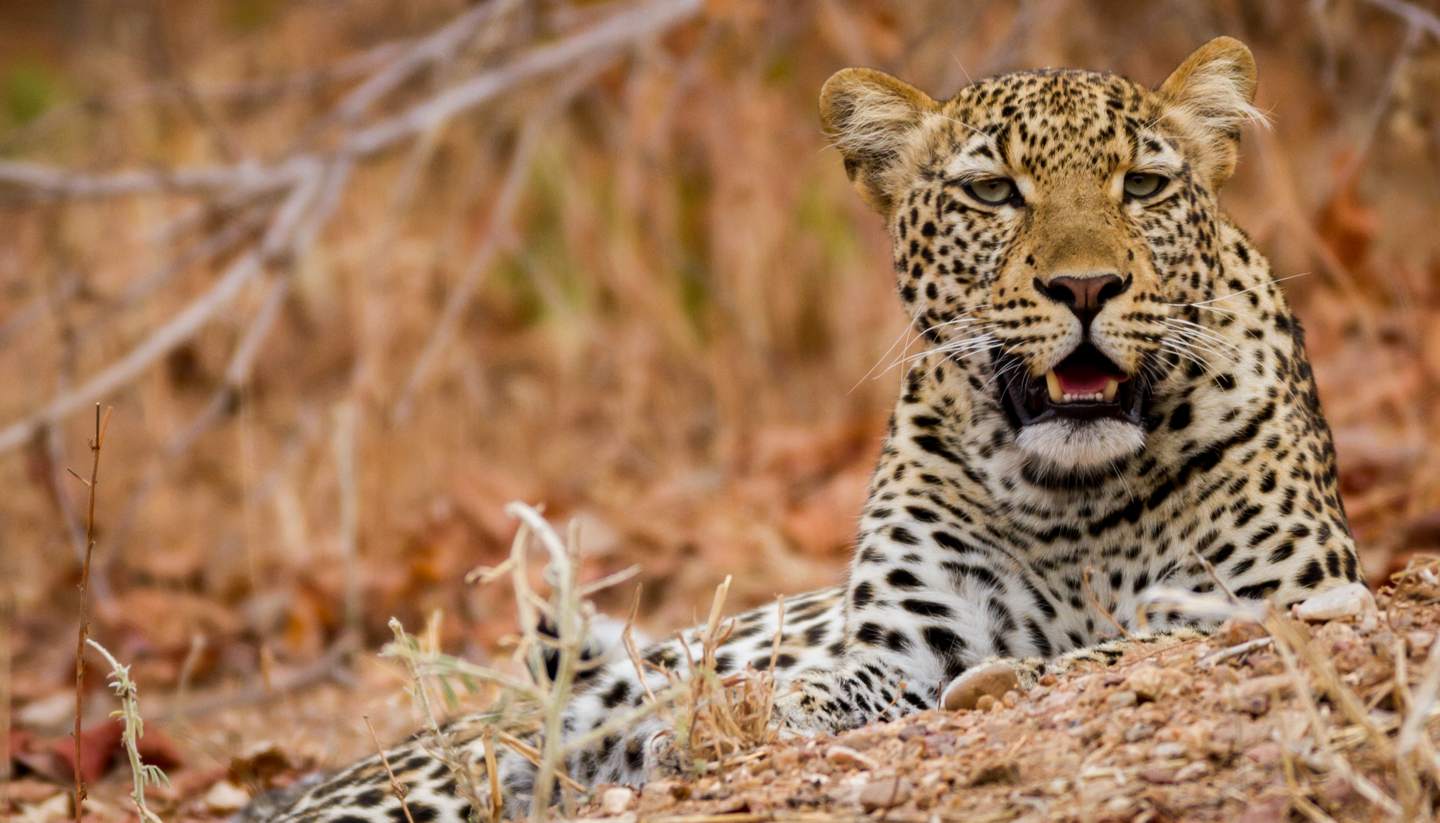
Taking a walk on the wild side in Zambia
With its bountiful wildlife, new lodges and crowd-free parks, Zambia is one of the world's hottest safari destinations, says Lauren Jarvis.
Book a Hotel
© Columbus Travel Media Ltd. All rights reserved 2024

Zambia Travel Guide
No one can imagine the beauty of the view from anything witnessed in England. It had never been seen before by European eyes; but scenes so lovely must have been gazed upon by angels in their flight. ” DAVID LIVINGSTONE
Whenever anyone asks me what my favourite country in Africa is, I usually say Zambia. It was the first place I ever visited in Africa, the first place I travelled solo and I was instantly in love with the place! From the incredible Victoria Falls and the Zambezi River to the beautiful South Luangwa National Park and the friendly people, you will not be disappointed by Zambia!
To help you plan your dream trip to Zambia, I’ve created this helpful Zambia Travel Guide, with lots of info and resources, useful links, and all of my Zambia blog posts!
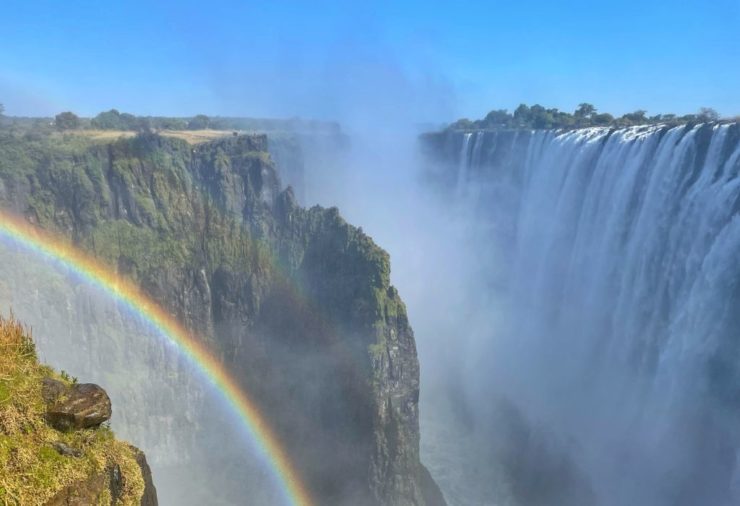
Things To Know About Zambia
Currency: Zambian Kwacha (ZMW)
Languages: There are around 72 languages/dialects spoken in Zambia, with the main languages being Bemba, Nyanja, Lozi, Tonga, Kaonde, Luvale, and Lunda. But don’t worry – English is widely spoken and is also the official language and is used in business and taught in schools, making it an easy place to travel for English speakers.
Visa: Most nationalities need a visa to enter Zambia. A 30-day Single Entry Visa is usually $50 (however they reduced this to half price during Covid and it’s still reduced) and a Multi-Entry Visa costs $80 (this is also at half price currently). Some nationalities can get these on arrival, and some need to apply in advance. You can also get a KAZA Visa (for $50) when flying into Zambia (or Zimbabwe) or when coming in overland from Botswana. This allows you to travel between Zambia and Zimbabwe on one visa and lets you visit Botswana for the day. You can check your visa regulations here .
Main Airport(s): Kenneth Kaunda International Airport (Lilongwe) and Harry Mwanga International Airport (Livingstone) and Simon Mwansa Kapwepwe International Airport (Ndola).
When To Go: The best time for wildlife viewing is during the dry season between May and October. The rains come between November and April. The temperatures become very hot in October. If you want to see Victoria Falls when it’s full, visit between May and July as the water levels start to really drop from August, becoming a trickle by October/November.
Malaria: Malaria is a risk in most parts of Zambia so I would advise that you see a doctor before visiting to ensure you are protected. You can find more information here .
Yellow Fever: Yellow Fever is a low risk in Zambia however you should only need a Yellow Fever certificate if you have visited an endemic area immediately before entering Zambia. You can see whether you need a Yellow Fever vaccination certificate here .
Internet & Mobile: The two main networks in Malawi are Airtel and MTN.
Water: It is not advised to drink the tap water in Malawi, so I would suggest buying bottled water or using a filtered water bottle .
Safety: Zambia is generally a safe and friendly country to visit and crimes against tourists are rare. But I would advise you to take taxis after dark and if you do need to walk at night, keep to busy streets and preferably walk in a group, especially in the cities and towns. And always be aware of the wildlife in the area, it’s not uncommon for animals to be seen wandering near where people live or through lodges. Unfortunately, being gay is an illegal and imprisonable offence in Zambia, so please be aware of this when visiting.
What to Pack: You can see my complete Africa Packing List here .
Plugs: In Zambia, they usually use Type G, British 3-pin style plugs.
Zambia Blog Posts
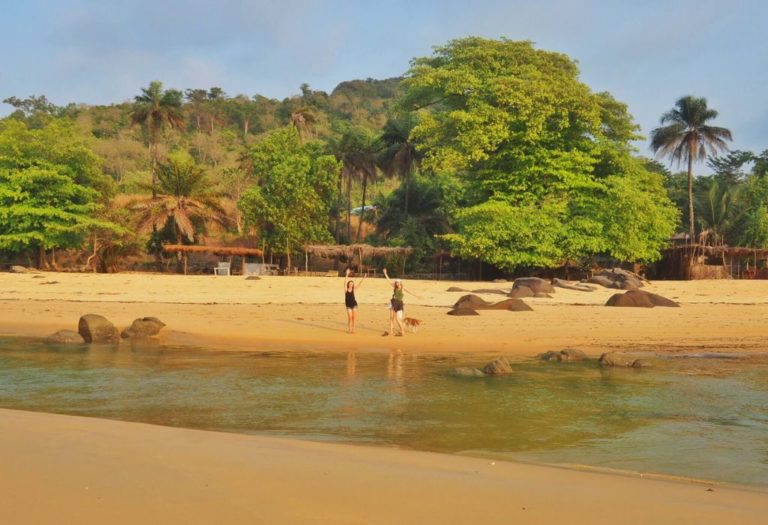
My Top 12 Best African Countries to Visit
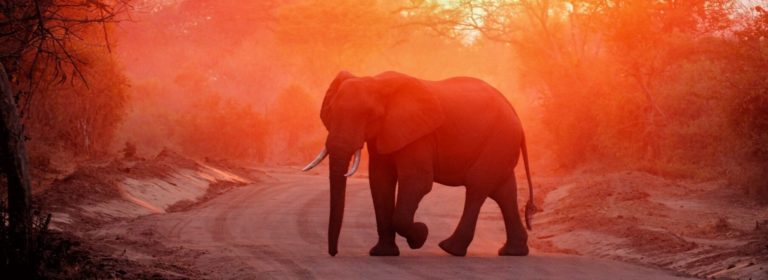
Come With Me to Malawi, Zambia & Botswana!
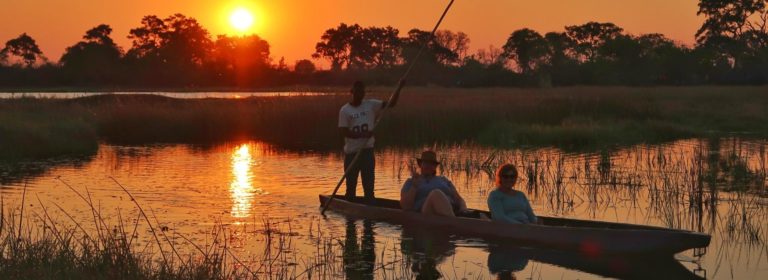
Come With Me to Botswana & Victoria Falls!
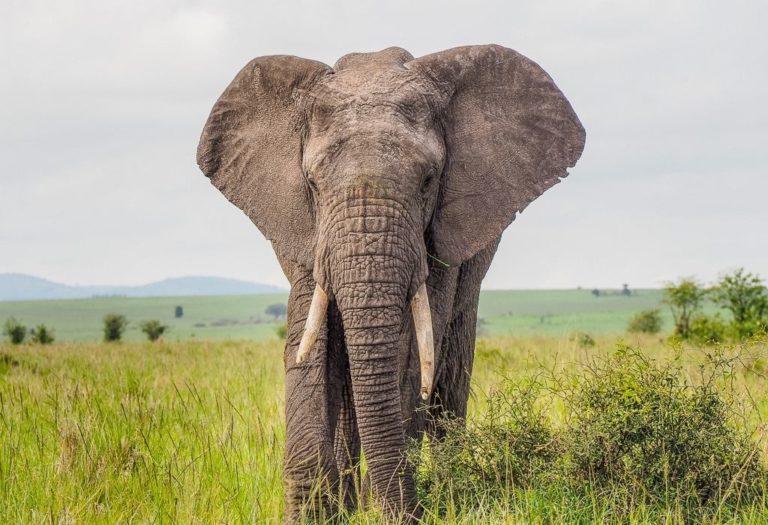
The Best Places in Africa to See Elephants
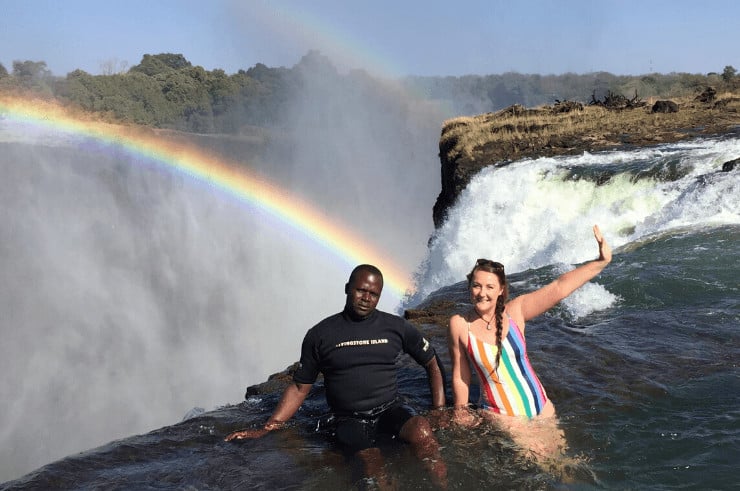
How To Visit the Devil’s Pool, Victoria Falls
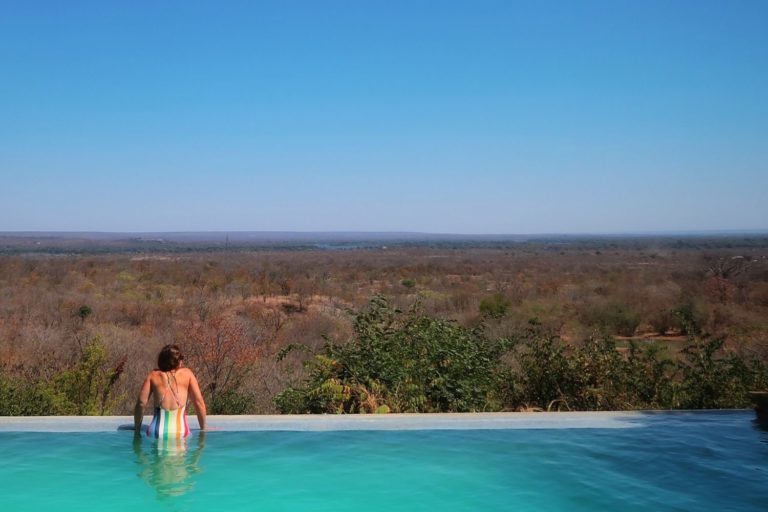
5 Reasons to Stay at the Stanley Safari Lodge in Livingstone, Zambia
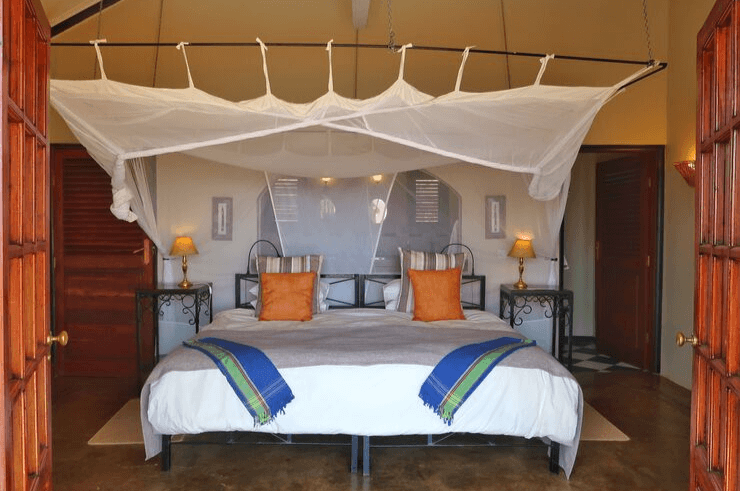
Staying at The Stanley Safari Lodge in Livingstone, Zambia
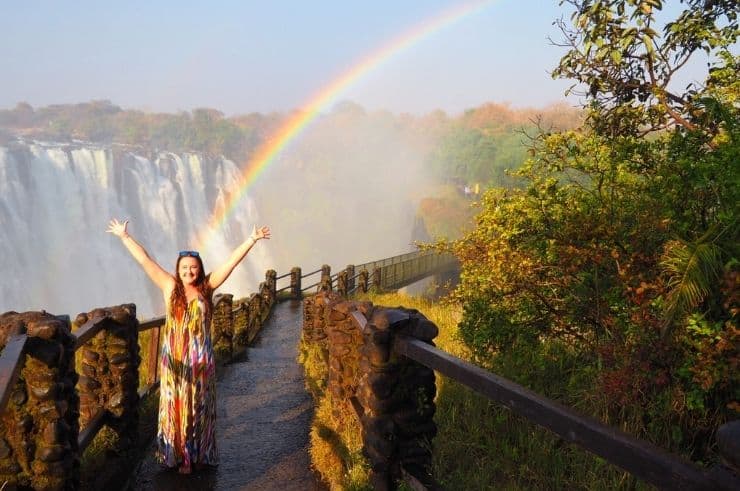
30 Best Things to See & Do at Victoria Falls (Zambia & Zimbabwe)
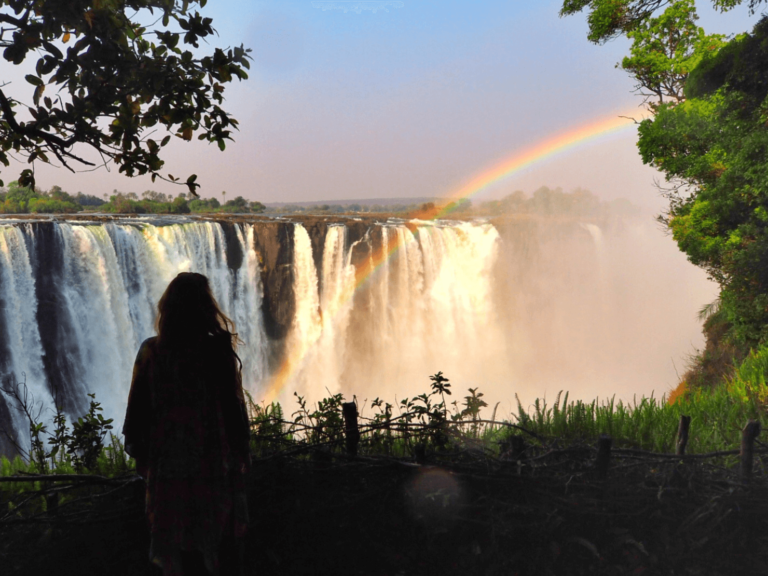
Best Time To Visit Victoria Falls in Zambia & Zimbabwe: Everything You Need To Know
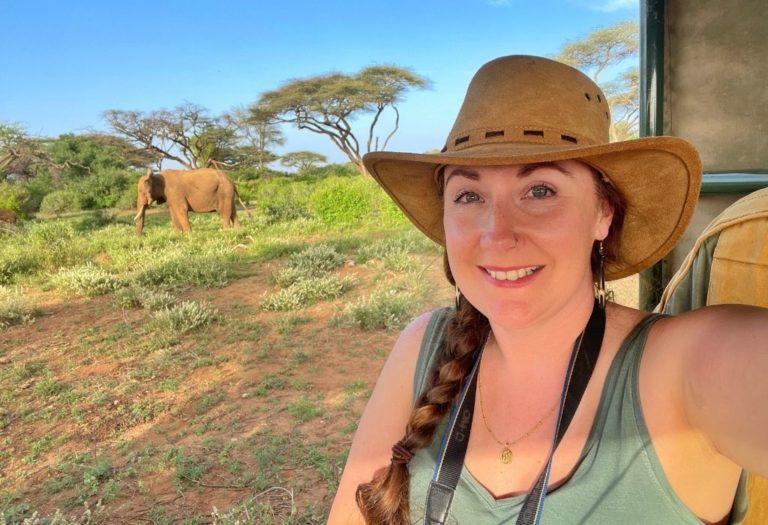
The Ultimate Africa Packing List (Plus FREE Printable Checklist)
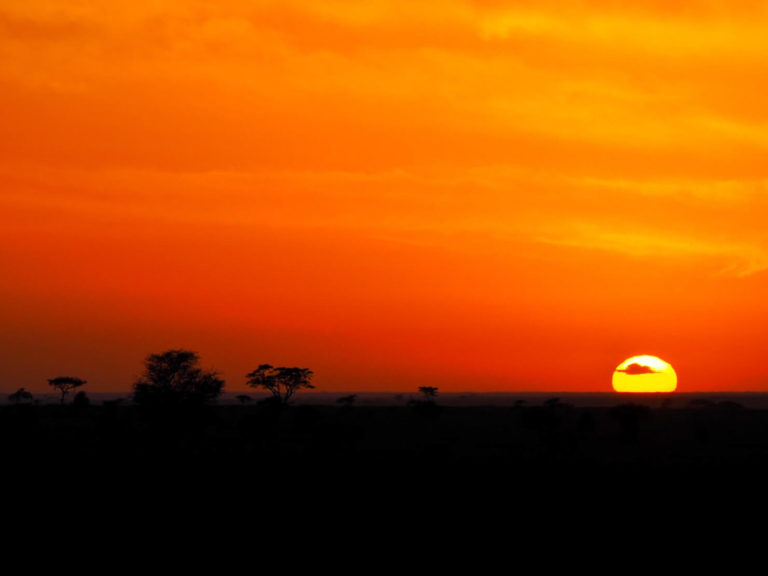
Do I Need a Yellow Fever Certificate to Travel to Africa?
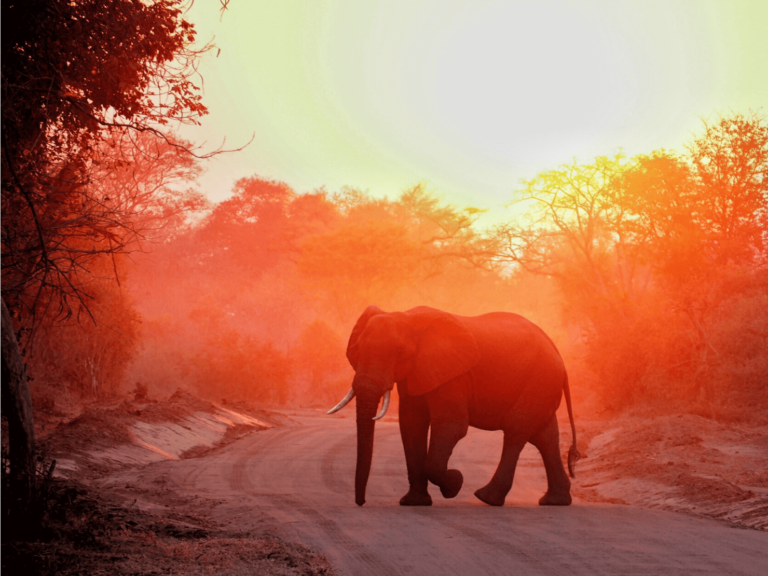
From Malawi to Zambia on a Solo Safari in South Luangwa
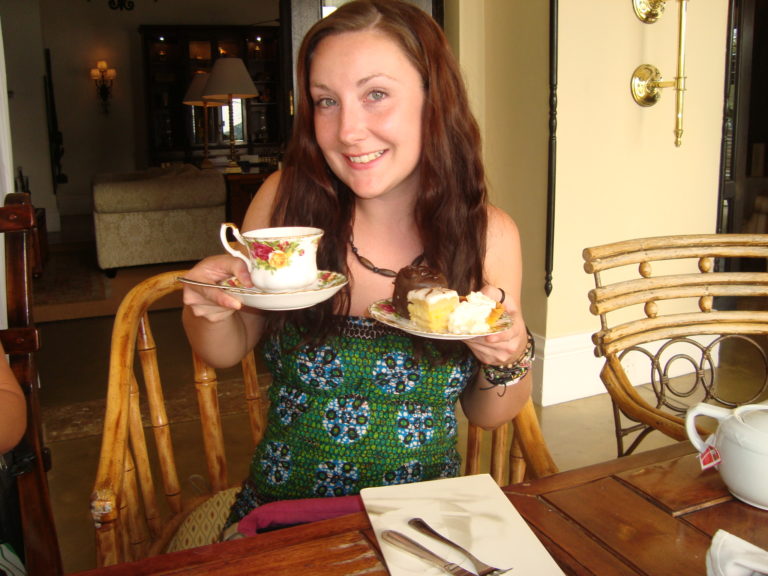
Sunset, Safari & High Tea at The Royal Livingstone
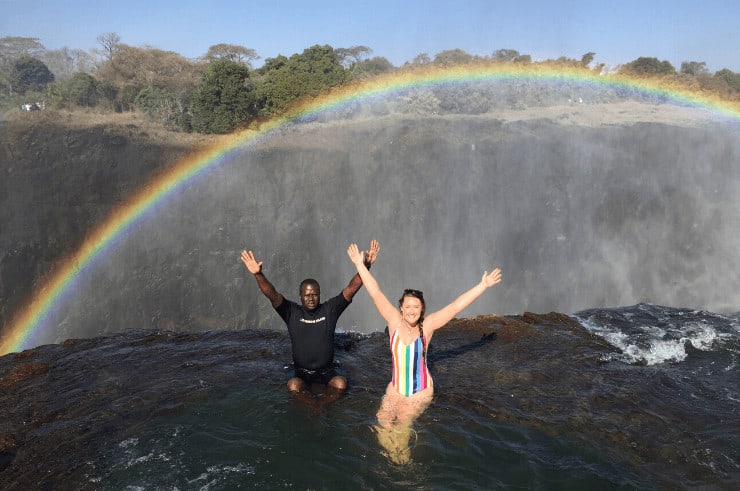
The Ultimate Travel Guide to Livingstone, Zambia
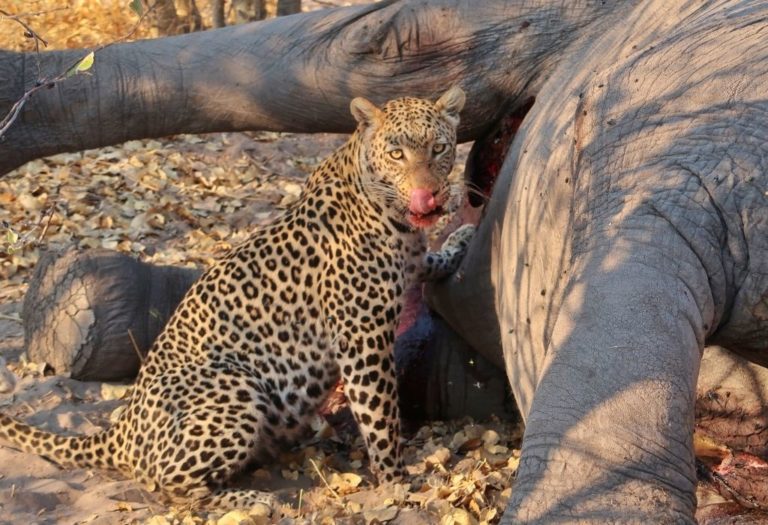
The Best Safaris in Southern Africa
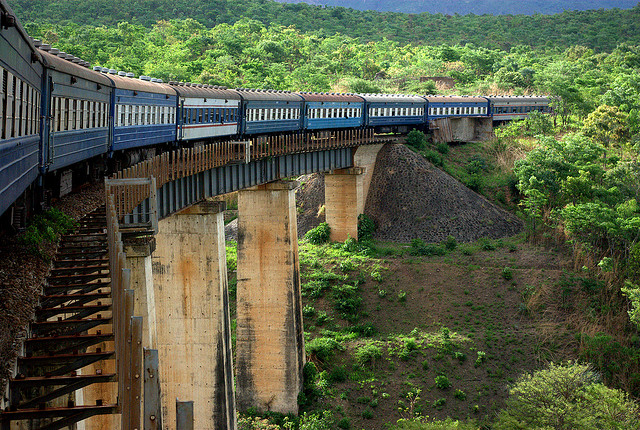
The Tazara Train – Travelling Overland from Zambia to Tanzania
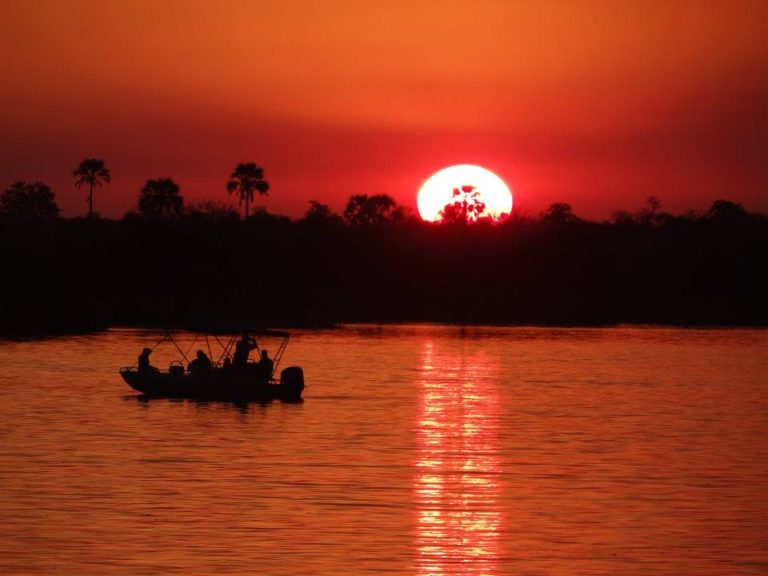
Sunset Cruise on the Zambezi River
Privacy overview.

IMAGES
COMMENTS
General Zambia Travel Tips. - Always travel with toilet paper, hand sanitizer, and small change. Sometimes it can be difficult to break 100 kwacha bills. - Look out for citenge material or traditional fabric. You can get clothes and accessories tailored affordably. Makes for a great souvenir or gift!
From cutting through the countryside to connecting cities, these 24 railway journeys offer entirely new perspectives on a destination. Best in Travel - 2023. 8-day journey through Zambia. Nov 15, 2022 • 12 min read.
You can take a "micro flight" or helicopter ride to see the falls from above (15 minutes from $179; 30 minutes from $360). Another option is bungee jumping ($160) at the Victoria Falls Bridge, a 364ft (111m) span across the Batoka Gorge with the Zambezi River below. You can also conquer the 13 rapids of the Zambezi River by white-water ...
The peak time to visit Zambia for safari is from June to October, which are the winter months. Winter in Zambia means clear skies, plenty of sunshine, and rarely a drop of rain. November, April, and May are considered shoulder months due to the rain. But it is still a wonderful time for game viewing, and it's the best time to save some ...
Welcome to the ultimate Zambia travel guide! Located in the heart of southern Africa, Zambia is a breathtaking destination that offers an array of natural wonders, cultural experiences, and thrilling adventures. From the majestic Victoria Falls to the rich wildlife reserves, this landlocked country has something to captivate every traveler.
Climate. Average summer temperatures: 17°C to 31°C. Average winter temperatures: 9°C to 23°C. Rainy season: November to April. Refer to "best time to visit Zambia" for climate charts and advice on the best times for wildlife-viewing.
Your ultimate Zambia travel guide, with tips, ideas on things to do, and best things to see in Zambia. Great for first-time and returning travelers. The Smoke that Thunders is a suitable name for this impressive waterfall. You can hear the roar from afar and feel the power when you are up close. Located in Livingstone, Zambia on the Zambezi ...
Estimated reading time: 17 minutes. Zambia is a truly magical safari destination. This Southern African country comprises all the best aspects of its more high-profile counterparts, like Kenya, Tanzania, and South Africa. There is something for every type of traveller, from the first-timers and honeymooners to the more seasoned safari-goers and ...
Discover the wonders of Zambia with our ultimate travel guide: from Victoria Falls to national parks, immerse yourself in rich culture and breathtaking landscapes. ... When embarking on a journey to Zambia, meticulous travel planning becomes essential to make the most out of your experience. Consider factors such as the best time to visit, visa ...
Zambia travel guide. Our Zambia travel guide has insights on this beautiful country's history and habits, giving you the heads-up on local food, currency and language before you travel. We're also not afraid to flag up those sights that are a touch overrated, while directing you to the lesser-known highlights and celebrating the best of ...
Visit the official Zambia Immigration Department to apply for a visa online and to check what visa you need. Processing time takes about 5 working days. With the visa, you can stay in Zambia for 90 days from the date of entry. Visa prices vary from $50 (single entry and Kaza Visa) to $150 (multi-entry visa).
2. Go Diving. Lake Tanganyika, the second largest on the continent, is a popular spot for diving and snorkeling. 3. Admire Victoria Falls. Victoria Falls is one of the most impressive natural landscapes in Zambia and also a UNESCO World Heritage Site. 4. Camp Near Kalambo Falls.
The first of our Zambia travel tips is a big one: international flights. To start your adventure, you'll need to fly to the capital Lusaka, the arrival and departure point of all long-haul flights. Emirates have one flight a day from Dubai, which connects nicely with flights to the major safari destinations on national airline Proflight Zambia.
TRAVEL ADVISORY FACTS Interesting facts and information about Zambia Read more INSURANCE Vehicle, travel and medical insurance Read more VISA INFORMATION Visa requirements and exemptions Read more TRAVEL TO ZAMBIA By bus, train,
Visa and entry. European, American and Australian citizens, as well as citizens from most Asian countries, require an entry visa to Zambia. The cost for a single entry tourist visa is US 50 and the cost for a multiple entry visa is USD 80. More information is available on the official visa website.
TRAVEL GUIDE. Mosi-oa-Tunya. The smoke that thunders. Zambia's Kololo tribe best describe what is the world's most awe-inspiring and largest waterfall plummeting 354 feet into a mile-long ...
Call us in Washington, D.C. at 1-888-407-4747 (toll-free in the United States and Canada) or 1-202-501-4444 (from all other countries) from 8:00 a.m. to 8:00 p.m., Eastern Standard Time, Monday through Friday (except U.S. federal holidays). See the State Department's travel website for the Worldwide Caution and Travel Advisories.
Explore LGBTQ+ travel experiences, hidden stories, and the unique attractions that make a destination worth visiting. Discover Zambia's treasures with expert guides. Delve into the heart with locals' insights. Culinary hotspots off-the-beaten-path wonders await...
Top-notch parks such as South Luangwa, Lower Zambezi and Kafue National Parks are just waiting to be explored on game drives, as well as expertly guided walking, boat and canoe safaris. Watch Video. View Photos (50) Open Map. Rates (USD) $190 to $921 pp/day. Best Time To Go May to September (Most parks)
People have been cheated after being persuaded to travel to Zambia on business. To avoid a potential scam: be alert if you're approached by someone in Zambia who you don't know; don't send money to anyone until you've made proper checks; If you're the victim of a scam, get legal help. Don't travel to Zambia to get your money back. Credit card fraud
Zambia Travel Guide Pt. 1: All You Need To Know Before You Visit! In Part 1 of this Zambia Travel Guide, we will focus on everything you'll need to know before you book that trip! A few months ago, as my friend Neema and I were preparing for our trip to Zambia we did a lot of online research…. In the process, we encountered some ...
Zambia travel guide. About Zambia. Vast lakes and wetlands, long and life-giving rivers, breathtaking African sunsets and a rich tradition of guiding all contribute to Zambia's immense appeal as a safari destination. ... The World Travel Guide (WTG) is the flagship digital consumer brand within the Columbus Travel Media portfolio. A ...
Currency: Zambian Kwacha (ZMW) Languages: There are around 72 languages/dialects spoken in Zambia, with the main languages being Bemba, Nyanja, Lozi, Tonga, Kaonde, Luvale, and Lunda.But don't worry - English is widely spoken and is also the official language and is used in business and taught in schools, making it an easy place to travel for English speakers.